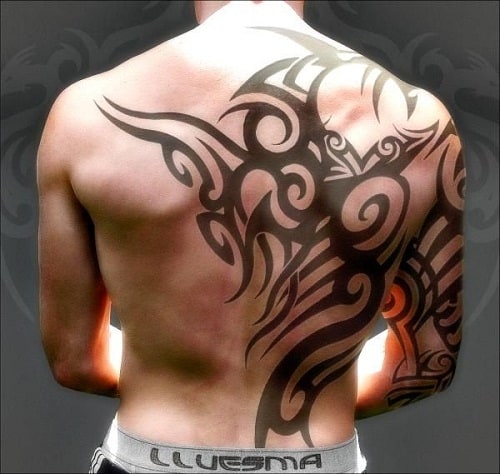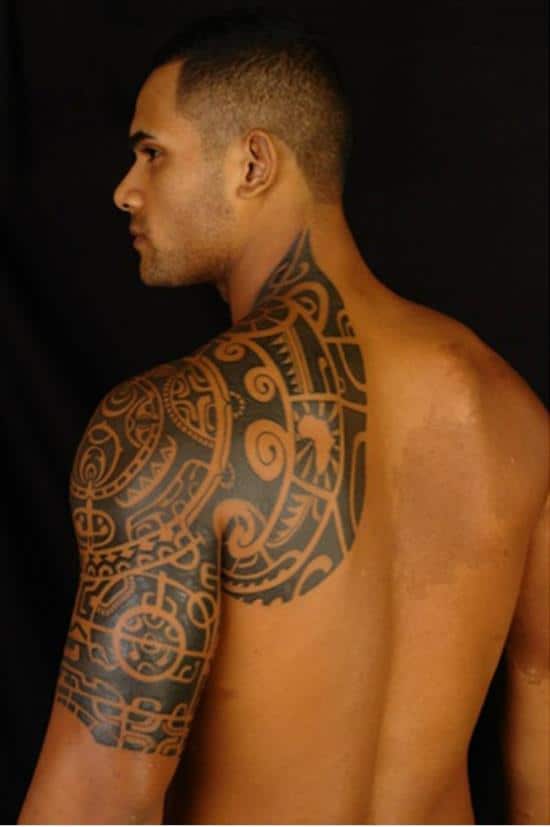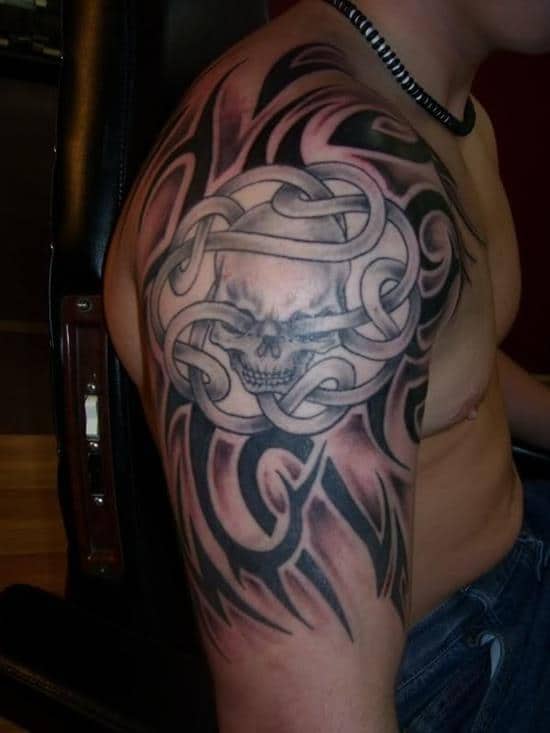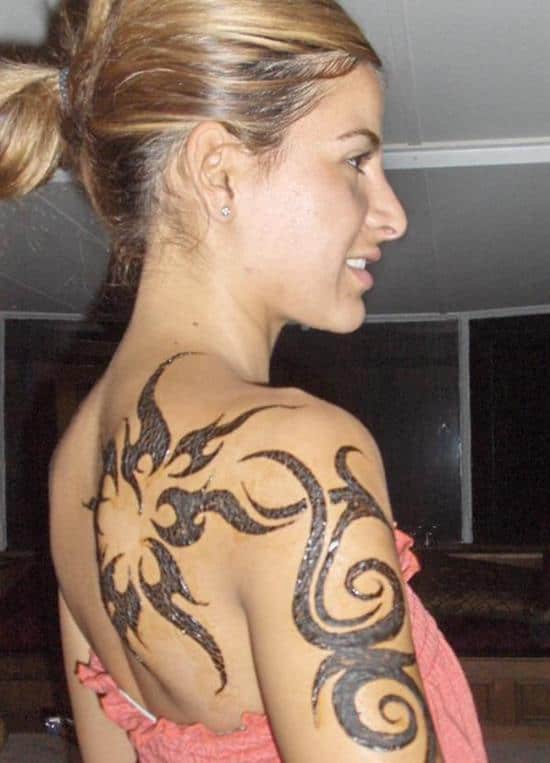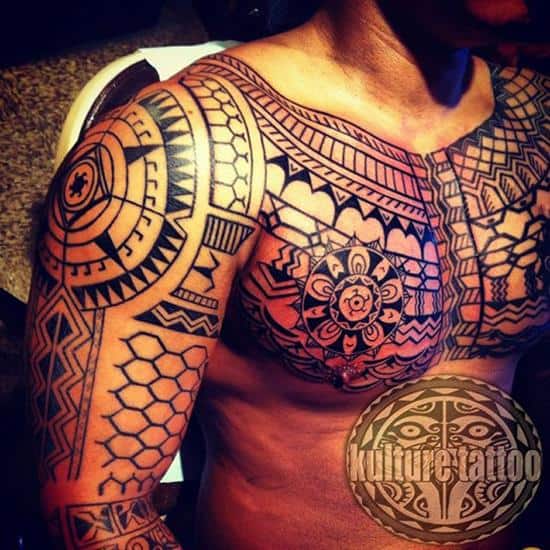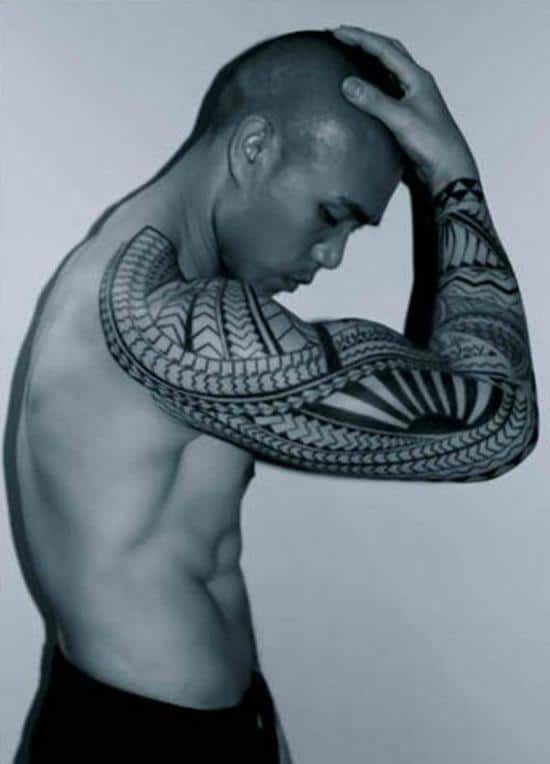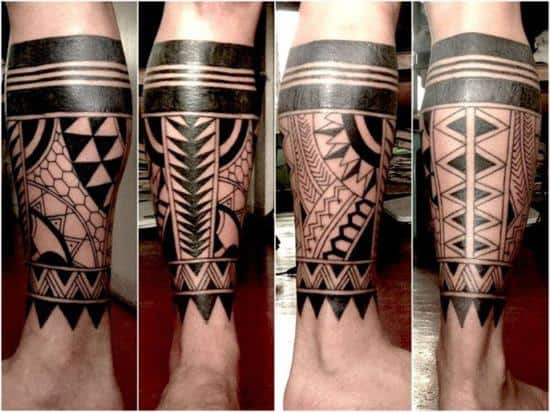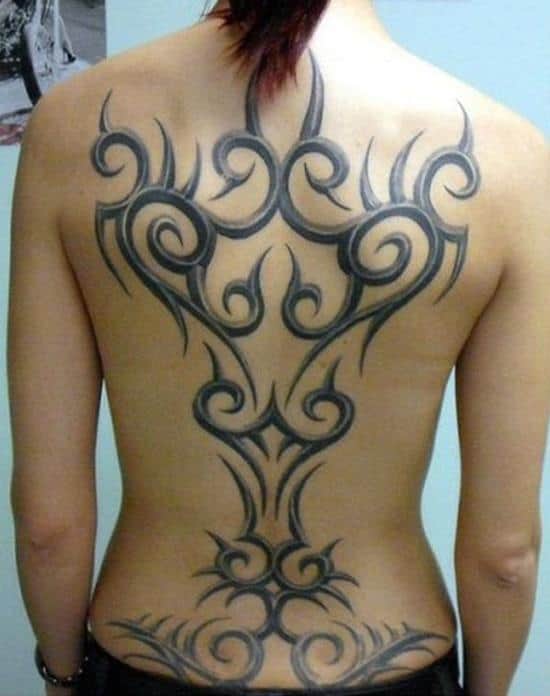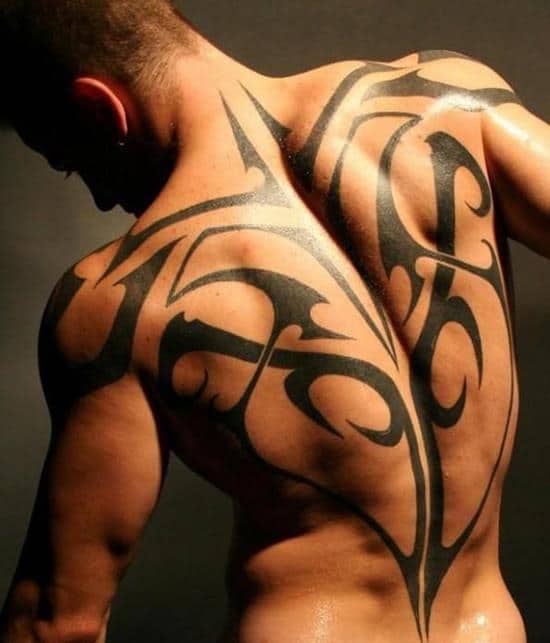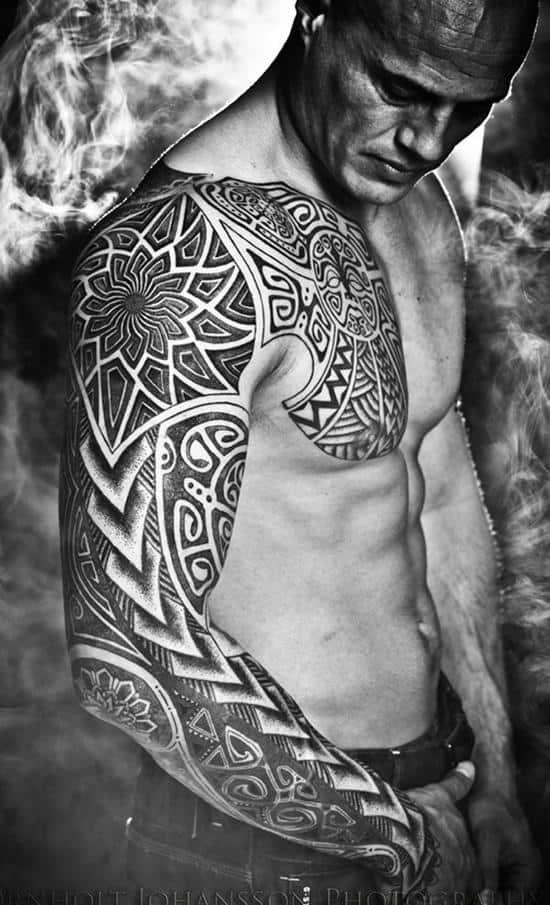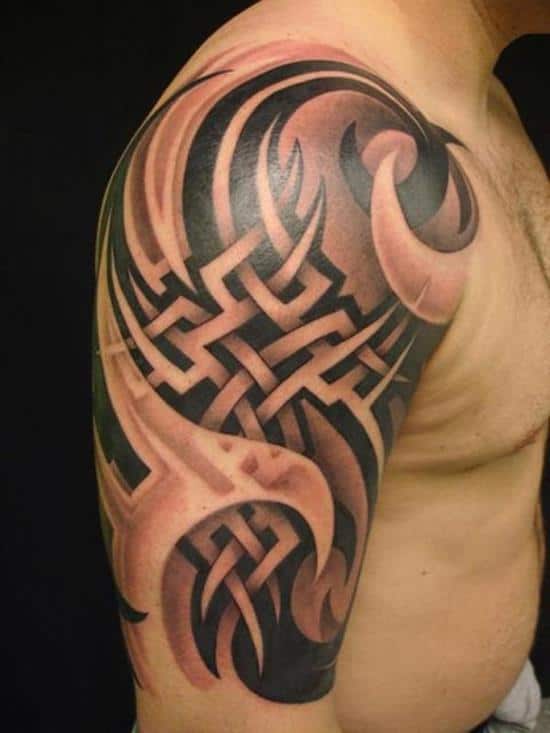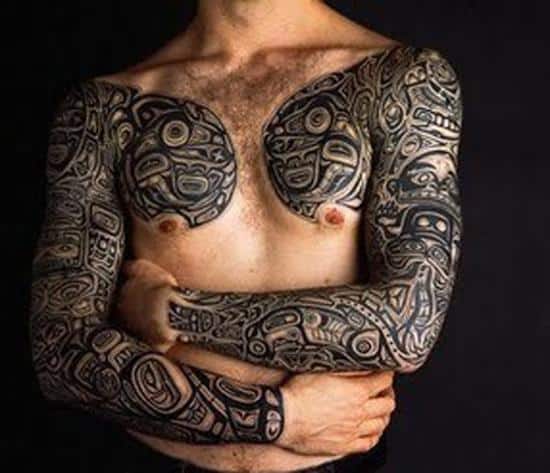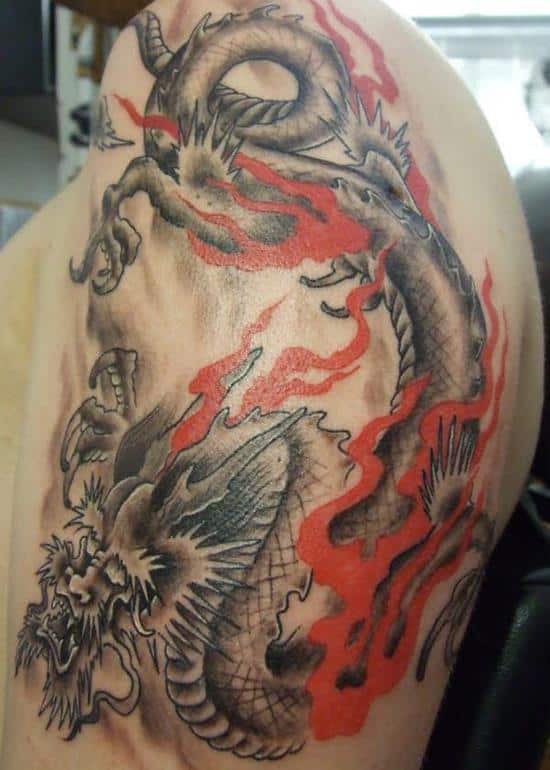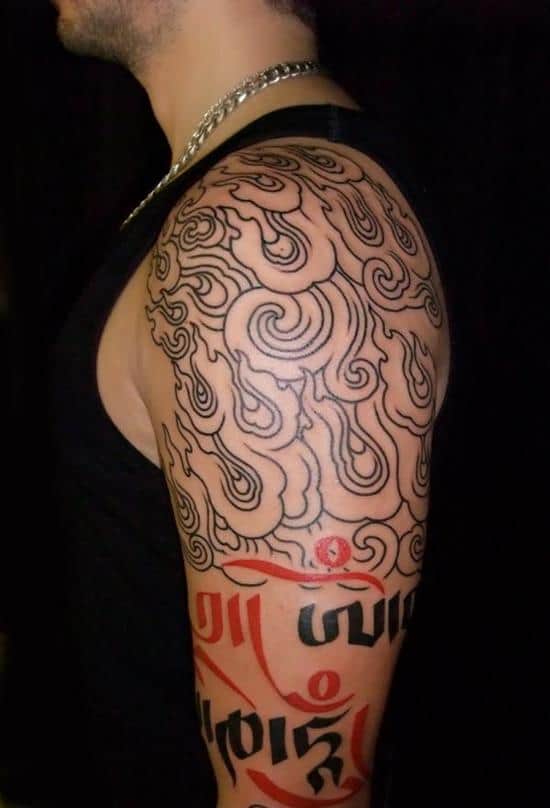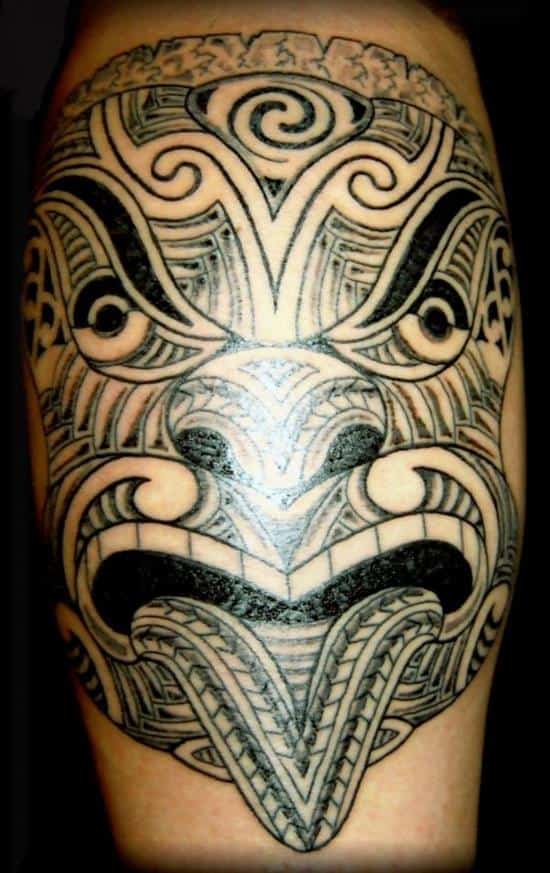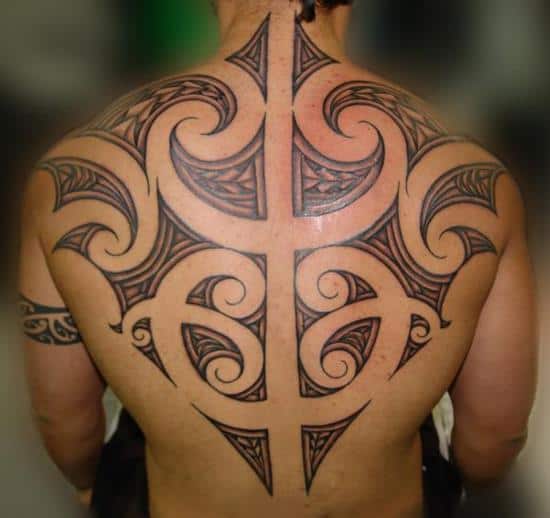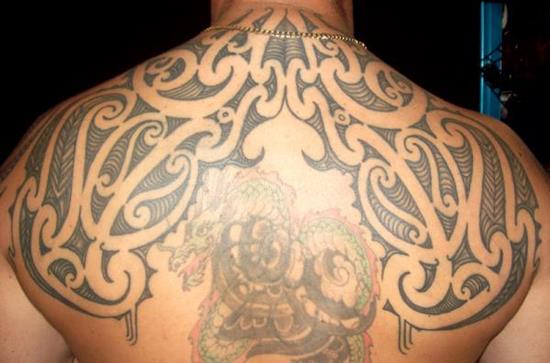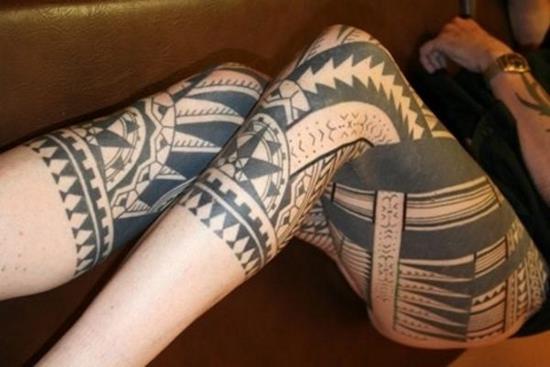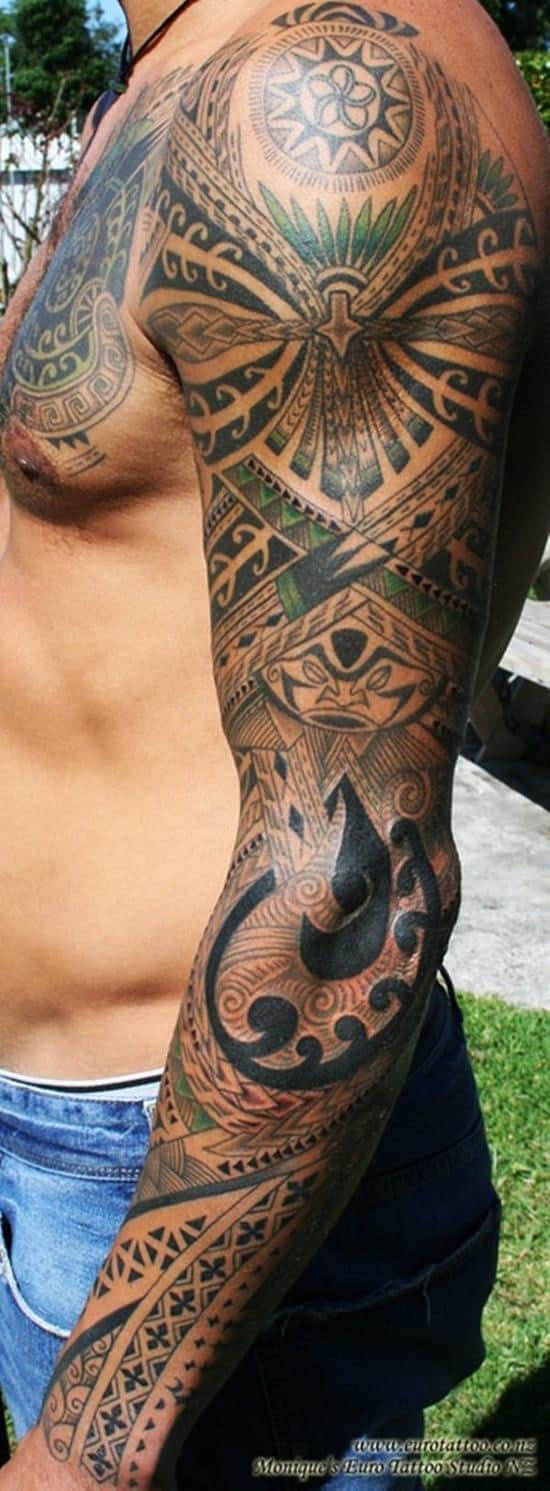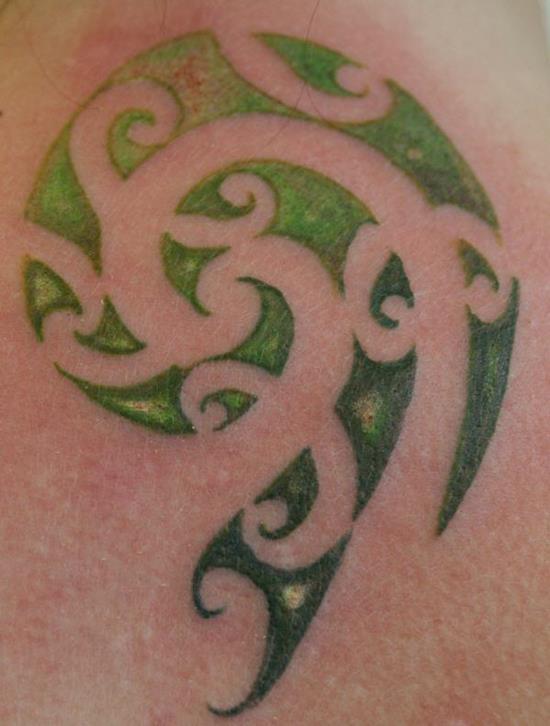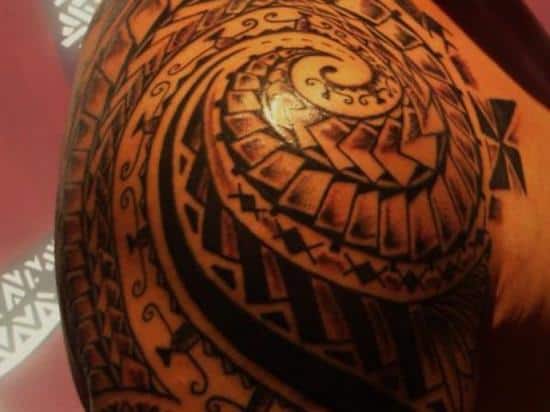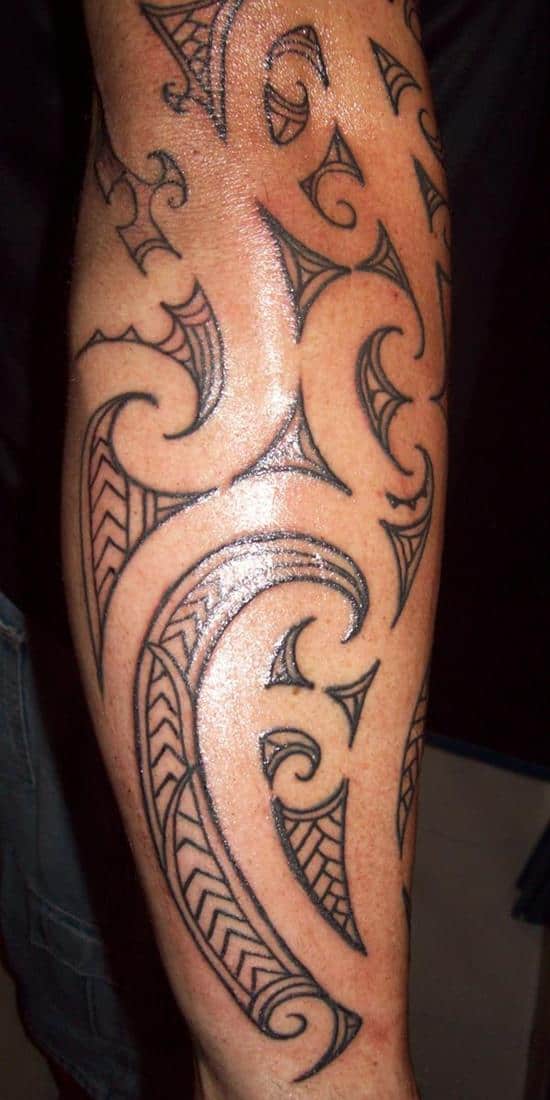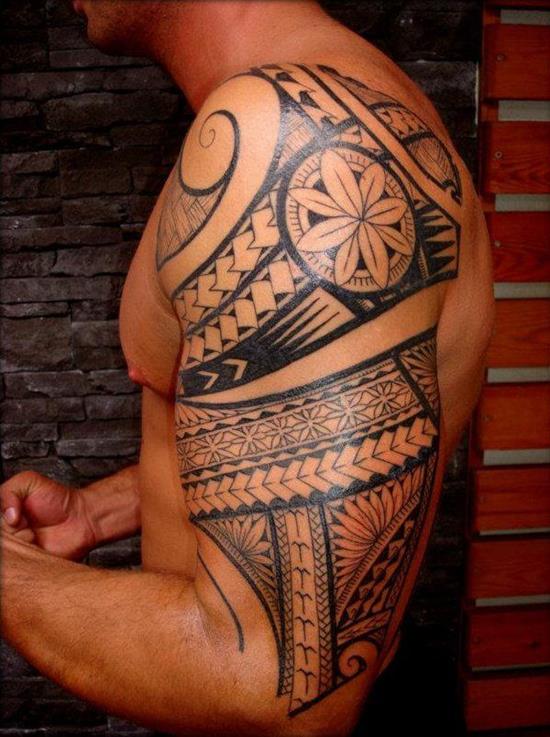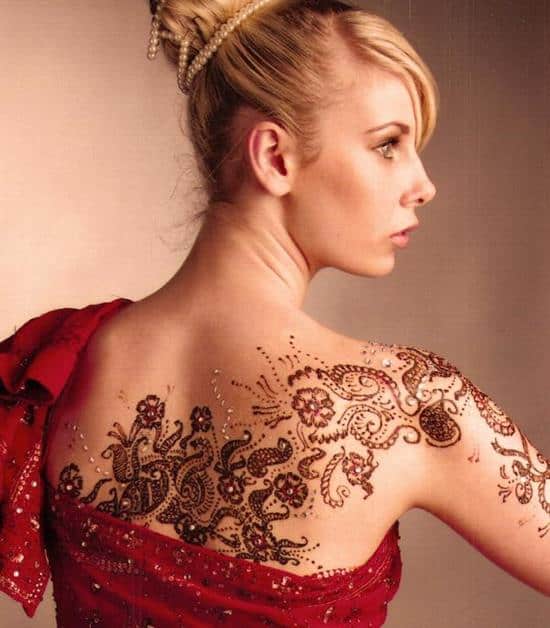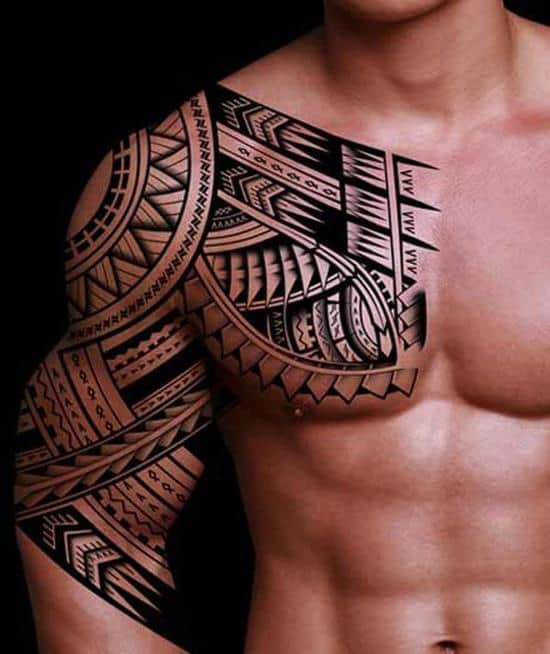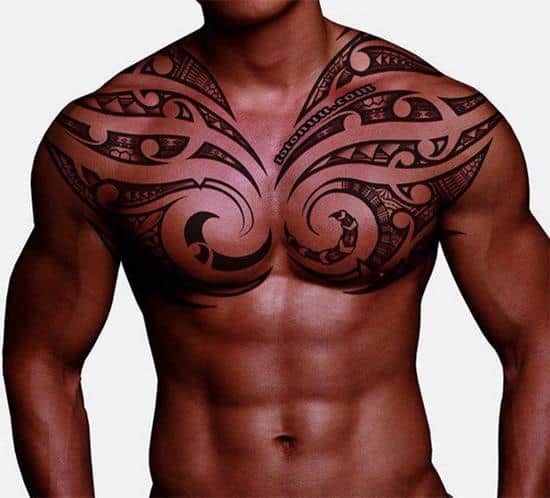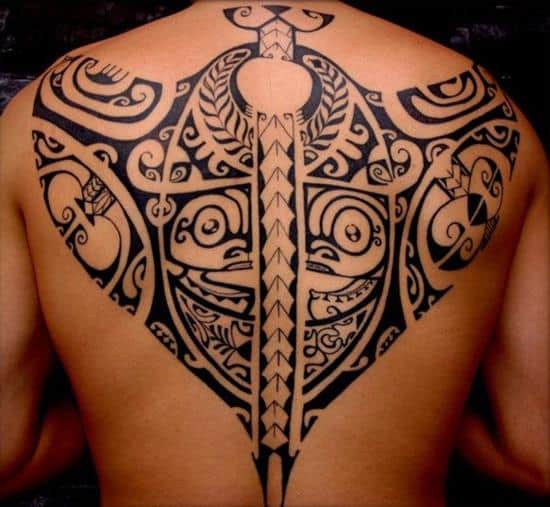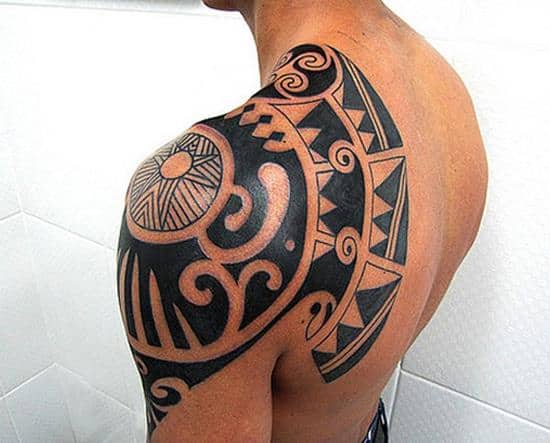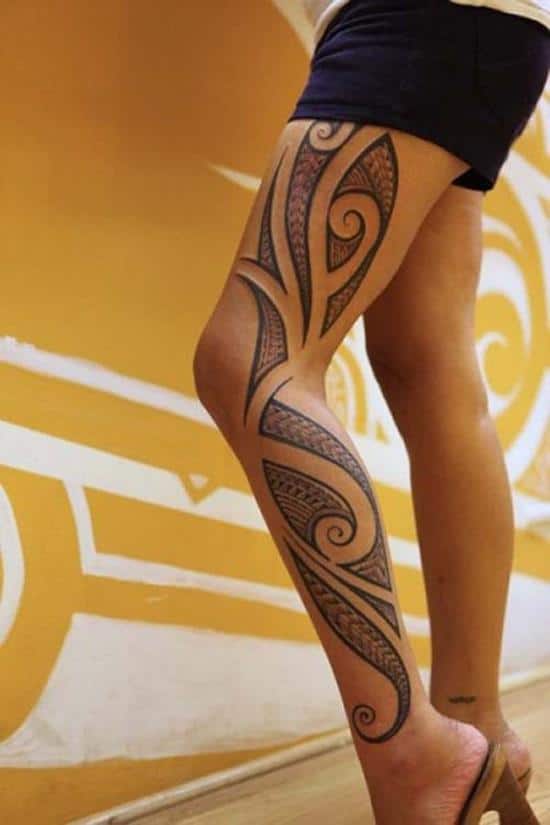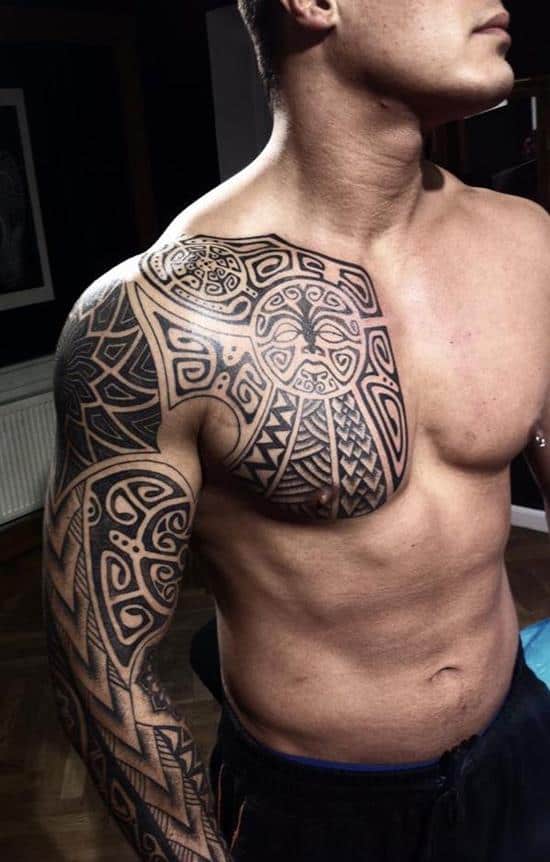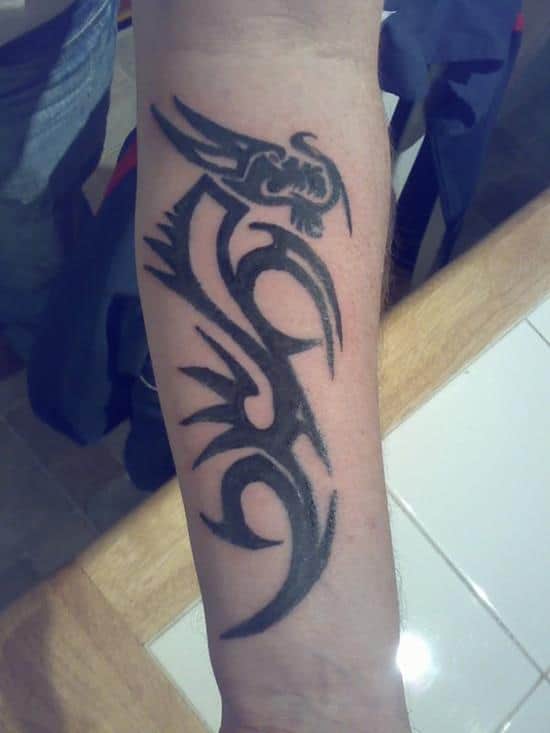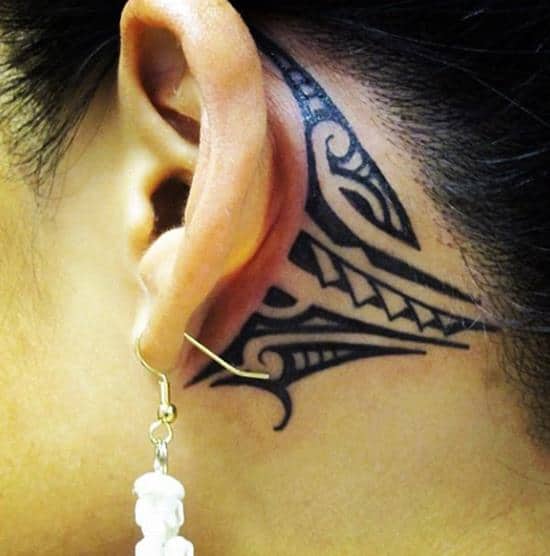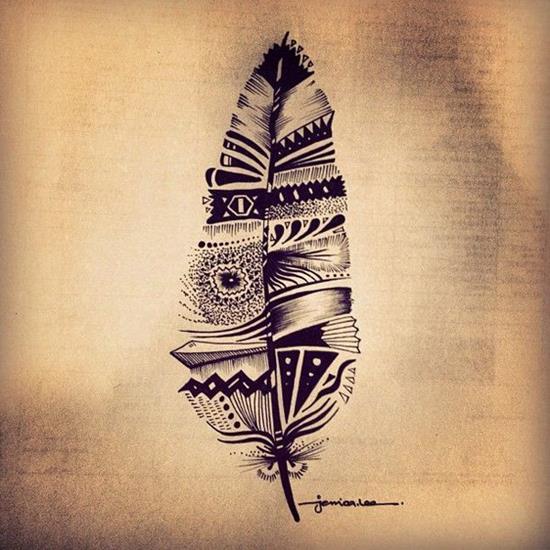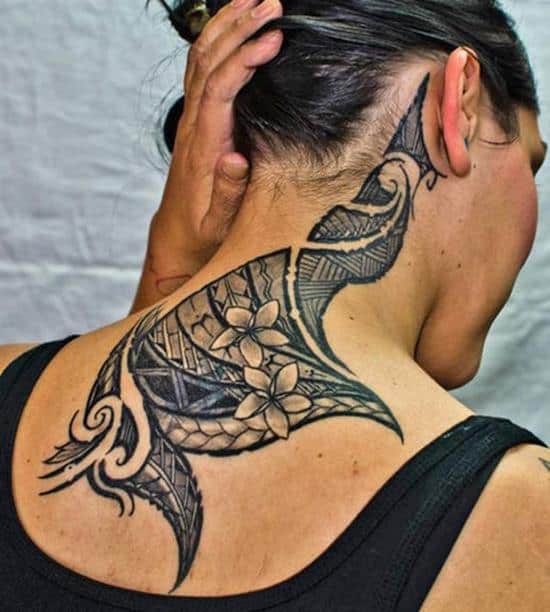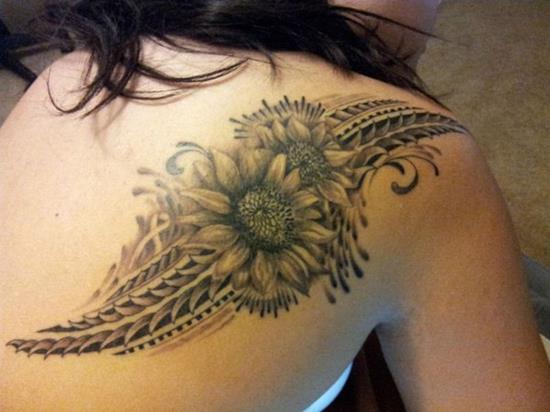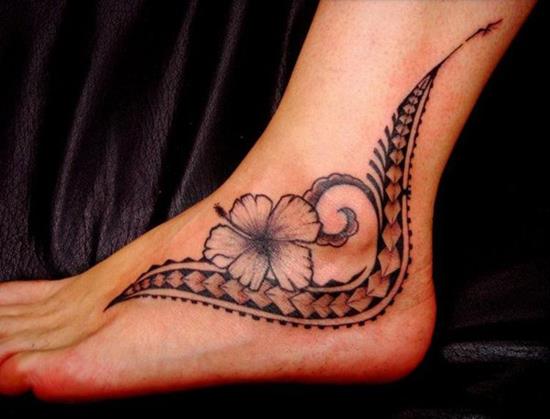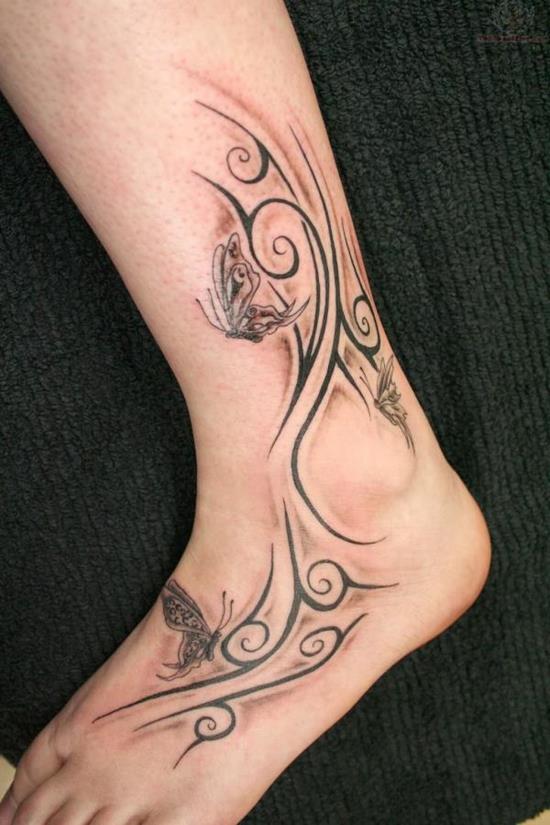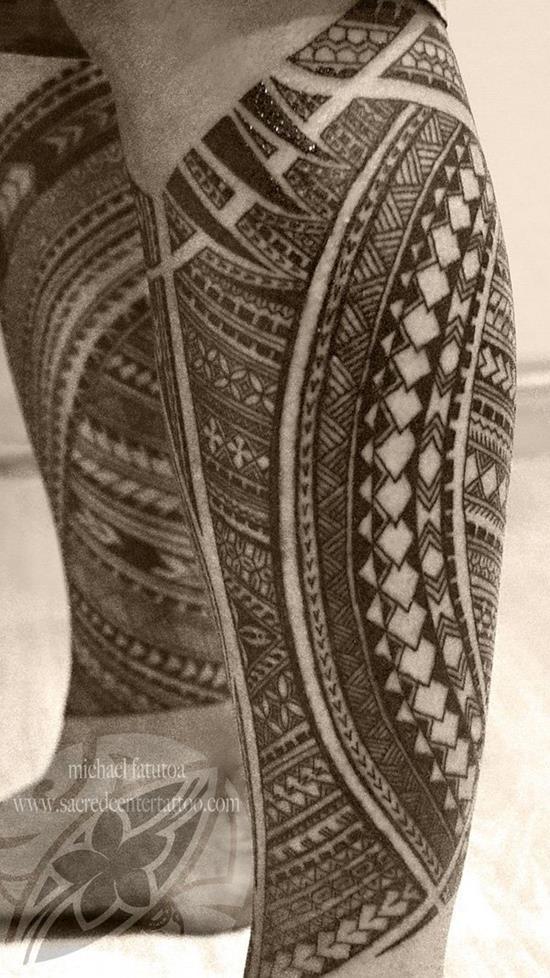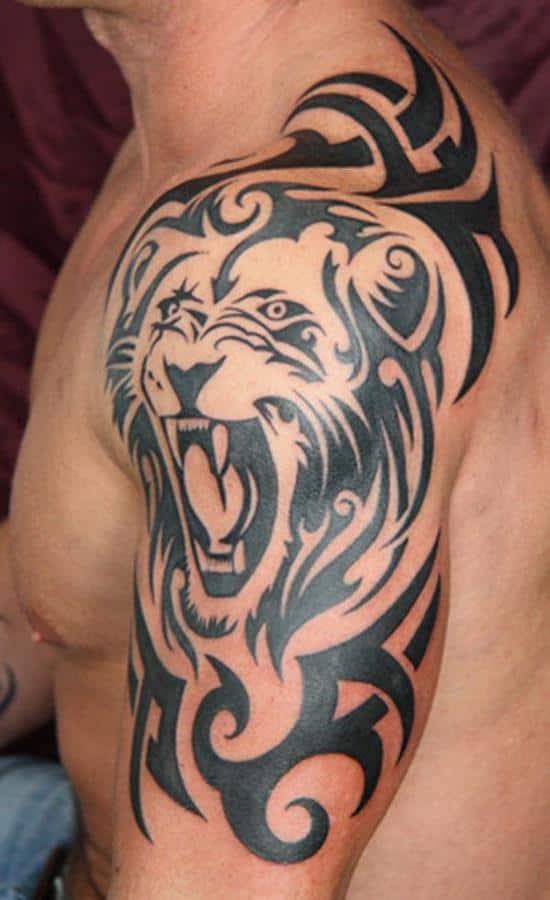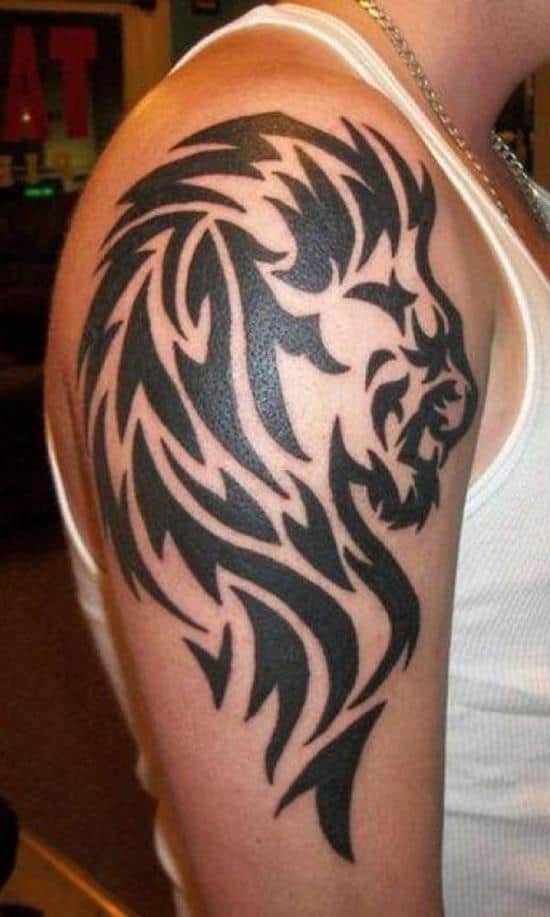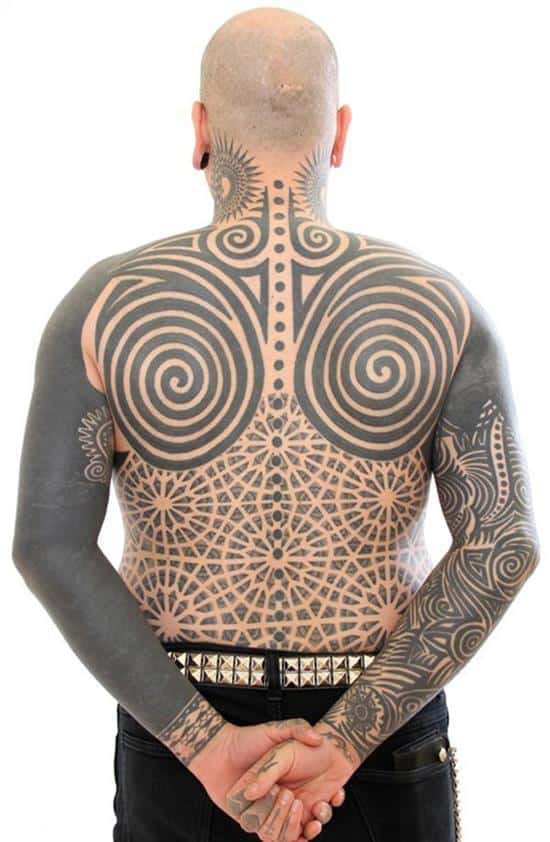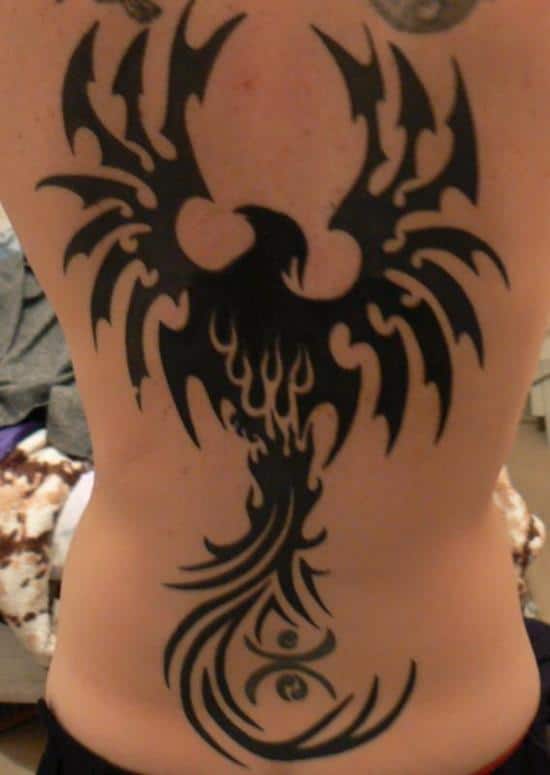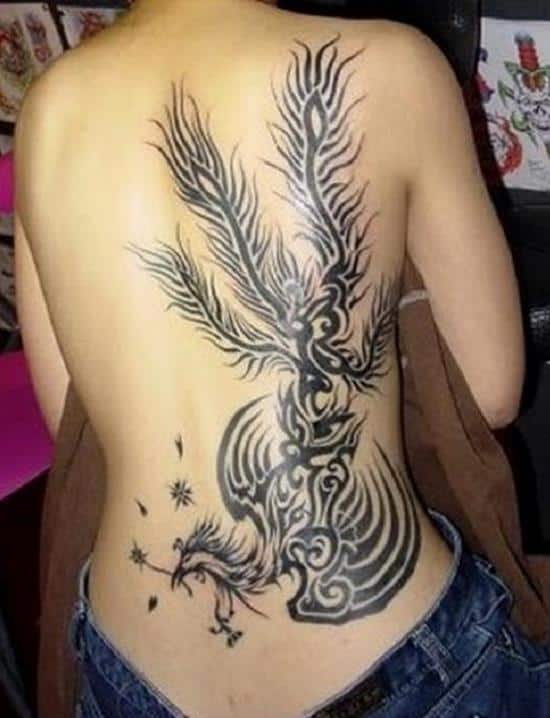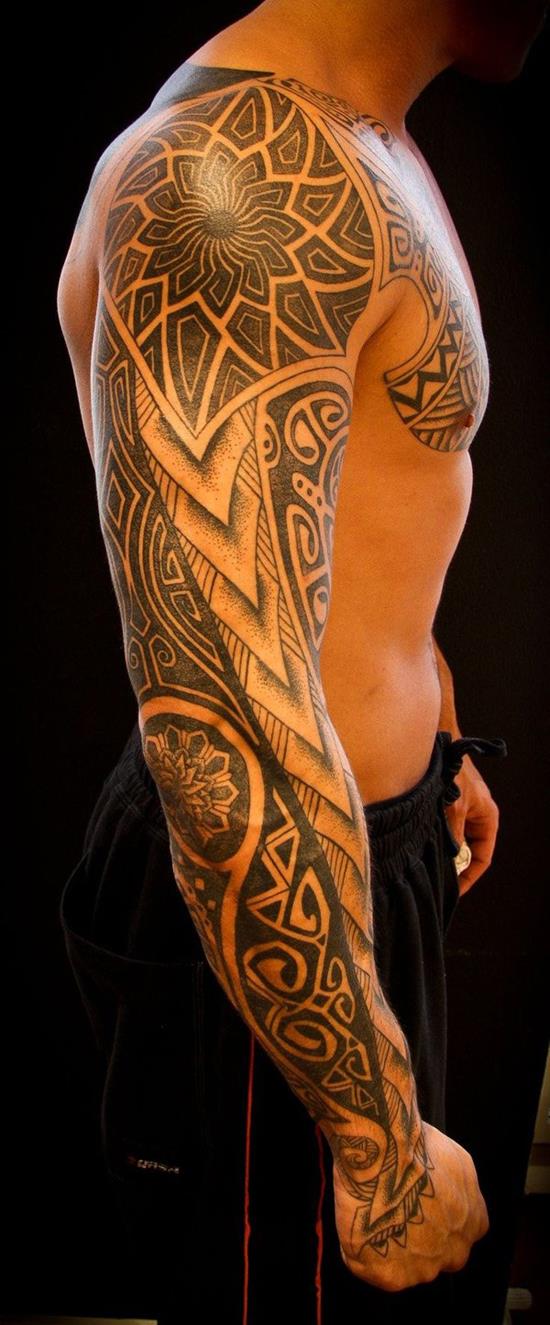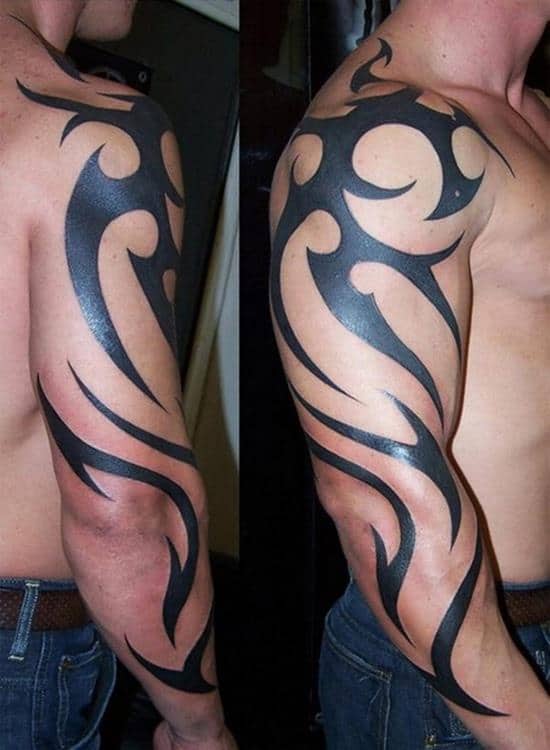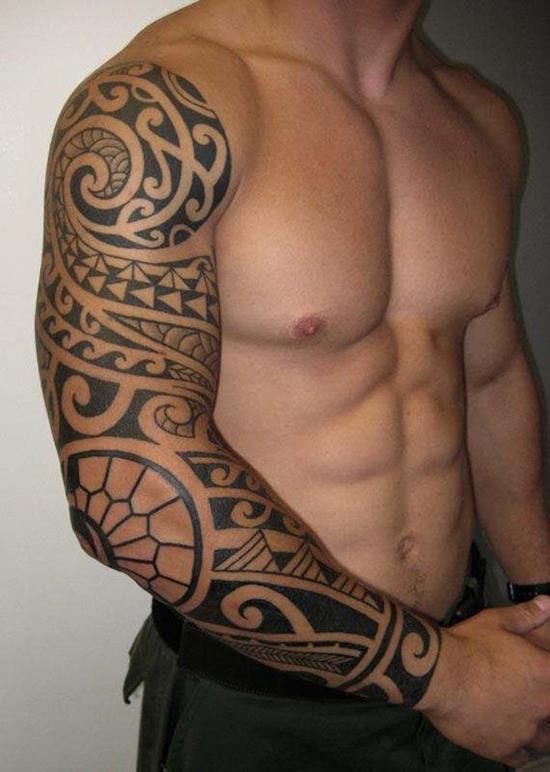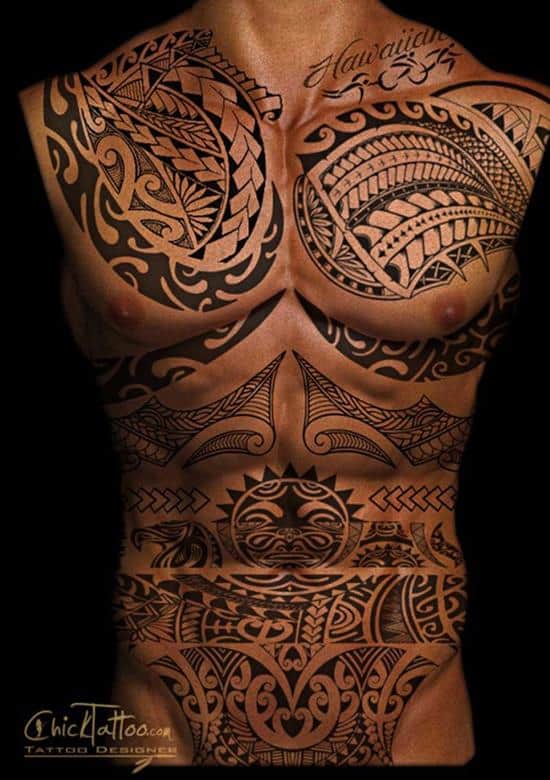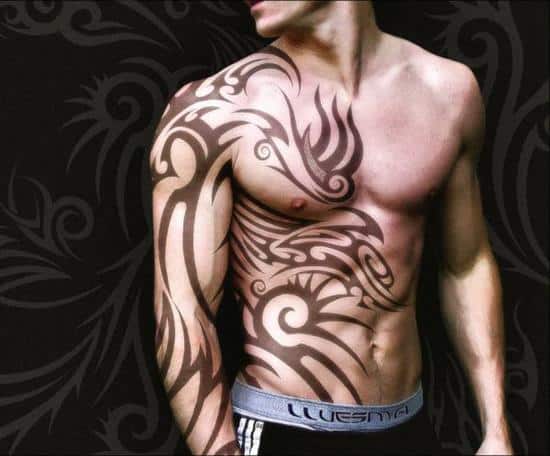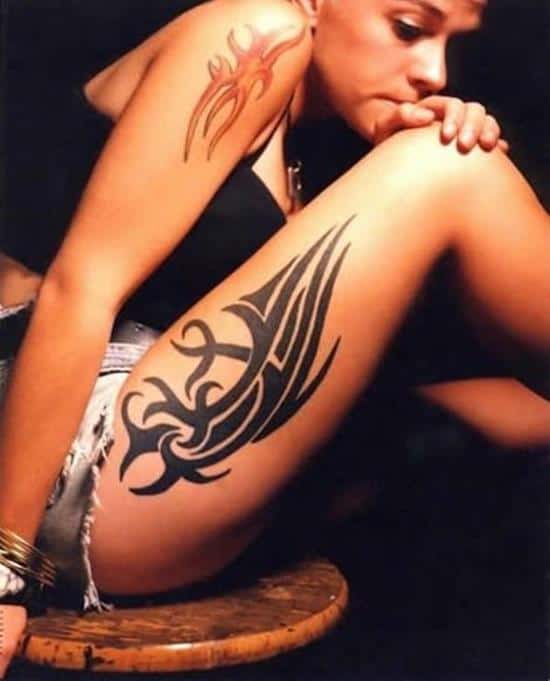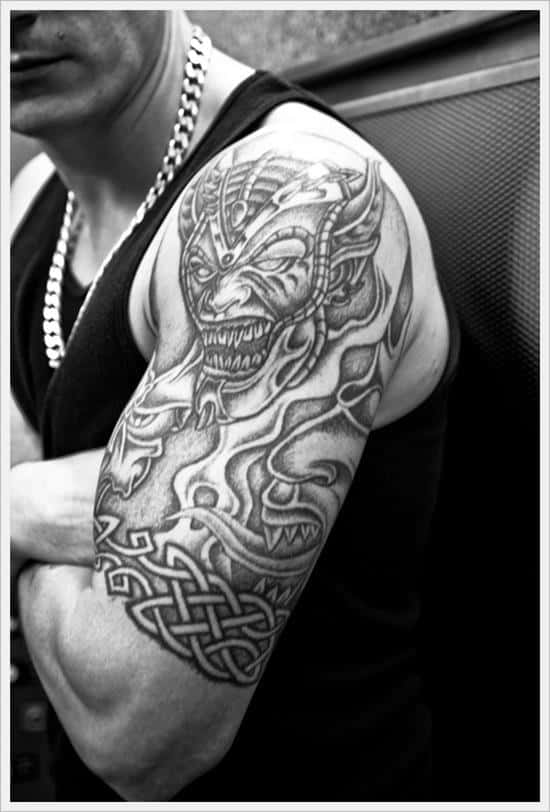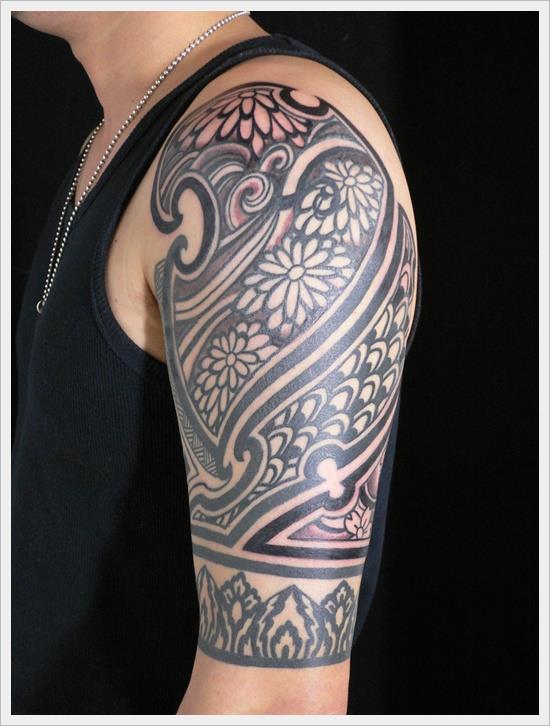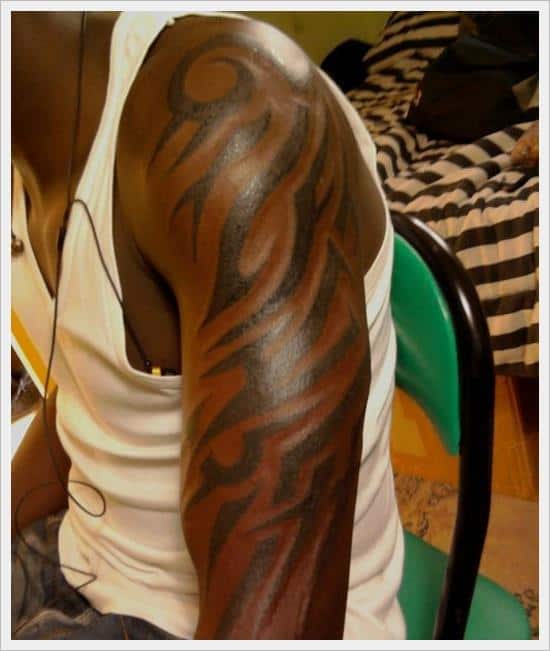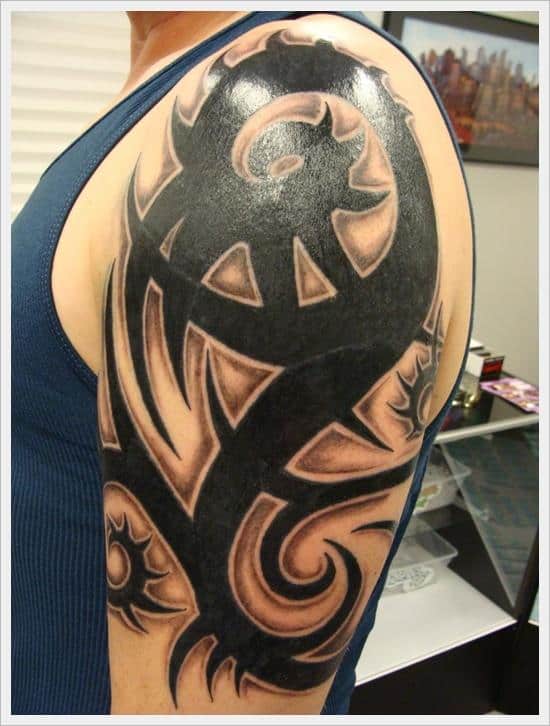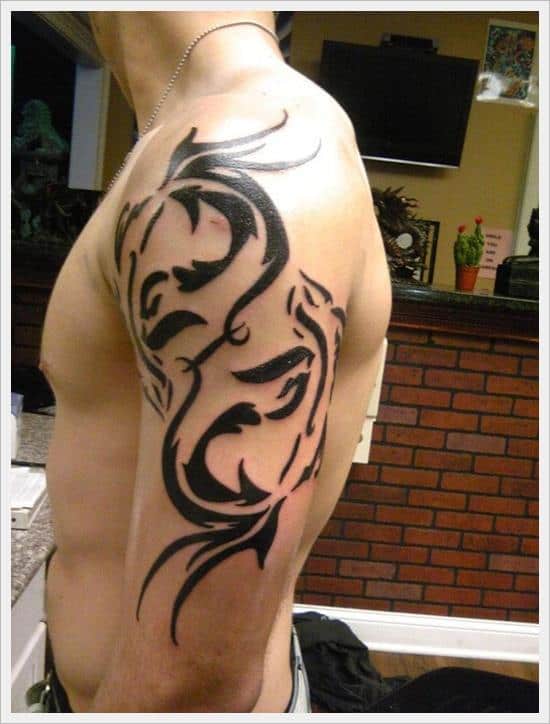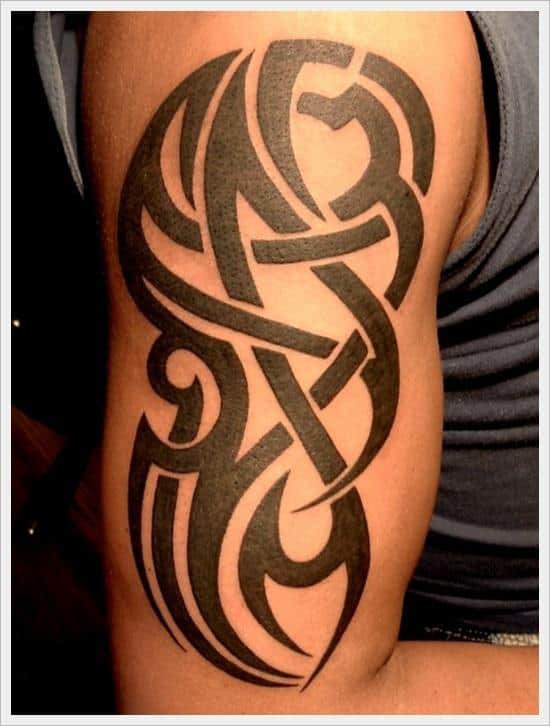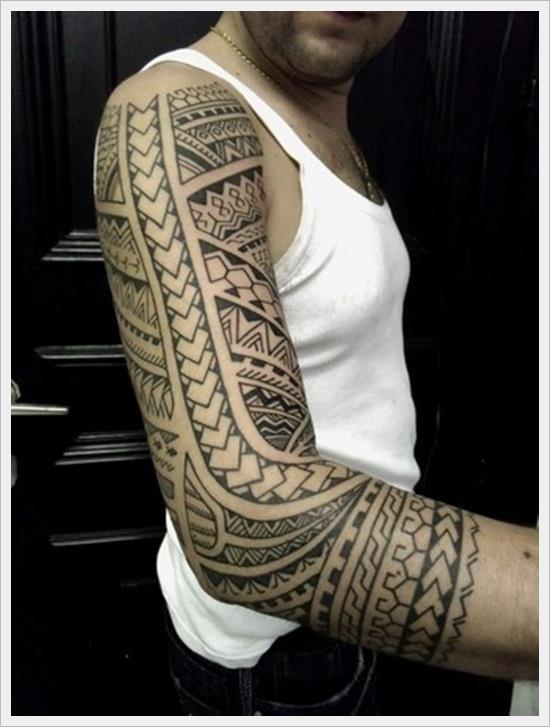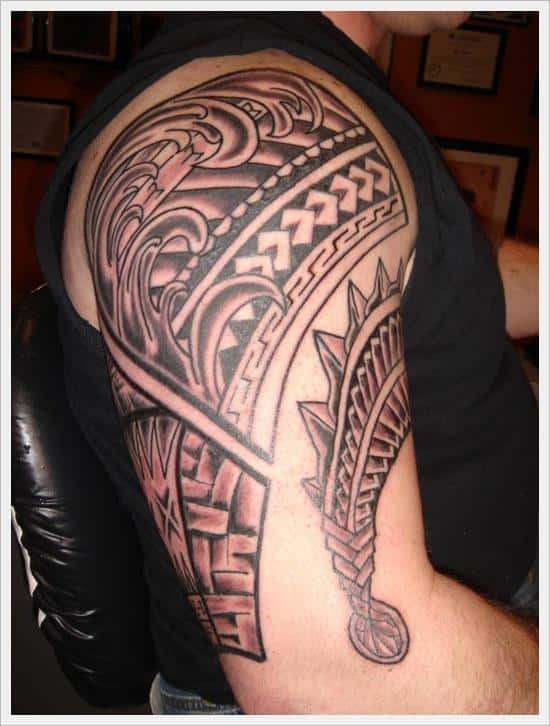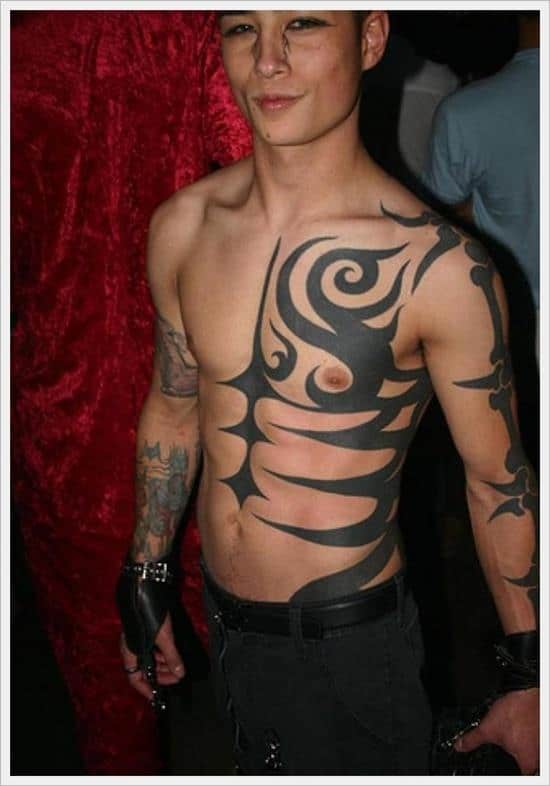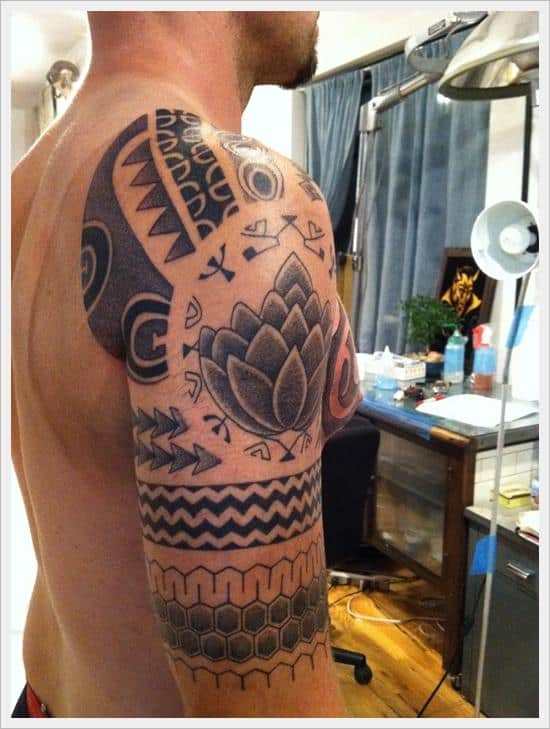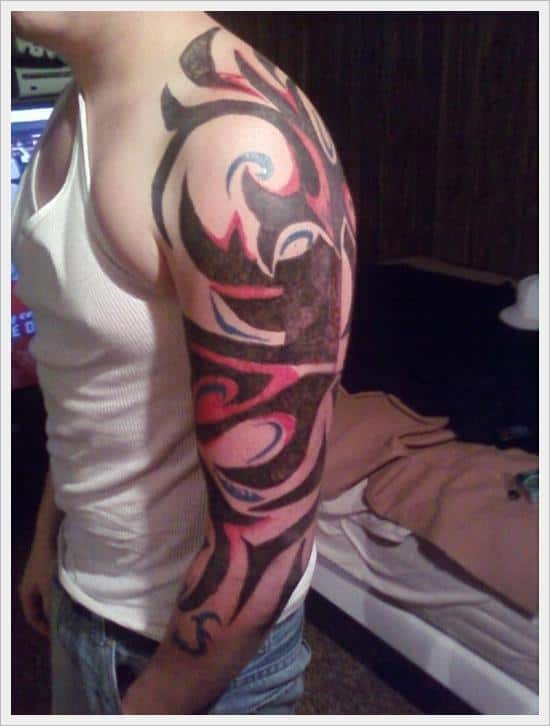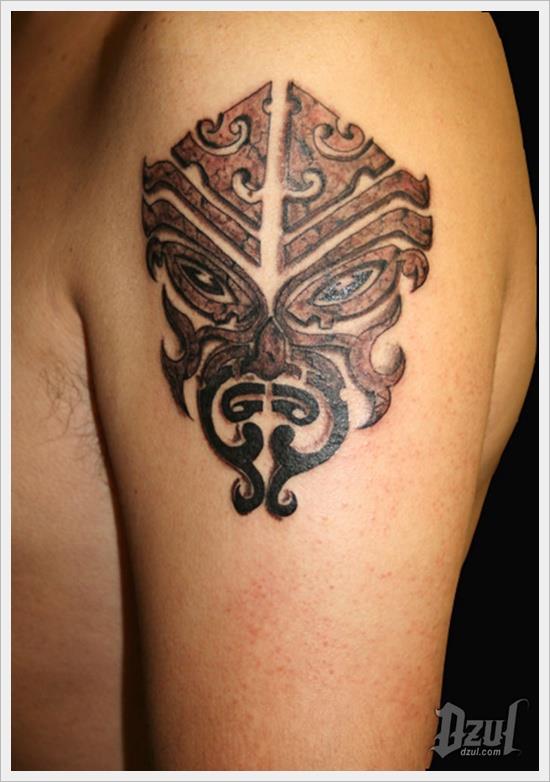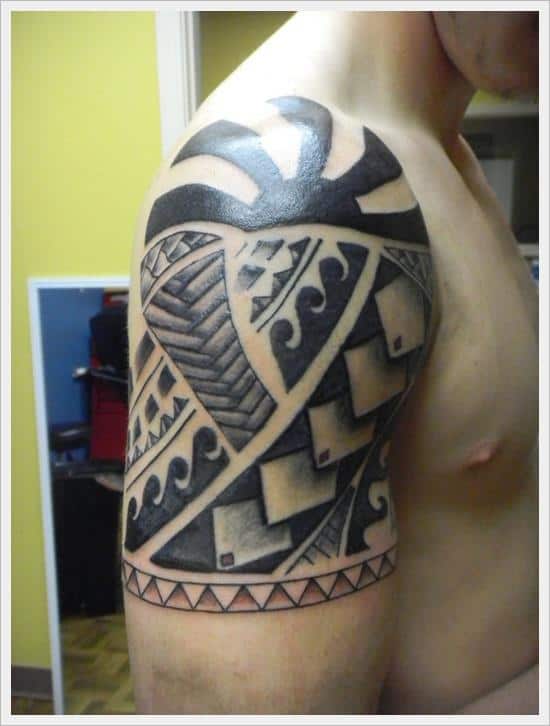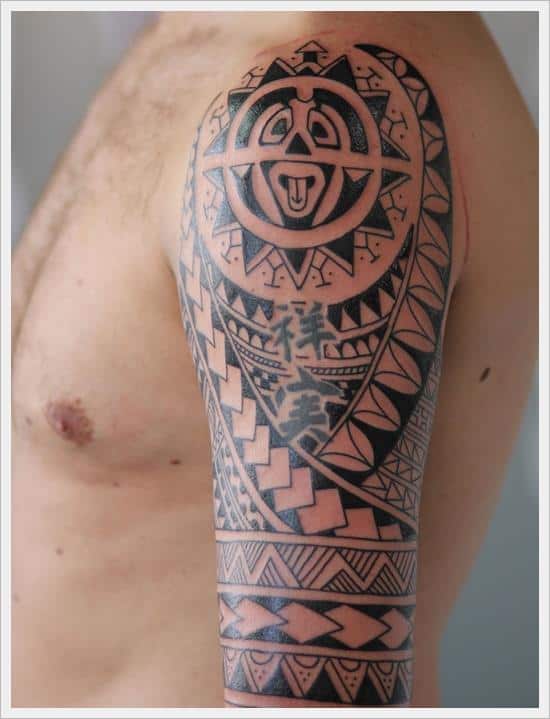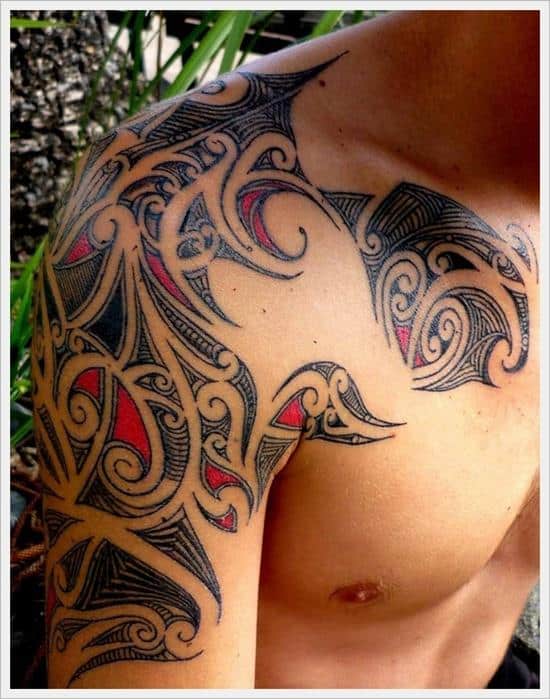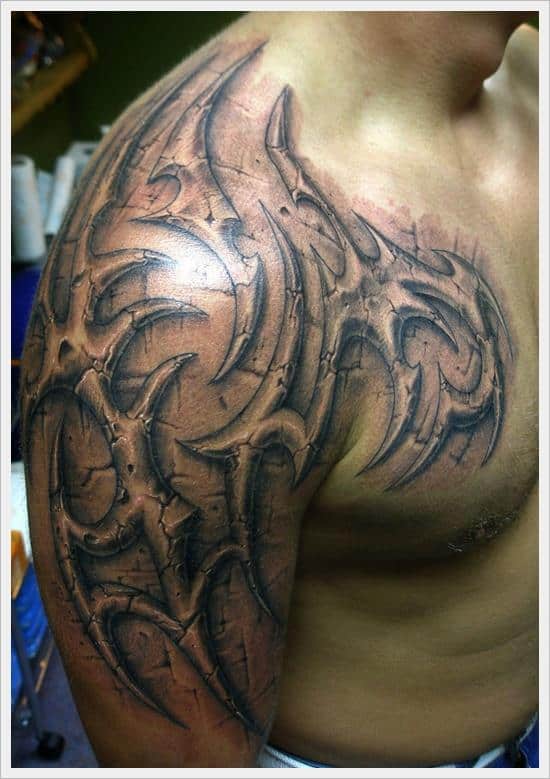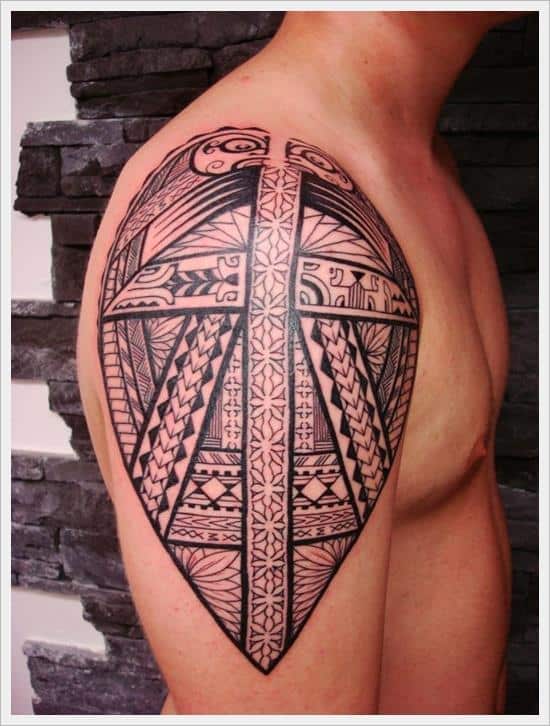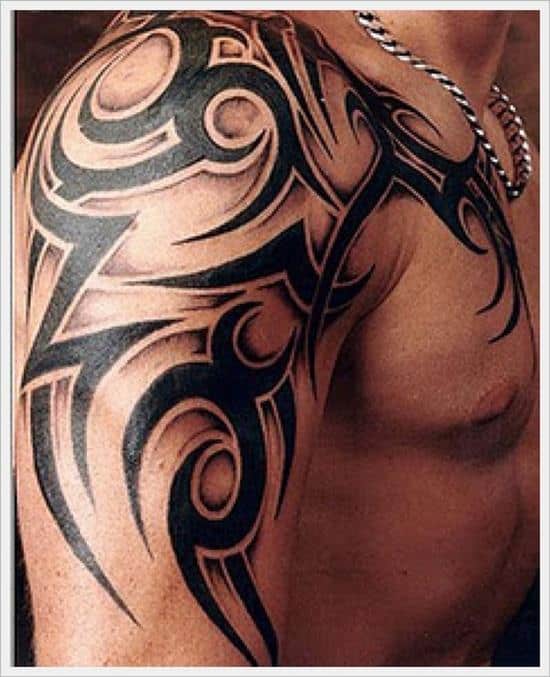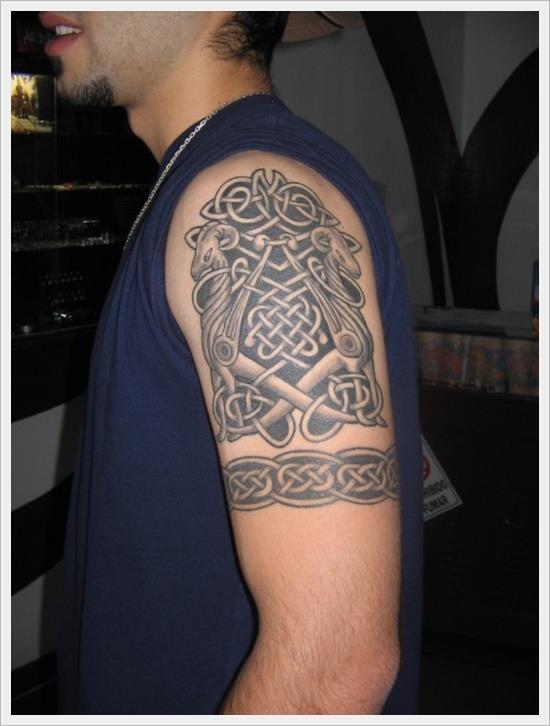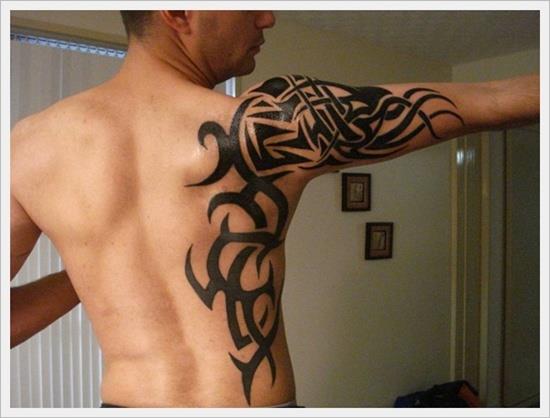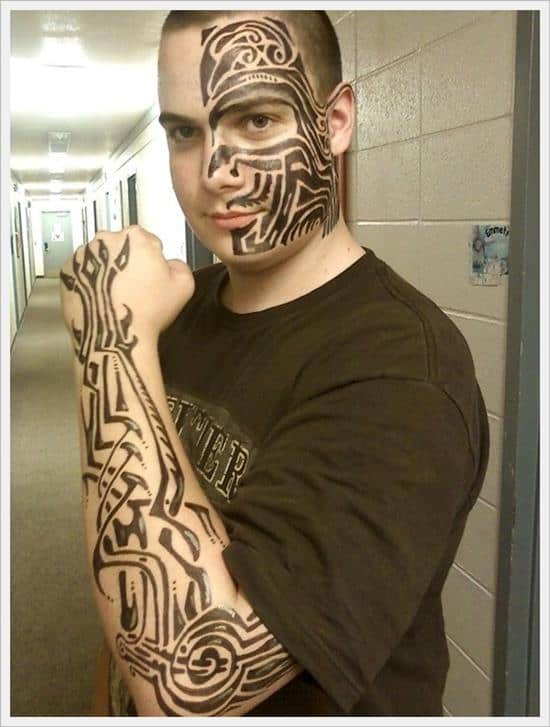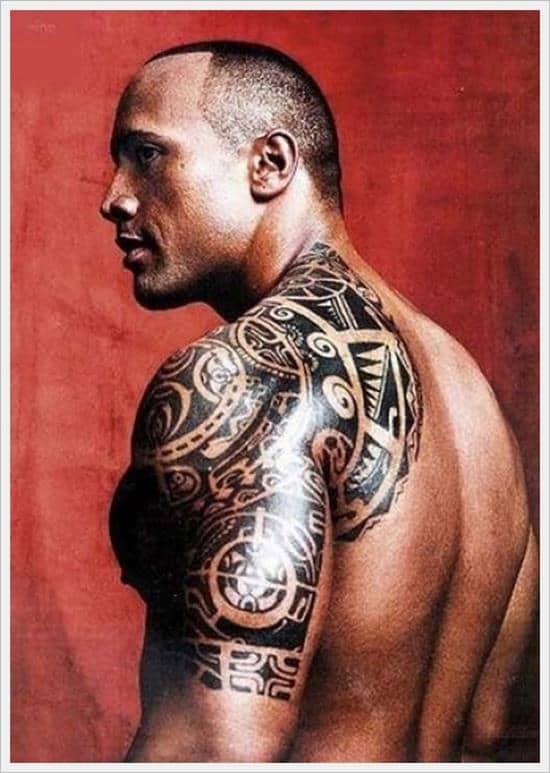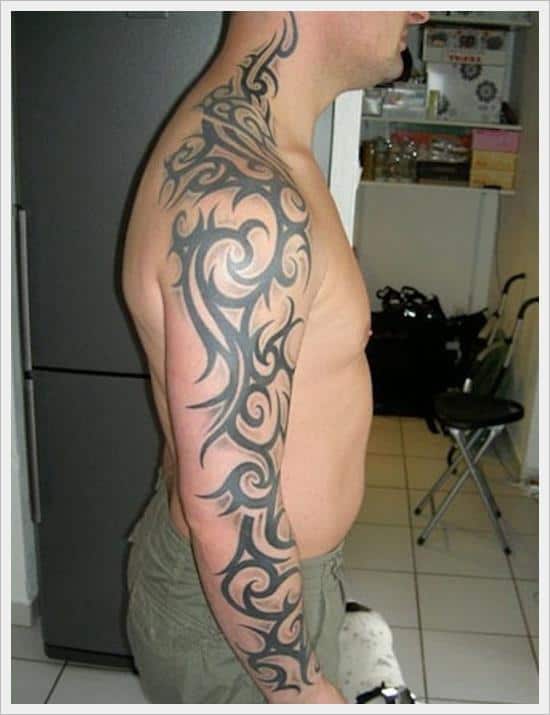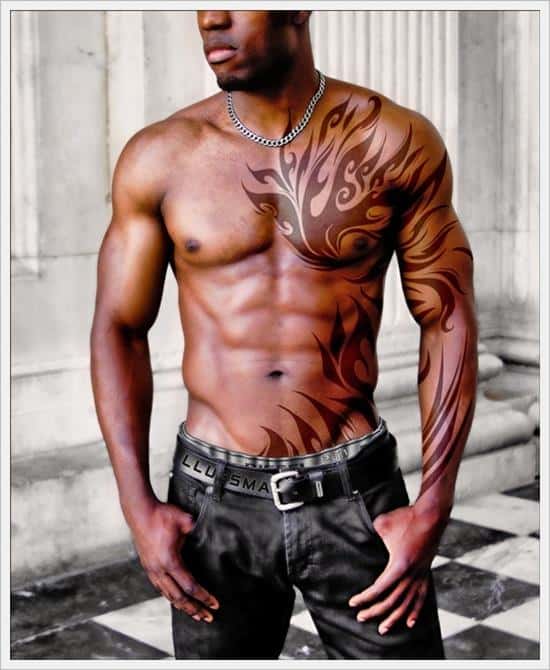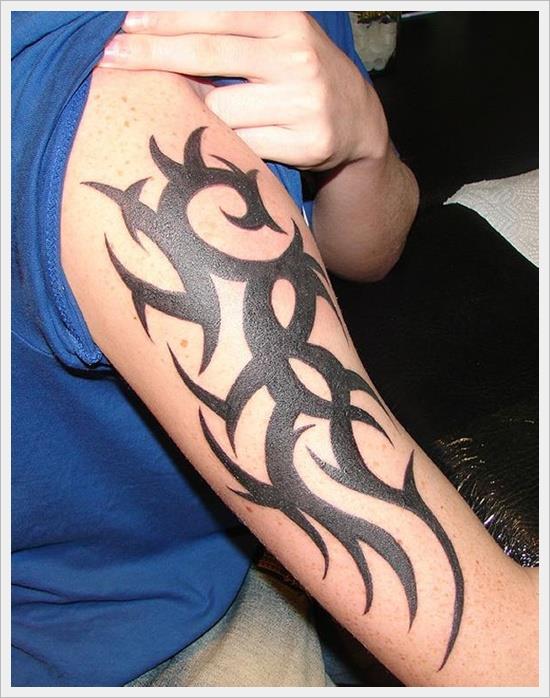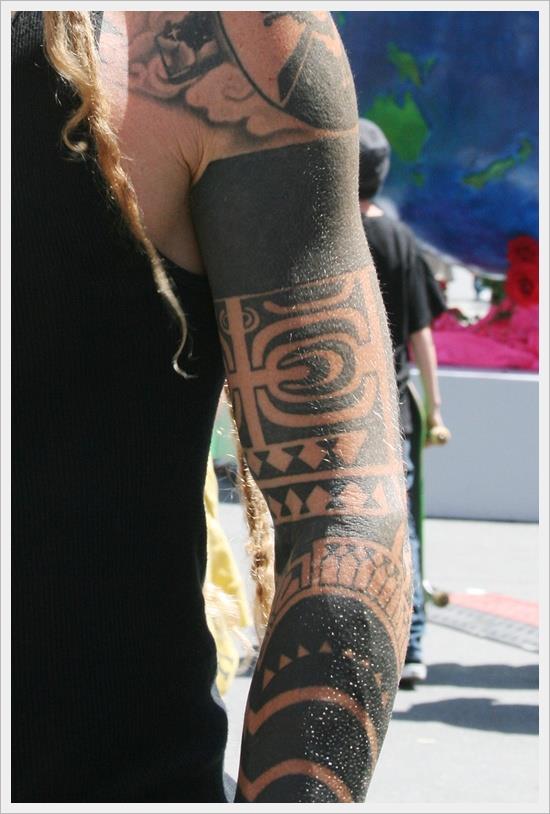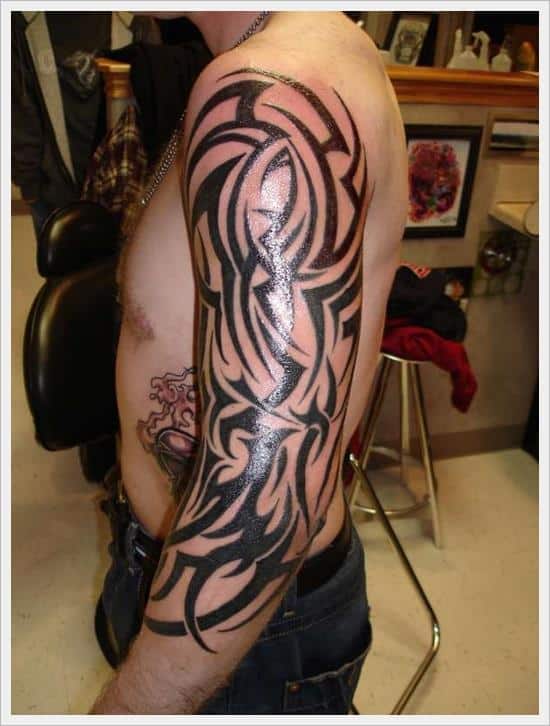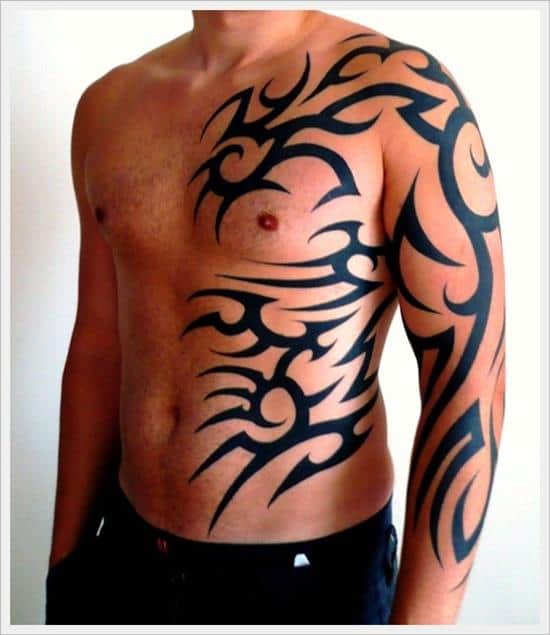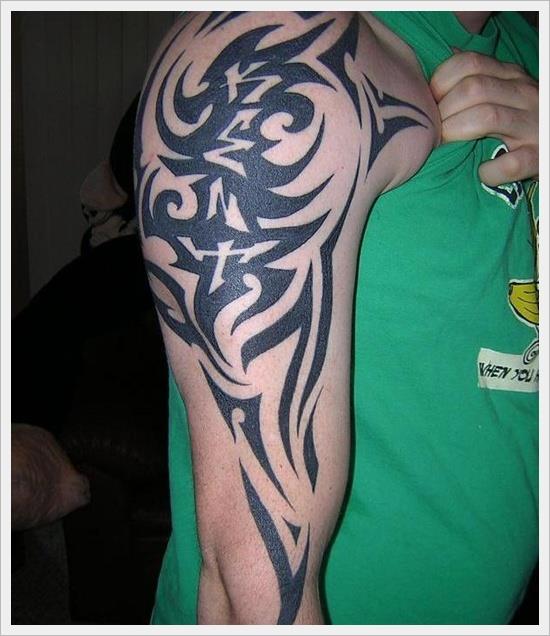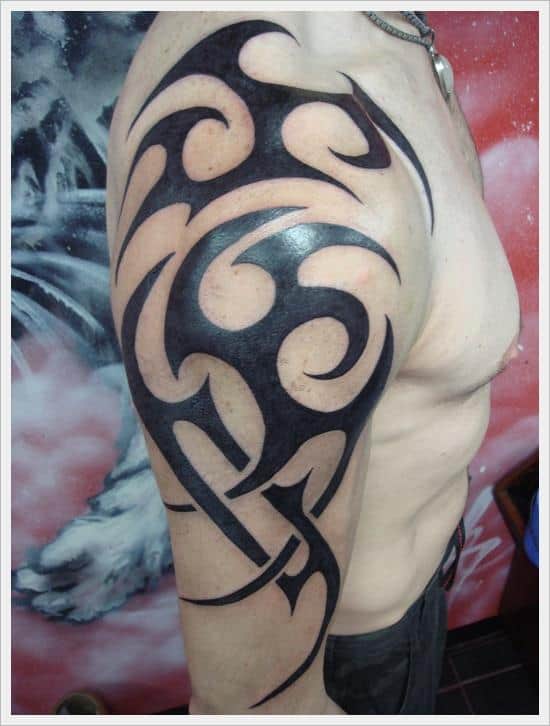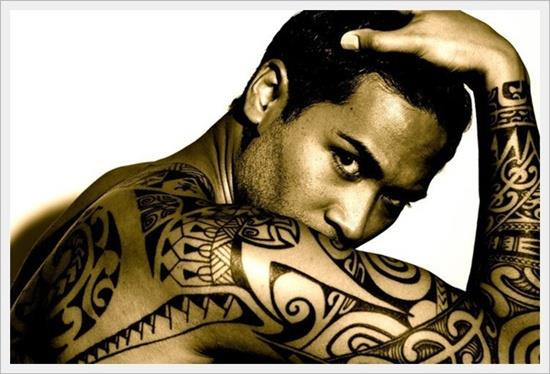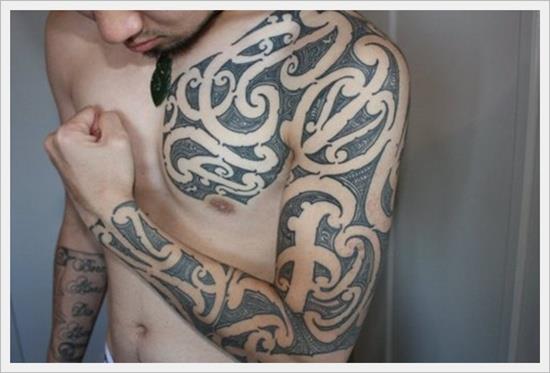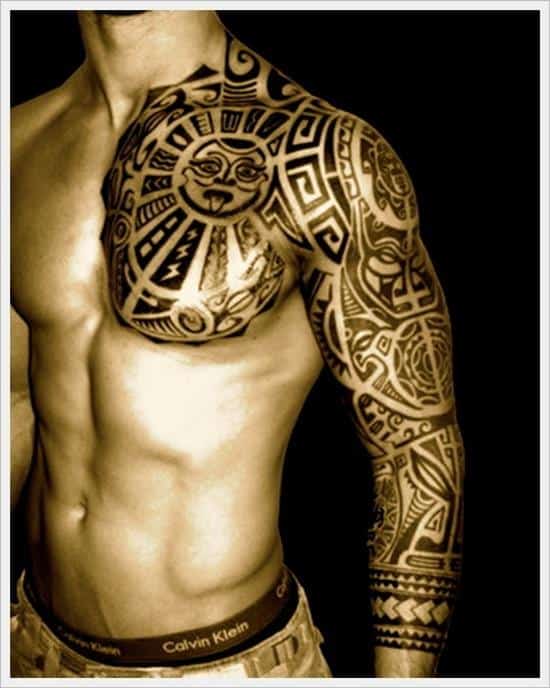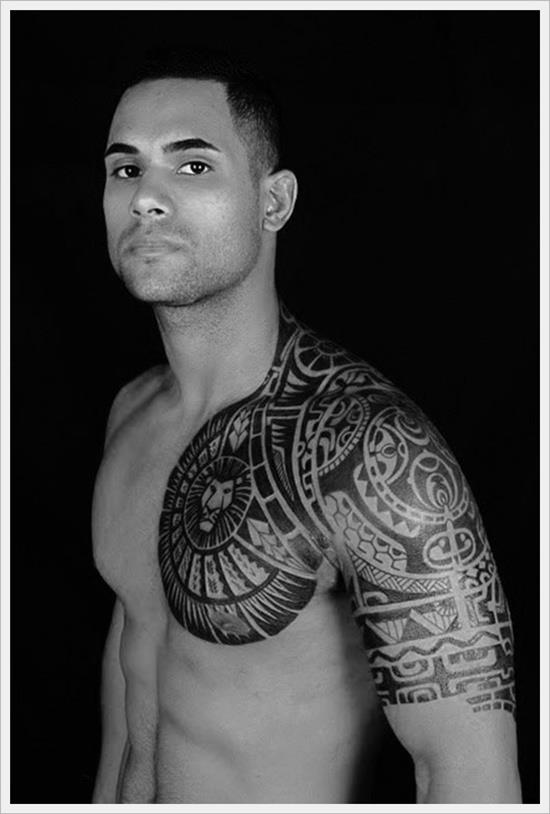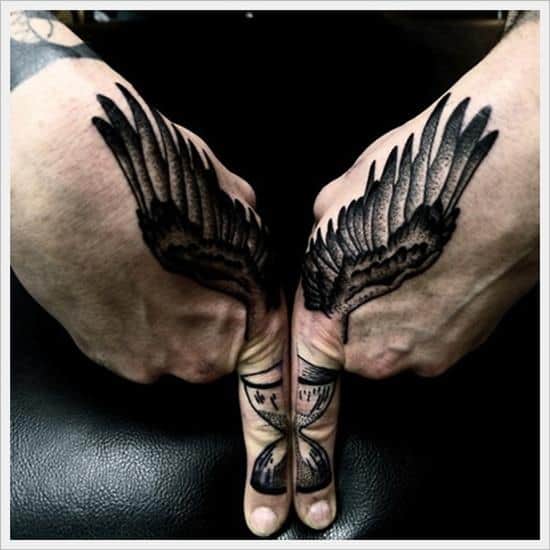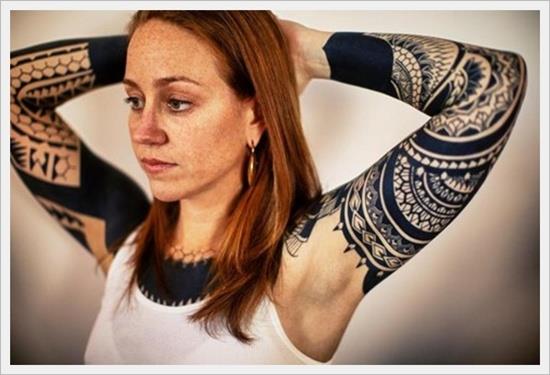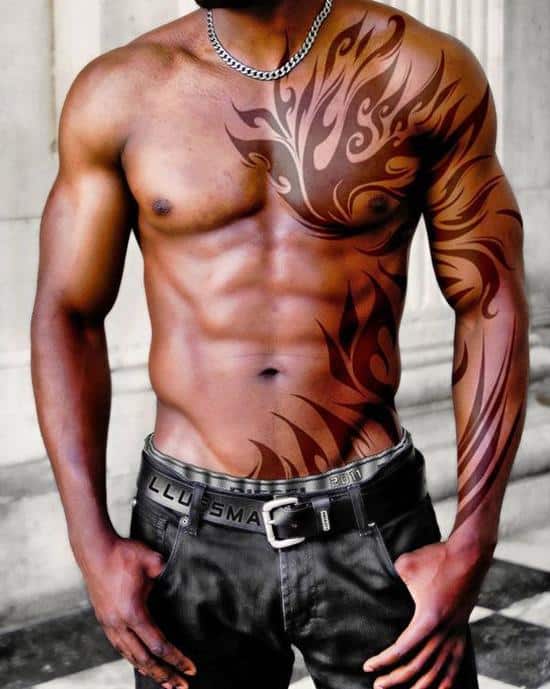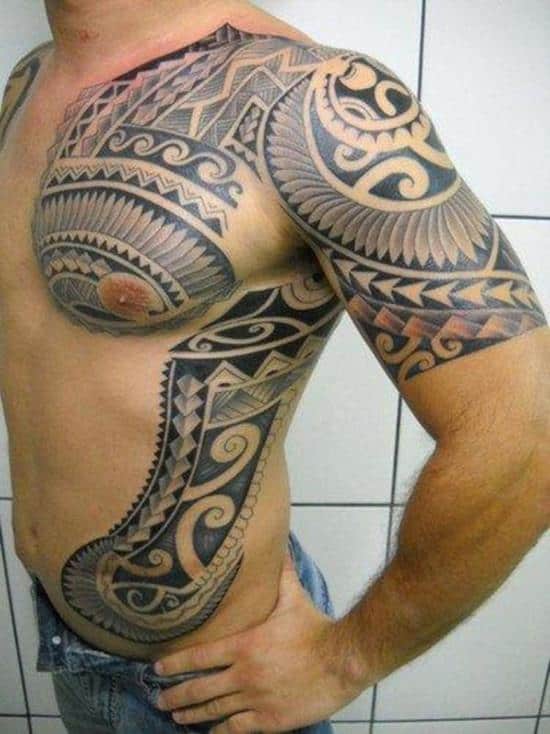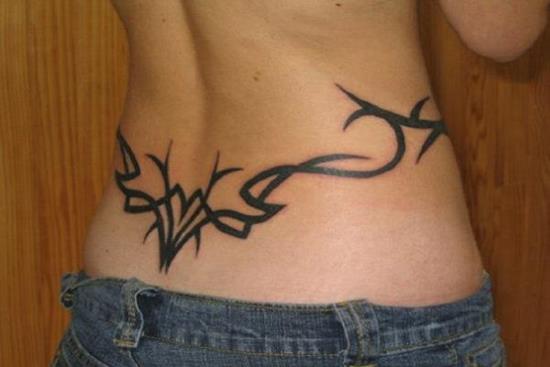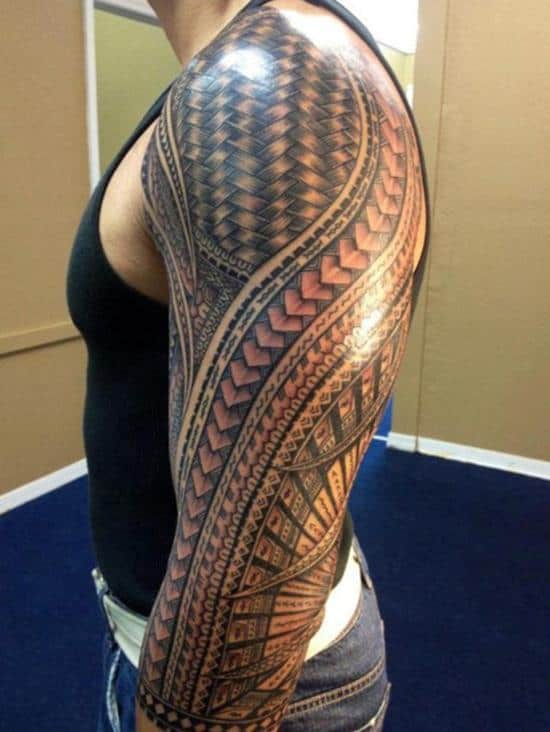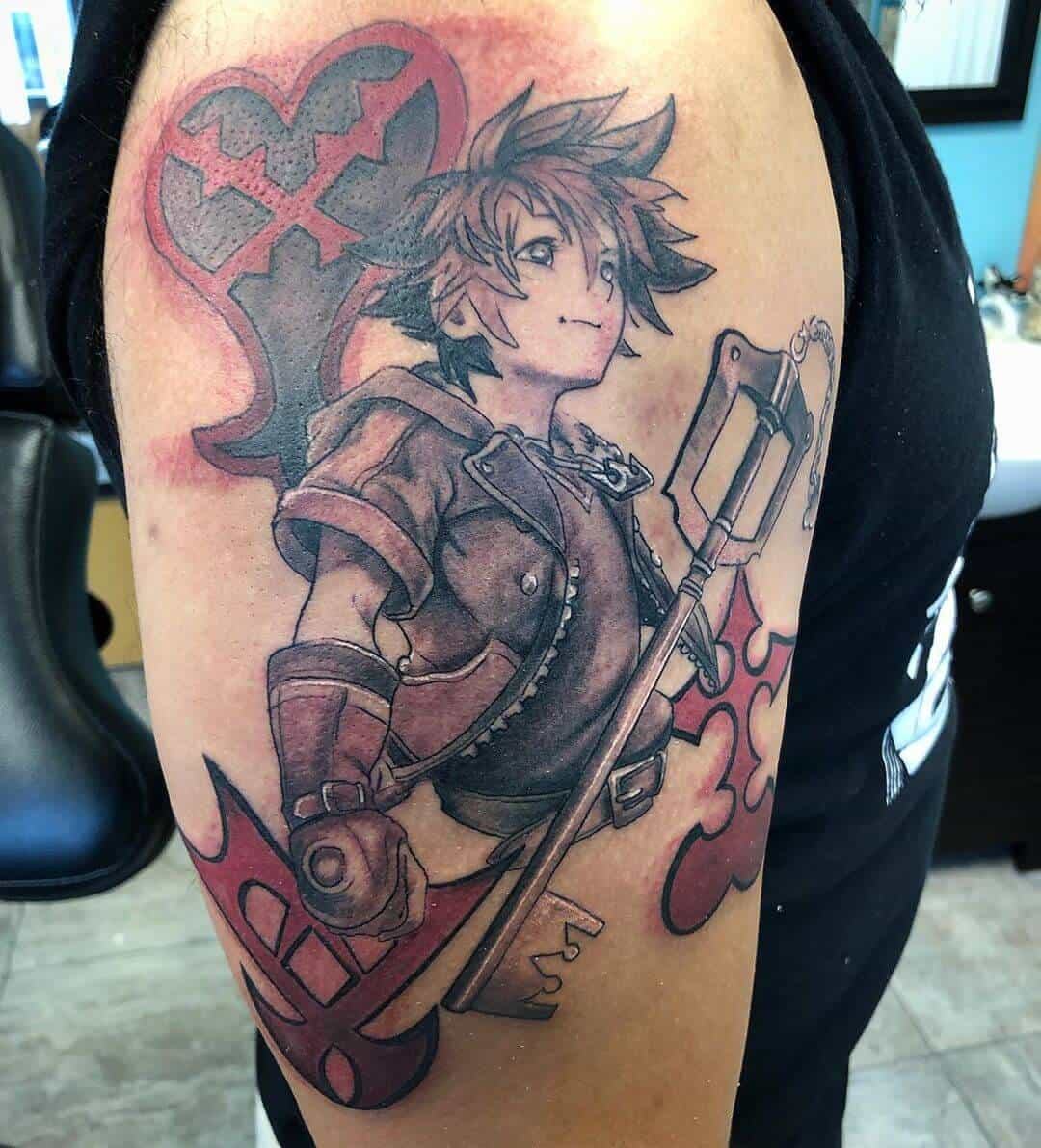Tribal tattoos are just as mysterious as the ancient cultures that inspire them.
Their enigmatic appearance, together with the visual appeal of the symmetry and intricacy involved in the designs, make them one of the most popular choices in today’s tattoo art.
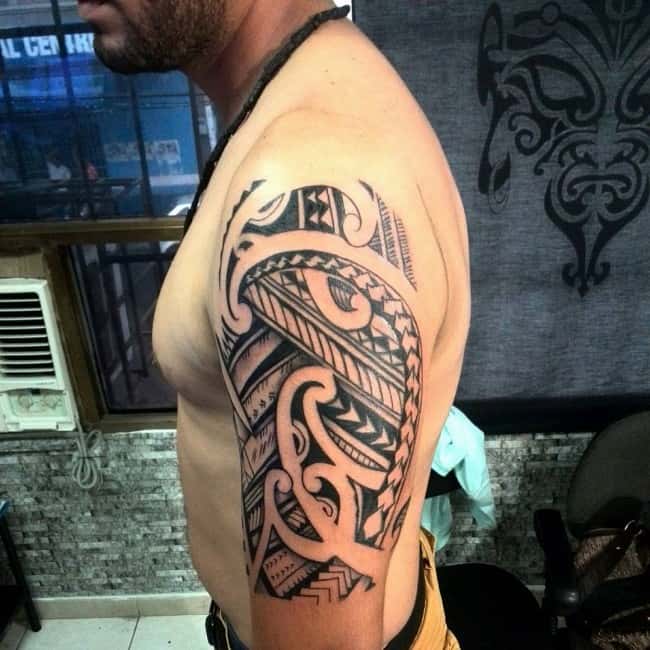
What do we mean by tribal tattoos?
When thinking about tribal tattoos, for most people two things come to mind.
The first is the generic tribal tattoo style, particularly popular during the late 80s and throughout the 90s.
These are the patterns composed of interlocking black spiky lines, thicker in the middle and tapering to a point on both ends.
These would be entirely abstract or arranged to resemble a shape – often dragons or birds.
Generally, these were purely decorative – not symbolic of anything in particular.
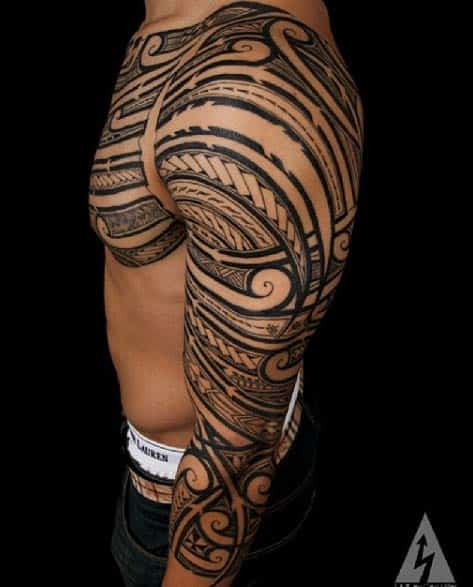
The other meaning of the phrase ‘tribal tattoos’ is based more in history than in contemporary tattoo styles.
Ancient tribes and civilizations used distinctive tattoos to communicate the status and achievements of individual members to the rest of the group and to distinguish themselves from other tribes.
Tribal tattoos of today are something of a throwback to the traditional tribal art of these tribes.
The decorative ‘tribal’ tattoos of the 90s have gradually been replaced with tribal art that is a reference to a particular tribe or culture.
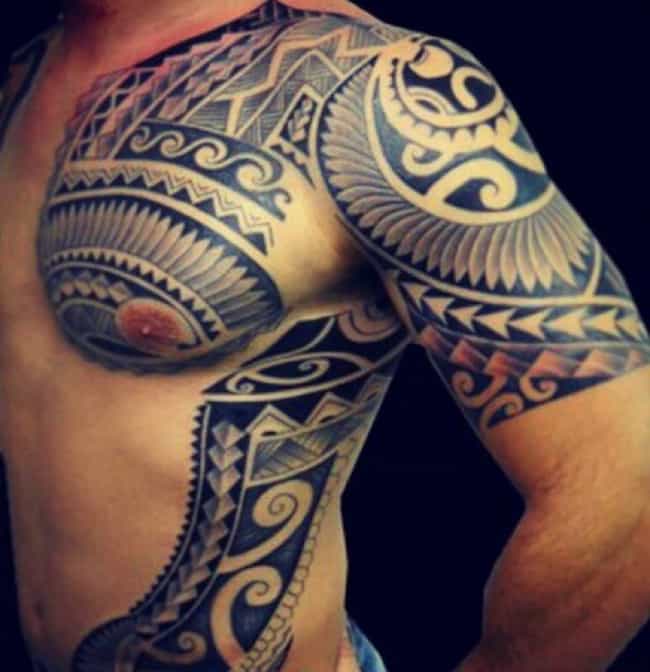
Nowadays, tribal tattoo designs are usually much more intricate and sophisticated than twenty or thirty years ago, and most often inspired by the original meanings and symbolism of their culture of origin.
While they’ve retained their visual appeal, they’re also imbued with hidden meaning.
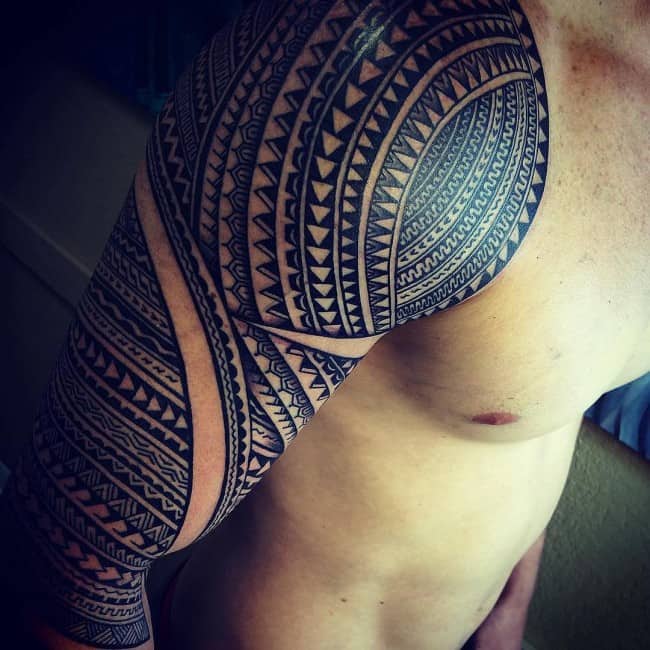
History of tribal tattooing
To say that tribal tattoos have a long history would be an understatement – we’re talking about at least five thousand years’ worth of history.
According to evidence discovered by archaeologists, tattoos have been practiced by various tribal groups around the world since the Neolithic times at least.
The earliest example of an actual tattoo that has been uncovered so far dates back to sometime around 3200 BC.
In fact, Europe’s oldest known human mummy is also the earliest example of tattooing on human skin.
Ötzi the Iceman was uncovered in 1991 in the Ötztal Alps – a mountain range spanning across southern Austria and northern Italy – and bore tribal tattoos on his skin.
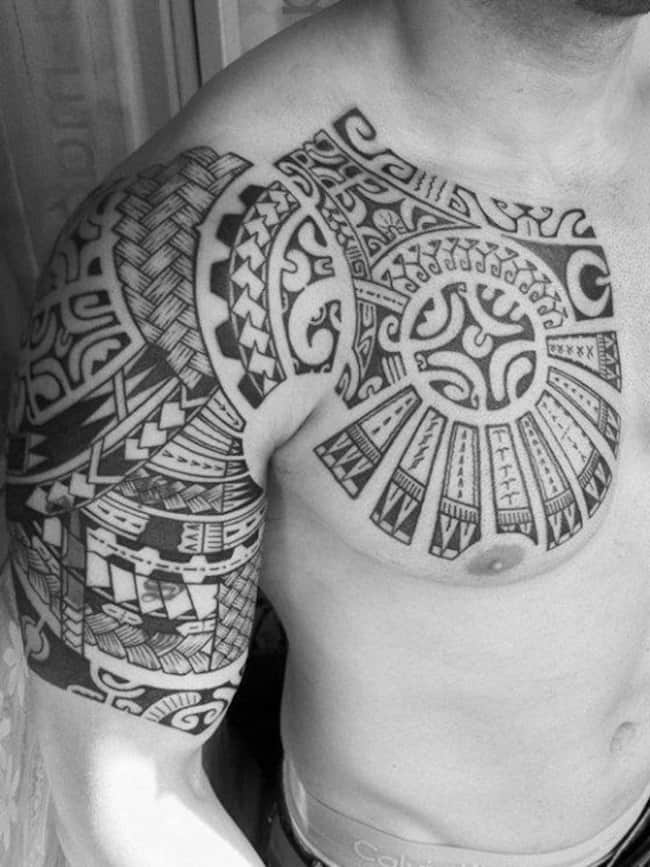
Ötzi’s had a total of 61 (!!) tattoos, which consisted of 19 groups of black lines.
Not much is known about the method in which these tattoos were applied, but it has been suggested that they may have been related to pain relief practices. The pigment used for staining Ötzi’s skin came from soot.
Although the oldest, Ötzi’s not the only example of tattooed mummies – other ones have been discovered as far apart as Alaska, Mongolia, Egypt, China, Sudan, and the Philippines.
Modern tribal-inspired tattoo designs are based on much later tribes, though – ones whose cultures, mythologies, and symbolisms are known today and relatively well-understood.
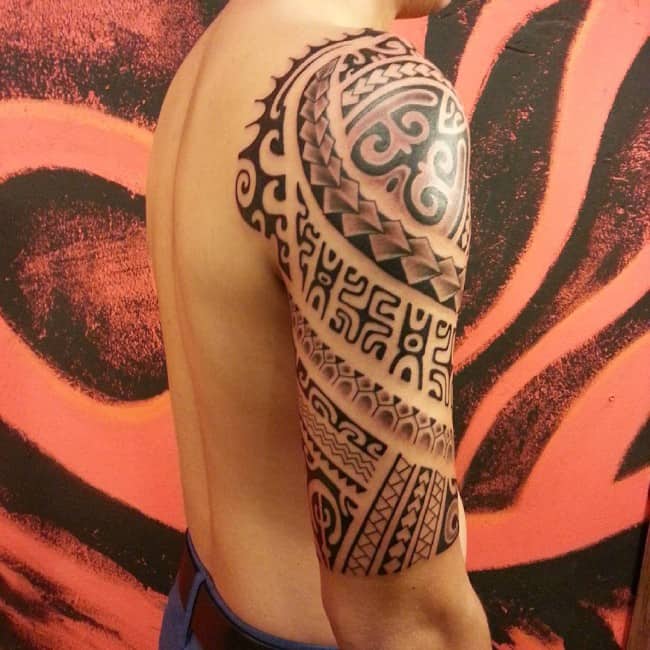
Polynesian tribal tattoos
Tribal tattoo designs originating in Polynesian cultures are perhaps the most popular choice nowadays.
Polynesia is the collection of over one thousand islands falling into the Polynesian Triangle – the area between Hawaii, New Zealand, and Easter Island.
The tattoo tradition in Polynesia reaches back at least two thousand years. Like in the case of most tribal tattooing, Polynesian tattoos were marks of adulthood and of particular achievements, usually related to war, battles, courage, and strength.
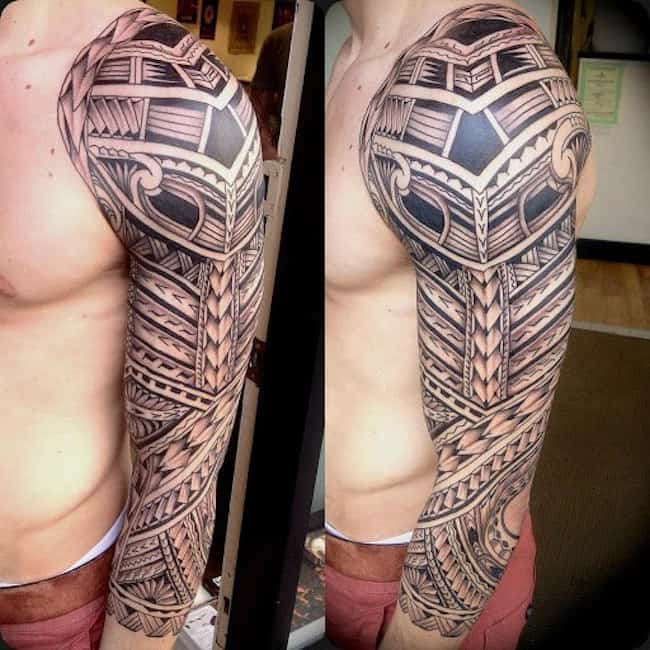
Tattooing was considered a sacred practice and involved a series of rituals – only after completing these was an individual permitted to get a tattoo.
Common elements in Polynesian tribal tattoos include shark teeth, ocean waves, spearheads, and the enata – a Polynesian tribal symbol for the human figure. Animals are also a common theme – particularly turtles, lizards, and stingrays.
As well as having a specific meaning conveyed through this use of symbols, the tattoo’s significance is also expressed through placement. For instance, Polynesian tattoos on shoulders and arms relate to strength and bravery, on the forearms and hands – creativity and manual skill, and on the chest – honor and sincerity.
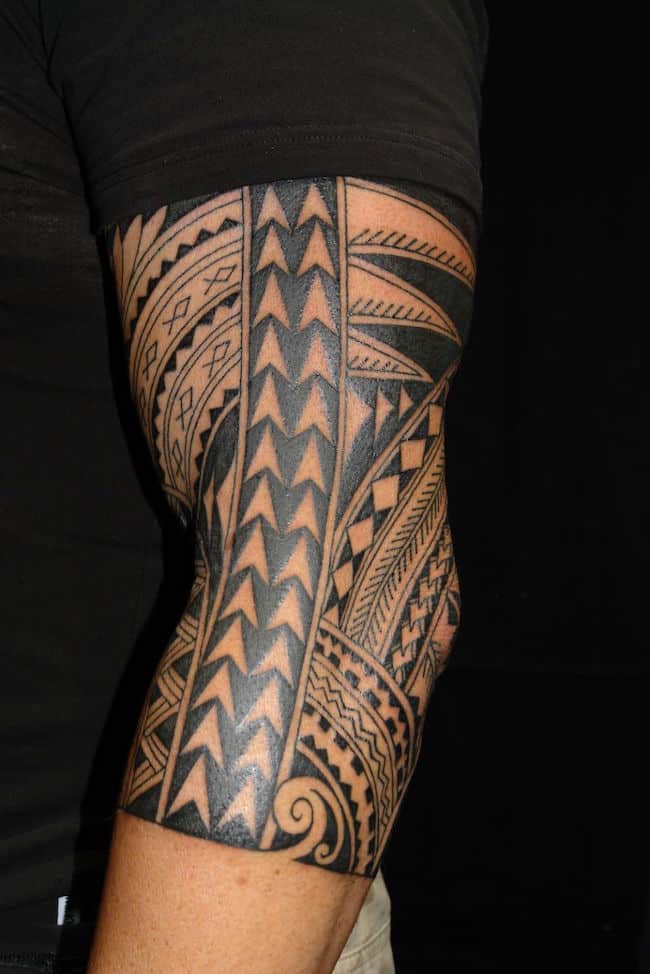
Since Polynesia is such a large collection of islands, it’s unsurprising that the symbolism expressed by these tattoos was not unique to every location within the Polynesian Triangle.
Hawaiian and Samoan tattoos are perhaps most distinctive, though we also distinguish Marquesas Islands, Tahitian, Easter Islands, Tonga, and Cook Islands tattoo styles.
To find out more, check out our article on Polynesian tattoos – there, you’ll find a detailed overview of the meanings of symbols and patterns used in these tribal designs.
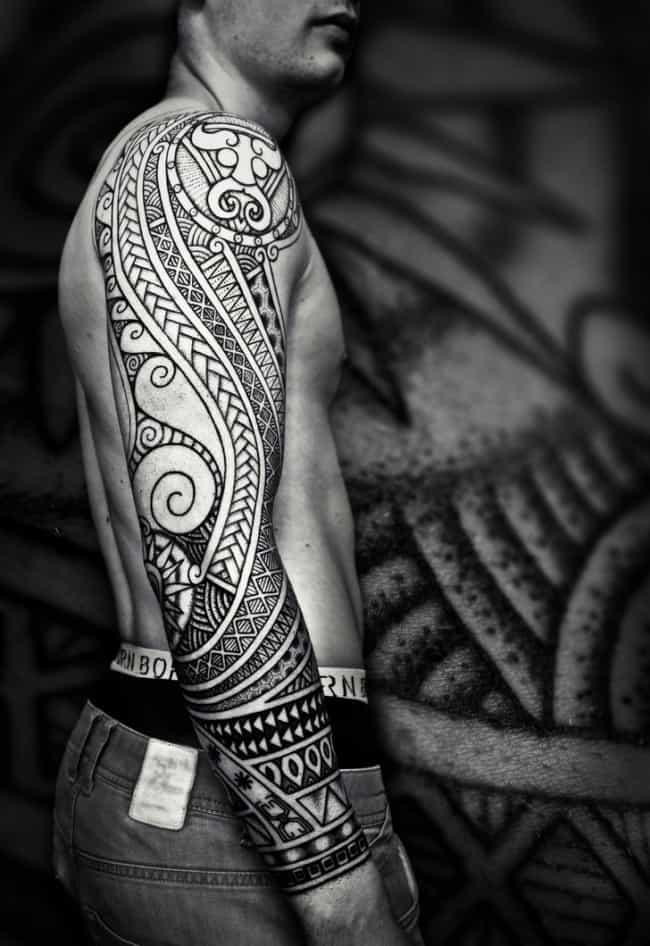
Hawaiian tribal tattoos
Hawaiian tribal designs heavily feature abstract patterns, turtles, and flowers.
In Hawaii tribal culture, tattoos weren’t only marks of adulthood and bravery – they were also considered protective talismans or a means of honoring a deceased family member.
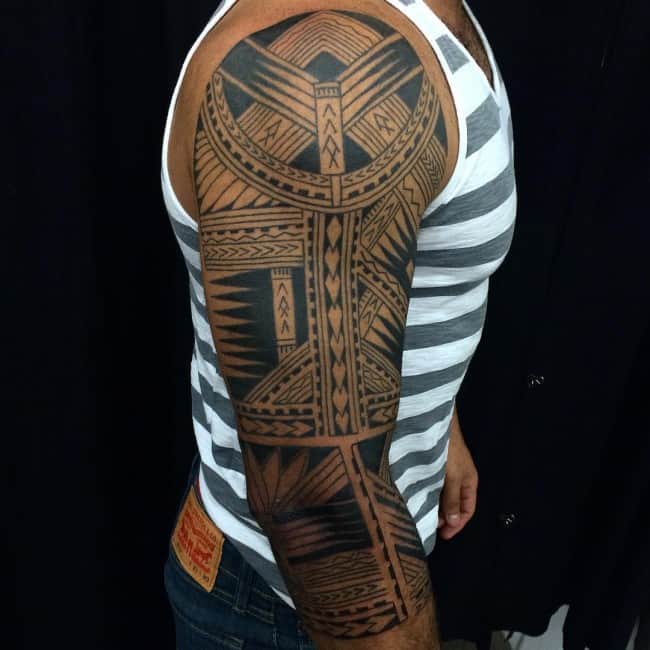
Samoan tribal tattoos
Intended to mark the social status of the bearer, Samoan tattoos were signs of strength, authority, and rank first and foremost.
Because the tool used for tattooing was a shark tooth or pig tooth rather than a needle, the process was extremely painful. It was considered a matter of great dishonor if an individual wore an incomplete tattoo, as it suggested weakness and lack of endurance.
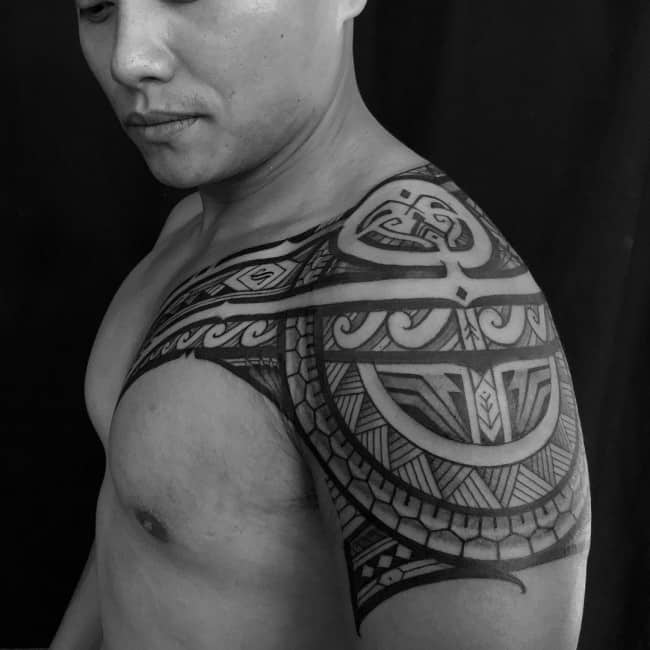
Maori tribal tattoos
The Maori people are believed to have originally been a wandering Polynesian tribe, who settled in what is now New Zealand.
Due to a few centuries of being largely separated from the rest of Polynesia, the Maori have developed a culture that’s distinctly different to the rest of the region.
They are one of the few tribal cultures that survived until today – in 2018, there were over 775,000 people identifying as Maori living in New Zealand.
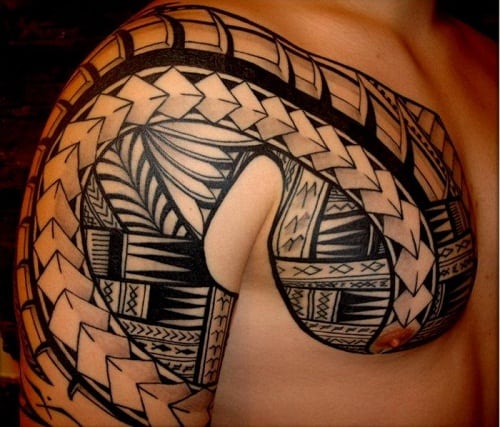
The tradition of tattooing among the Maori is particularly well developed, with extremely specific meanings assigned to patterns and placements.
In fact, this is an integral part of the Maori culture – certain Maori tribal tattoos are reserved only for Maori people, and it is considered borderline offensive for non-Maori individuals to wear them.
The traditional Maori tribal tattoos are usually done on the face and head, with lines and patterns telling the individual’s entire life story – including their rank and status, achievements, maternal and paternal lineage, and sometimes even their signature.
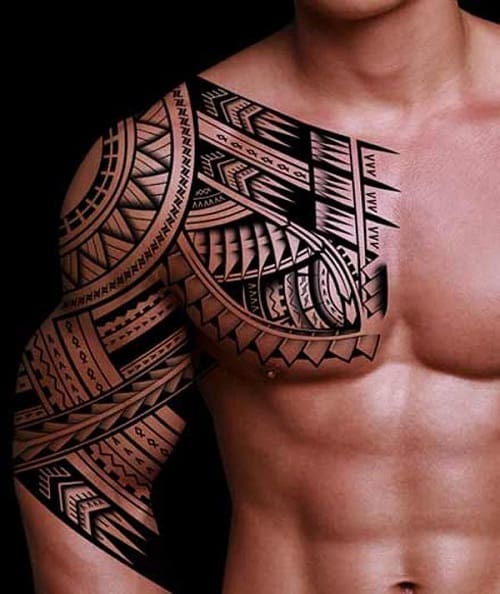
The tattoos are composed mostly of lines, the placement of which defines meaning. Originally, Maori tribal tattoos were done using a tool similar to a chisel, leading to visible grooves in the skin even after healing.
Nowadays, tribal tattoos inspired by Maori art are best done on the arms, legs, or chest, and make use of symbols and infill patterns to express specific meanings.
To find out more about these and see some awesome designs, have a look through our dedicated article on Maori tattoos.
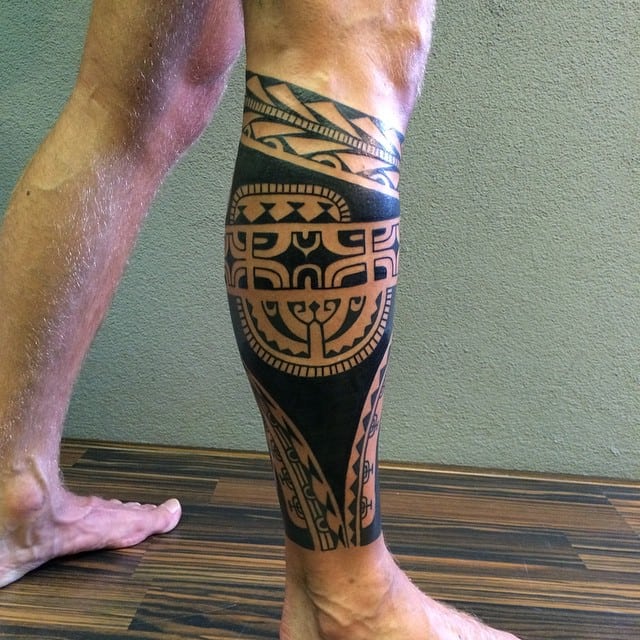
Aztec tribal tattoos
The Aztecs were a nomadic tribe from northern Mexico who settled in Mesoamerica at the beginning of the 13th century and quickly expanded their influence over all of central Mexico. The Aztec Empire fell in the 16th century after the arrival of Europeans.
Known for their extremely bloody human and animal sacrifices to cruel deities, the Aztecs were also fond of art and architecture – and it’s the latter than inspires most of today’s Aztec-themed tribal tattoo designs.
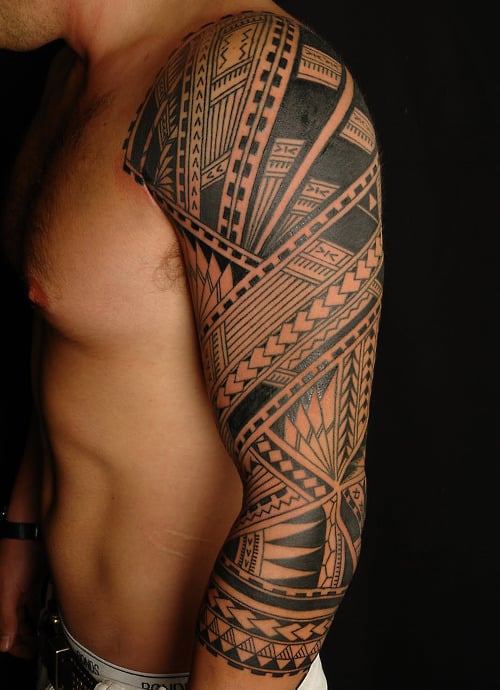
There is little agreement on the extent to which the Aztecs themselves partook in tattooing, but it’s generally agreed they probably had a tribal tattoo tradition, just like all surrounding tribes.
Common themes in Aztec tattoos include warriors, the sun, eagles, and abstract patterns.
Equally popular are designs involving the Aztec calendar – based on a calendar stone created by the Aztecs to tell the story of the creation of the universe.
If this piques your interest, check out this article and gallery we’ve put together on Aztec tattoos.
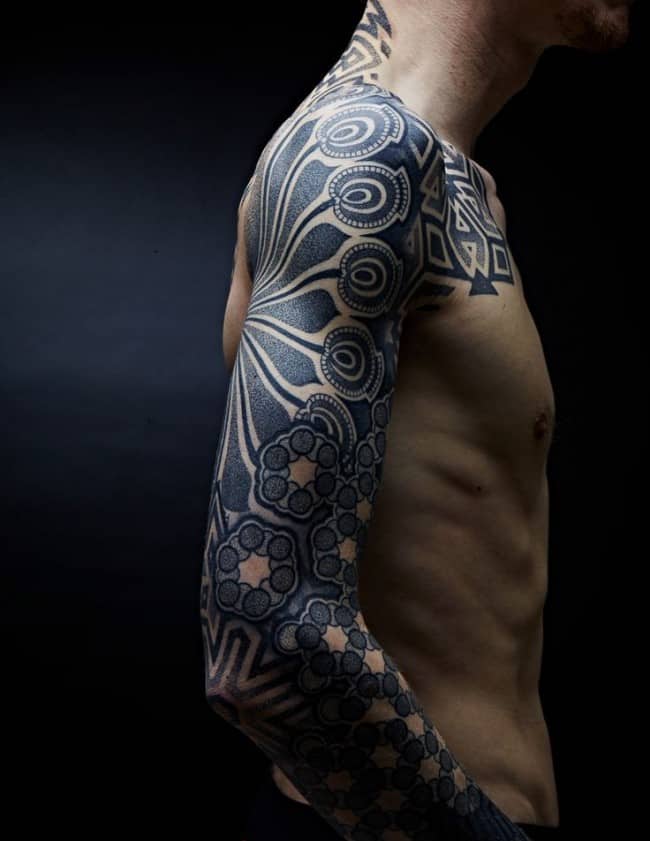
Mayan tribal tattoos
The Mayans were another ancient American civilization existing at the same time as the Aztec Empire. The main difference between the two is that while the Aztecs were focused on conquest and war and known for their violence, Mayans were more peaceful and concentrated most of their efforts on cultural and scientific pursuits.
Mayan tribal tattoos were mostly religiously themed, and done as a way of honoring and pleasing the gods. It was one of the many forms of body modification that this civilization engaged in, alongside piercings.
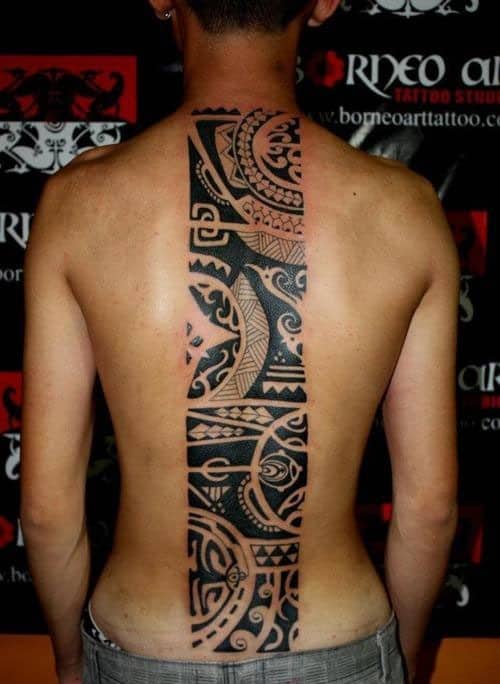
Tattoos were also a mark of courage and strength, given that the process was painful and the tattoos prone to infection and complications.
For the Mayans, tattoos served a further purpose – that of marking enemies and criminals. After defeating another tribe in battle, they would mark the surviving warriors on the losing side.
They would also place tattoos on the foreheads of thieves and other criminals within their own communities, to permanently shame them for the dishonor of their crimes.
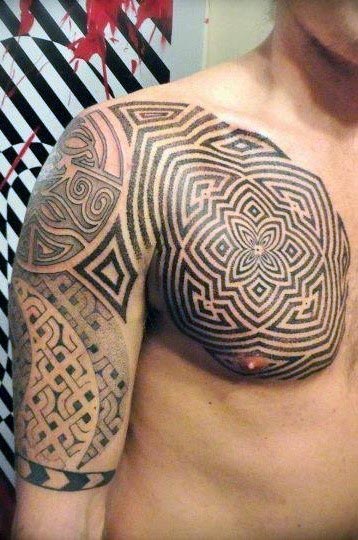
Modern-day Mayan tribal tattoo designs are largely derivative of Mayan sculpture and architecture. They depict Mayan deities and the symbols found in the carvings and other surviving Mayan art.
These designs tend to be large and complex, most often done in shades of black, and usually are purely decorative.
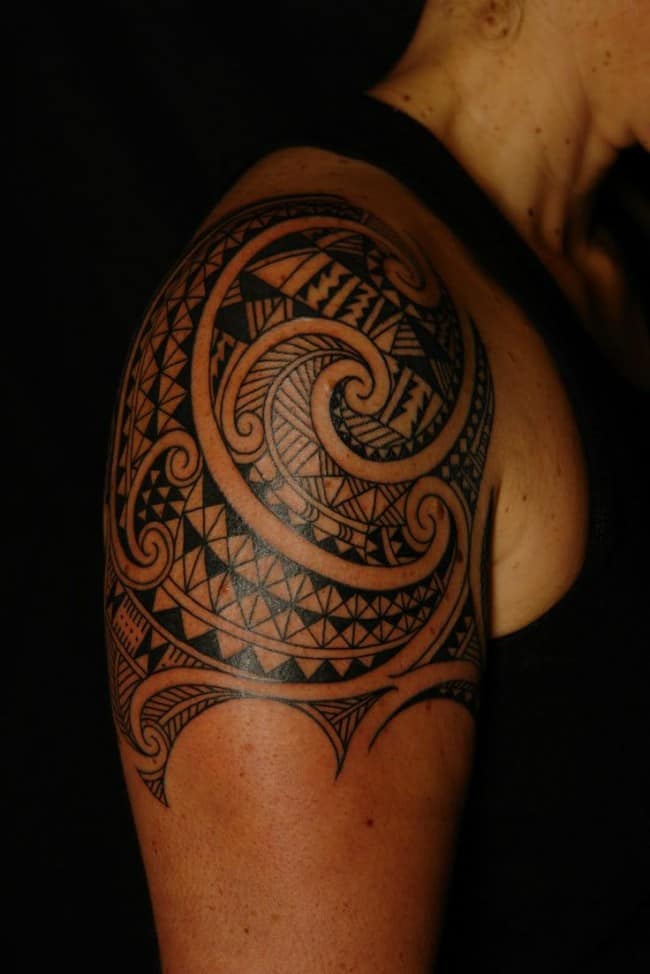
Native American tribal tattoos
Just about every tribal culture has engaged in tattooing, and Native Americans are no different – although their imagery and symbolism depart quite drastically from those described above.
Native American tribes used tattoos for ritualistic, aesthetic, and identification purposes, as well as considering some tattoos protective charms.
Warriors received tattoos to mark their victories in battle, members of specific tribes wore tattoos to identify themselves as part of the community, and some believed that tattoos would protect them from harm or give them supernatural powers through a connection with the spiritual world.
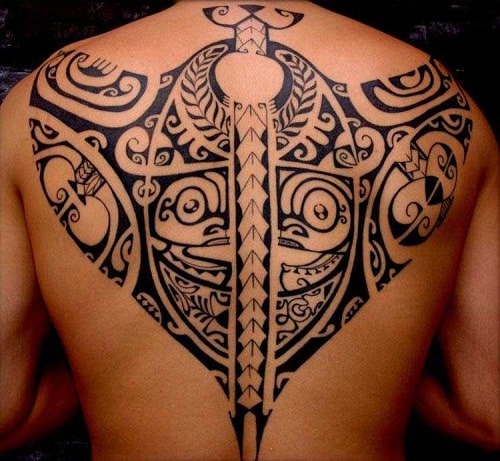
These tattoos were done using a sharpened bone or rock to pierce the skin and natural dyes to create a stain.
Nowadays, Native American tribal tattoo designs usually involve imagery that refers to the culture in general, rather than drawing on the meaning that specific tattoos had to the tribes themselves in the past.
Modern Native American tattoos often include:
- Dreamcatchers – these were talismans handmade by Native Americans to protect a person from nightmares. They take the form of one or more hoops with a woven pattern inside, decorated with feathers and beads. This is a highly popular choice of tattoo nowadays, tribal or otherwise, and there are hundreds of examples of creative takes on this design.
- Feathers – representing the spirit of birds, feathers played an important part in Native American tribal culture. Tribal tattoos with feathers of different birds can have different meanings – for example, eagle feathers stand for bravery.
- Arrows – arrow tattoos can have plenty of different meanings, though most often these are related to protection, direction, and perseverance.
- Animals – animals and the natural world were of particular significance in the Native American culture, and they made common subjects for Native American tribal tattoos. Individuals would sometimes receive a tattoo of an animal whose qualities and strengths they aimed to emulate.
- Tribal patterns – decorative patterns derived from Native American art and clothing adornments can work great as a standalone tattoo design or as a backdrop for any of the other elements of Native American-themed tattoos.
Check out this article on Native American tattoos for more ideas and detailed explanations of different tribal symbols.
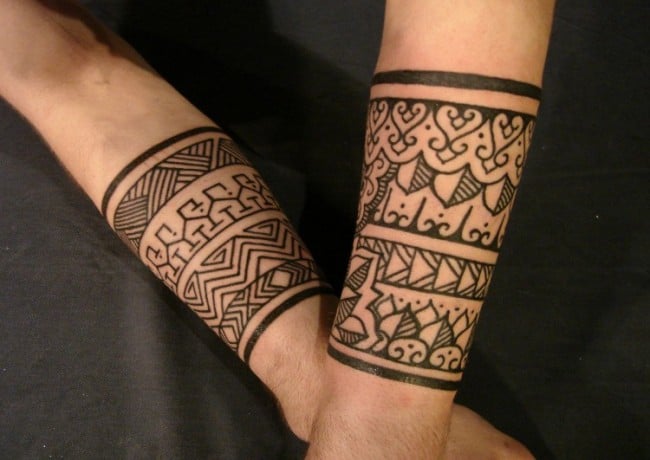
Chinese tribal tattoos
Although the history of tattooing in China goes back thousands of years, tattooing has never really been a common practice in China. For the most part, it’s been viewed as a defamation of the body and therefore frowned upon.
In fact, like in Mayan and Japanese cultures, tattoos were a form of punishment in China for a time – marking criminals to ensure they would never be fully accepted in Chinese communities.
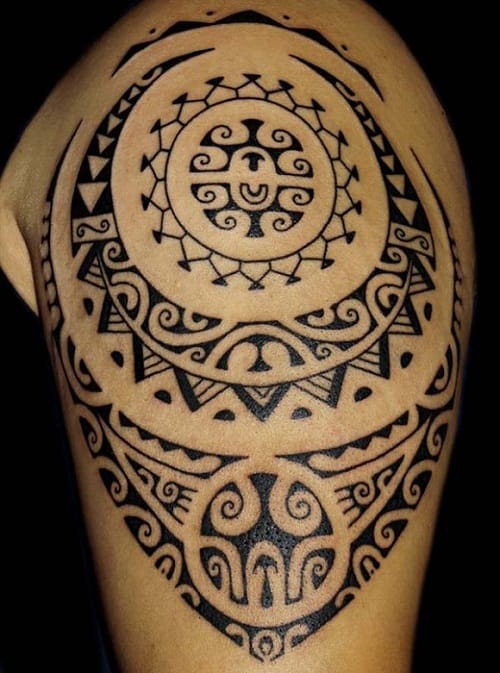
Most Chinese tribal tattoos of today are simply designs drawing on the traditional Chinese imagery, derived from Chinese fine art. Dragons, tigers, and abstract decorative patterns are among the most popular choices, as are phrases written in Chinese characters.
Since mainstream China has never really embraced tattoos as a cultural element, most people don’t realize that there are a number of Chinese minority groups with strong tattooing traditions.
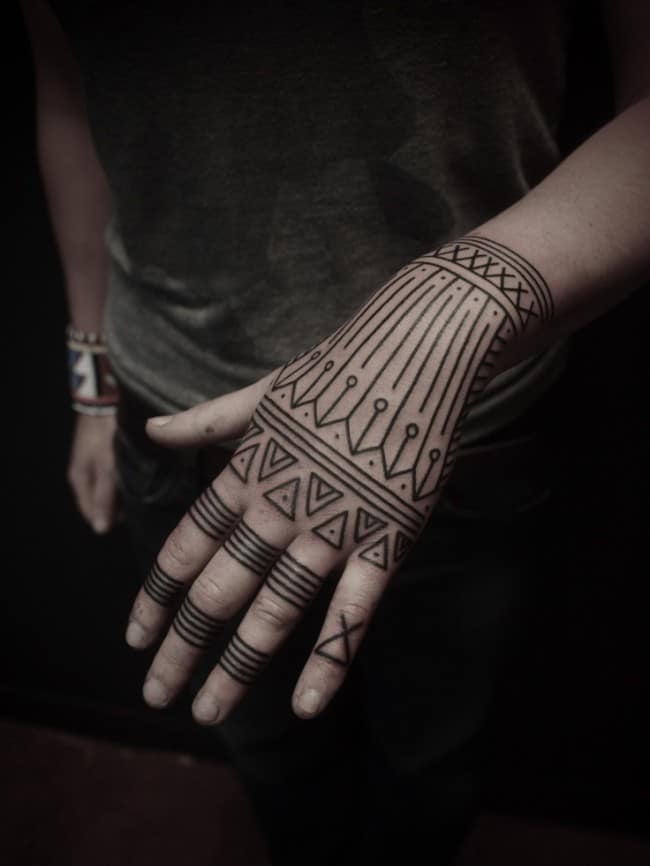
Dulong tribal tattoos
The Dulong people live along the Dulong River in southern China. Among this group, it’s common for women to get facial tattoos.
The history behind this custom dates back to the Ming Dynasty (around 350 years ago) and is rather dark.
The tribe would often find itself under attack from its neighbors, and after each raid the Dulong women would be taken as slaves.
They began to tattoo their faces in an attempt to make themselves appear less attractive to the invading men.
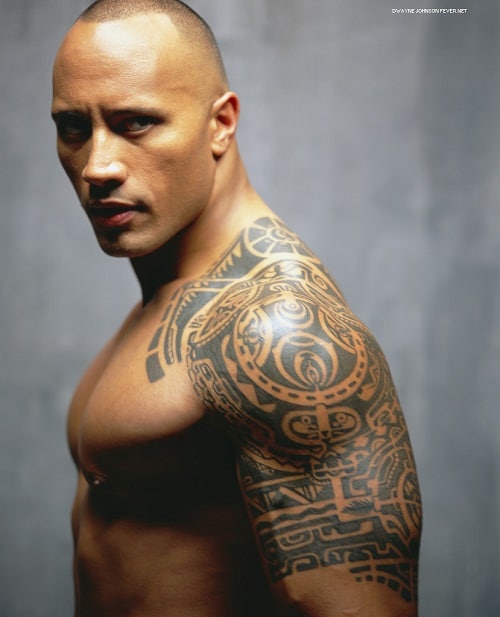
Although the Dulong, luckily, have nothing to fear in terms of enemy raids nowadays, the tattooing has been embraced as part of the tribe’s tradition and is now seen as a rite of passage into adulthood.
At the age of 12 or 13, all Dulong women get facial tattoos as marks of maturity.
Dai tribal tattoos
The Chinese Dai group is another example of tribal tattooing in China. Among the Dai, both men and women get tattoos at the age of 14 or 15, again as a rite of passage into adulthood.
Dai women usually have tattoos on their arms and hands, while the men get them anywhere on the body, typically in a way that aims to accentuate the contours of their muscles and draw attention to their strength.
Typical designs for Dai tribal tattoos involve dragons and tigers.
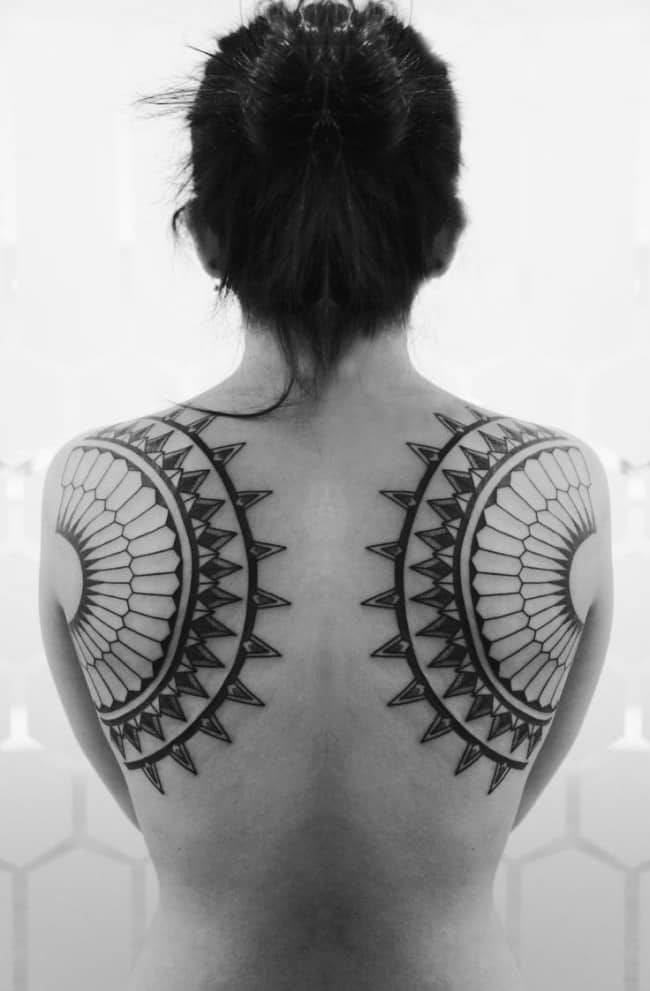
Li tribal tattoos
The Li people inhabit Hainan island off the southern coast of China – and like most island-based cultures, their customs differ from the nearby mainland. Interestingly, in this culture the women wear the majority of the tattoos.
At 13 or 14, Li girls would traditionally receive a tattoo on the neck and face area, over a period of four to five days. The next three days would involve further tattoos – on the arms and legs. This was a mark of reaching maturity. Married women would extend their arm tattoos to cover their hands as well.
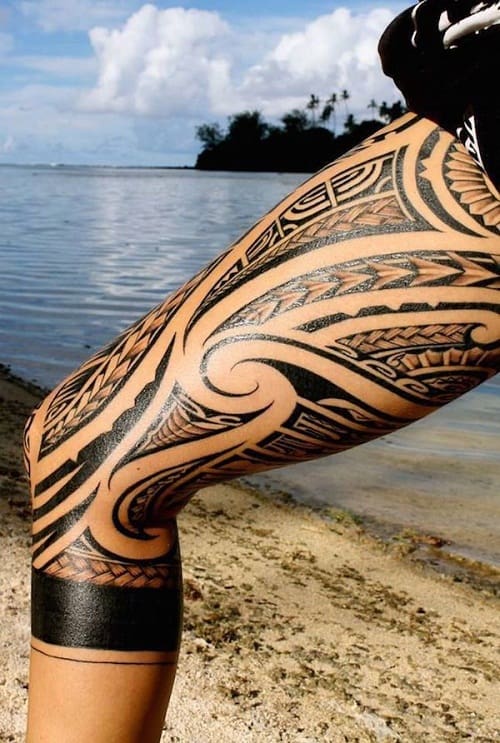
The Li are not a single tribe, but a collection of tribes. Each tribe would have different markings so that a woman’s tattoos also signified her belonging to a particular community.
Men, meanwhile, received no corresponding tattoos. Some have been known to have three blue dots tattooed on their wrists, although this was for medicinal purposes rather than aesthetic or ritual reasons.

Celtic tribal tattoos
The Celts were not a single community, but a collection of tribes. Originating from central Europe, their culture reaches back as far as 1200 BC. Britain, Ireland, and Scotland are nowadays most commonly considered as Celtic nations.
Celtic tribes had extensive tattooing traditions, primarily for battle purposes. Warriors would wear tattoos – sometimes even covering the entire body – as a way to intimidate their opponents in battle.
Wearing little armor, covered in tattoos, with spiked hair dyed bright colors, they’re bound to have had a striking appearance.
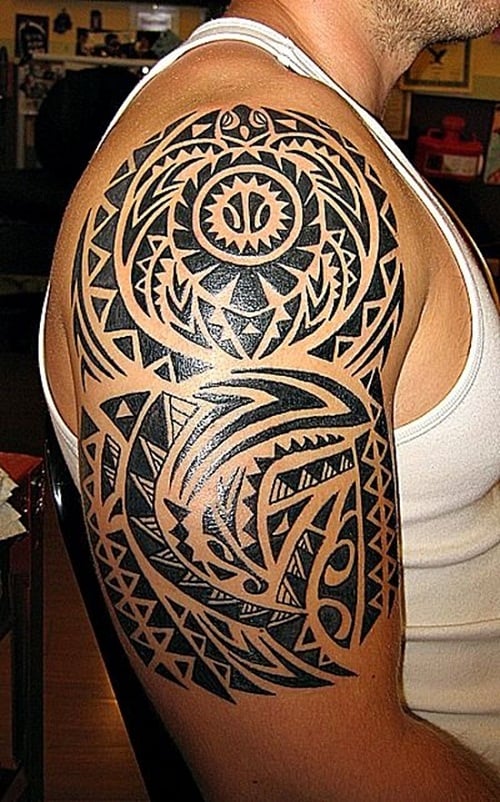
Interestingly, Celtic tattoos were mostly bright blue rather than black. The Celts used dye derived from the leaves of the Woad plant.
The majority of Celtic tribal tattoos nowadays depends heavily upon Celtic knotwork – perhaps the most distinctive and recognizable visual cues identified with this civilization.
The knots take the form of intertwining lines and shapes, usually meant to represent concepts of infinity and of balance.
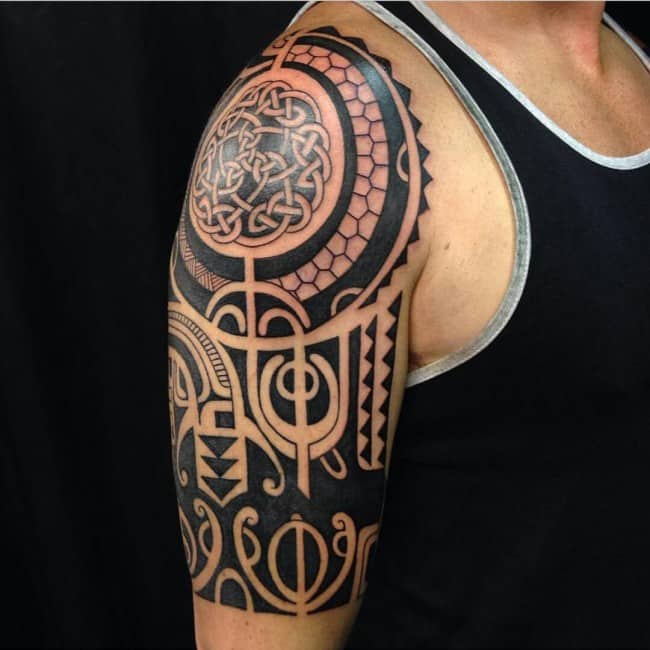
Final words
Whether you’re looking to get a tattoo that expresses meaning through the symbolism of a specific tribe or you’re after a tattoo that’s purely decorative, you can’t go wrong with tribal tattoos.
Highly versatile, great for sleeves, full back, and other large pieces that can be added to over time, they remain among the top choices for tattoo lovers the world over.
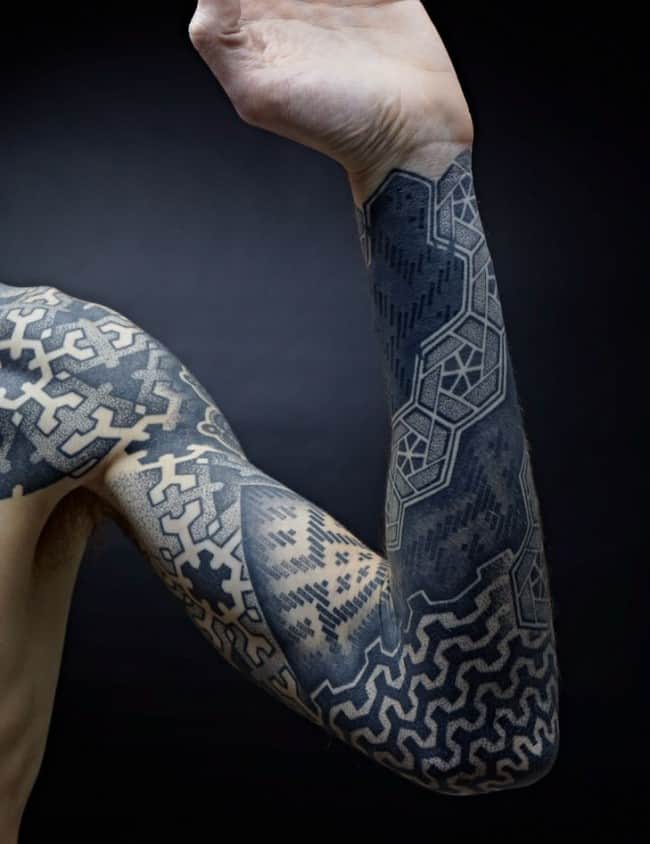
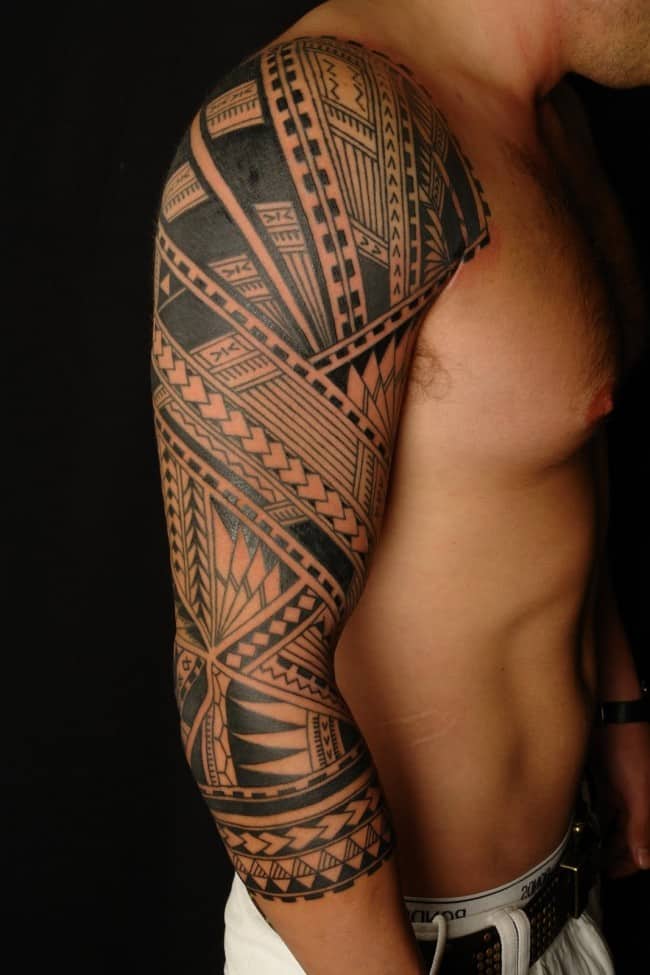
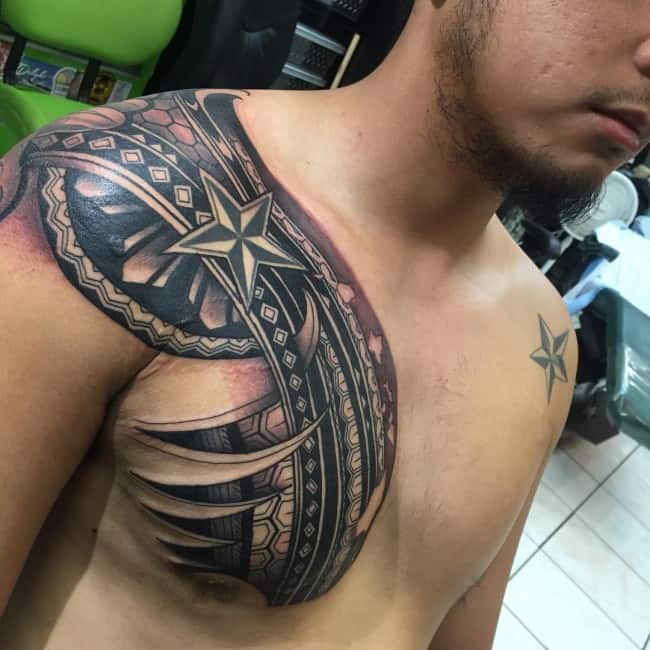
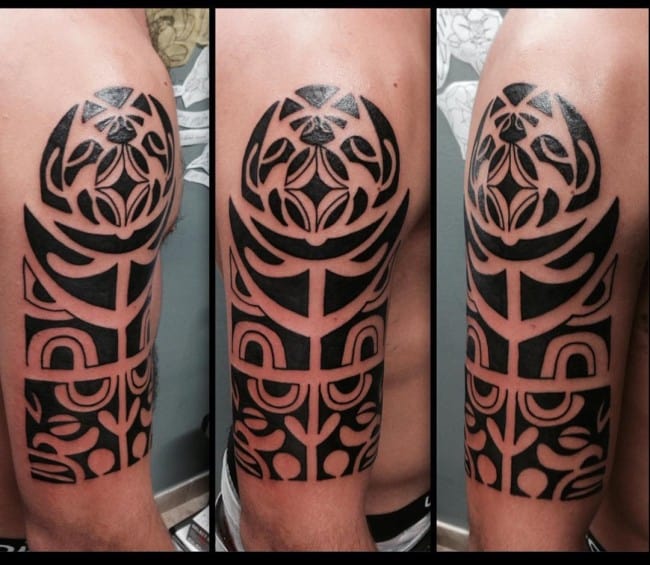
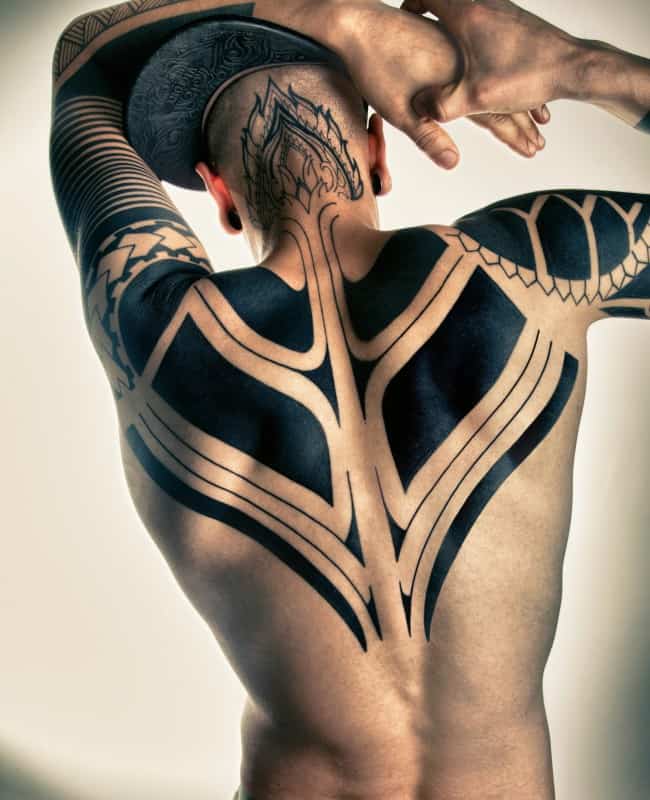
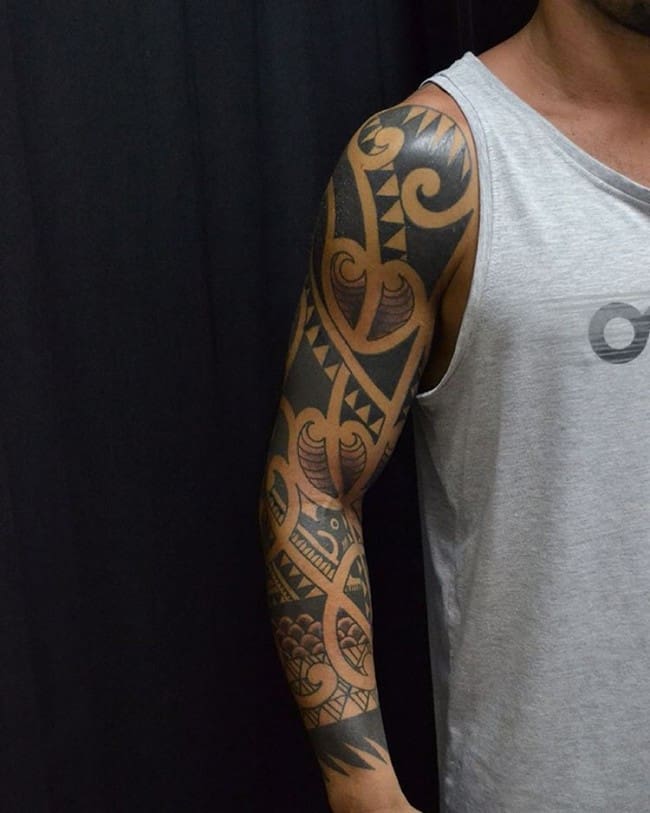
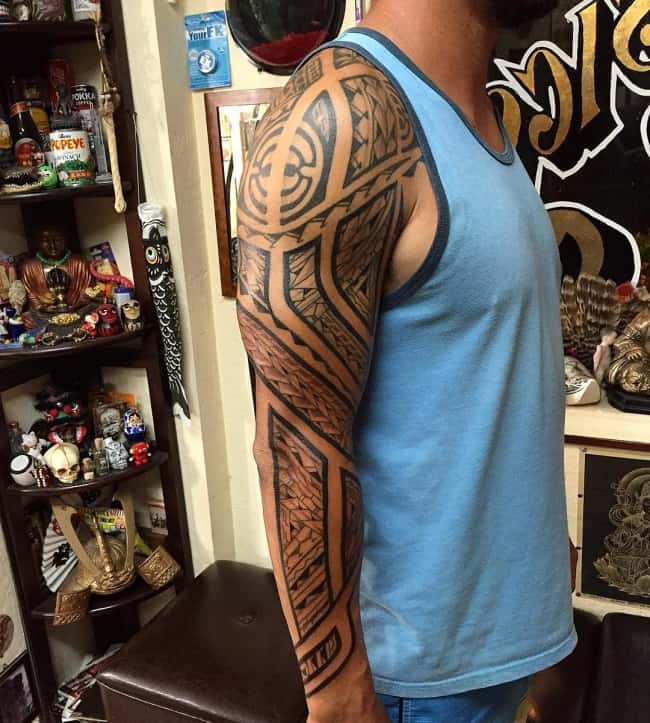
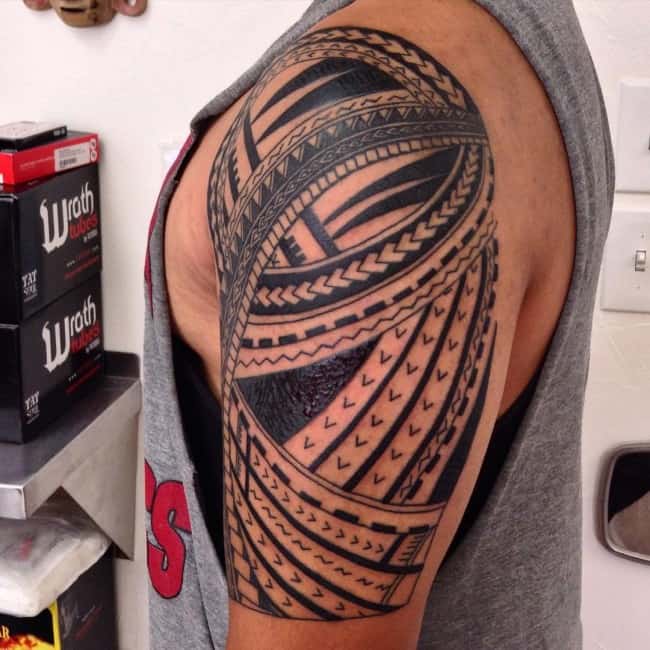
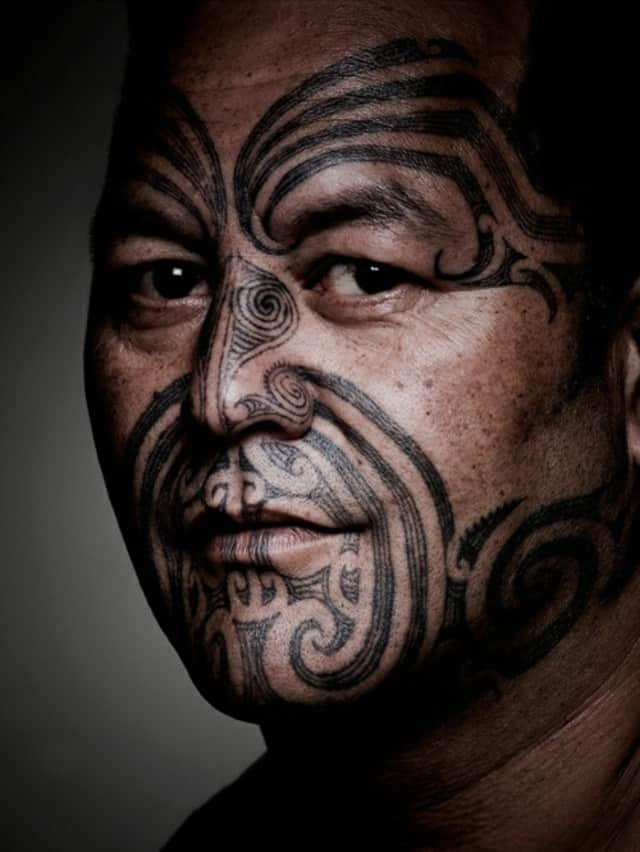
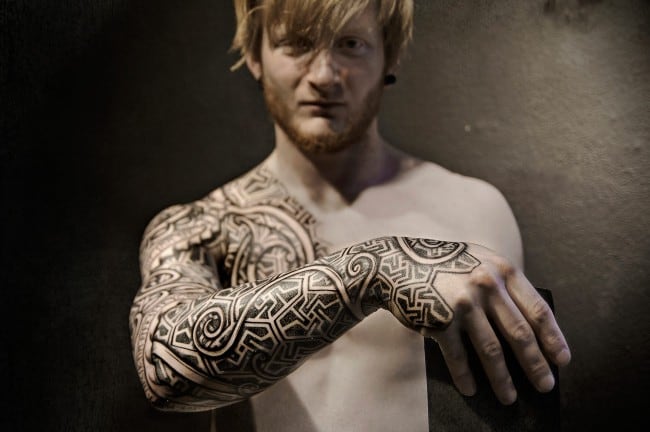
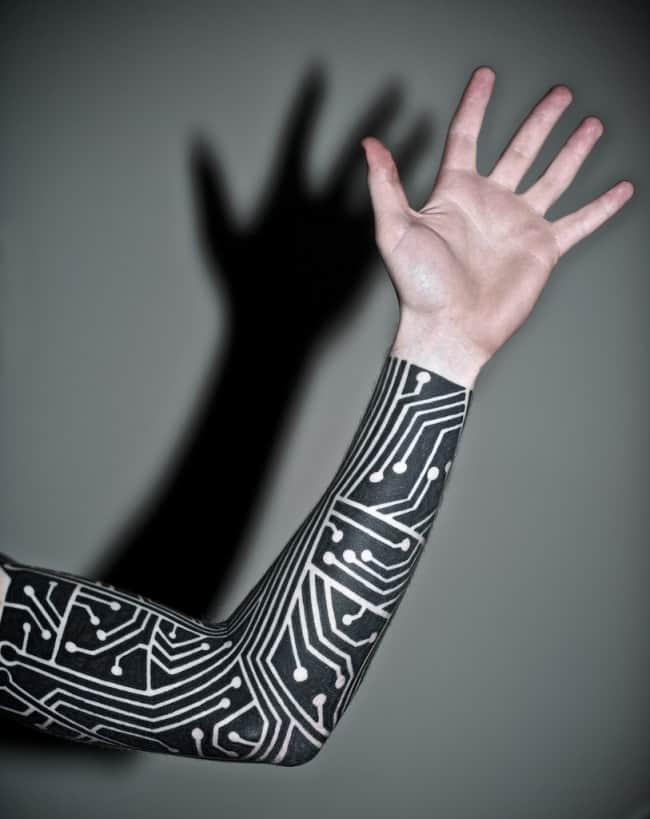
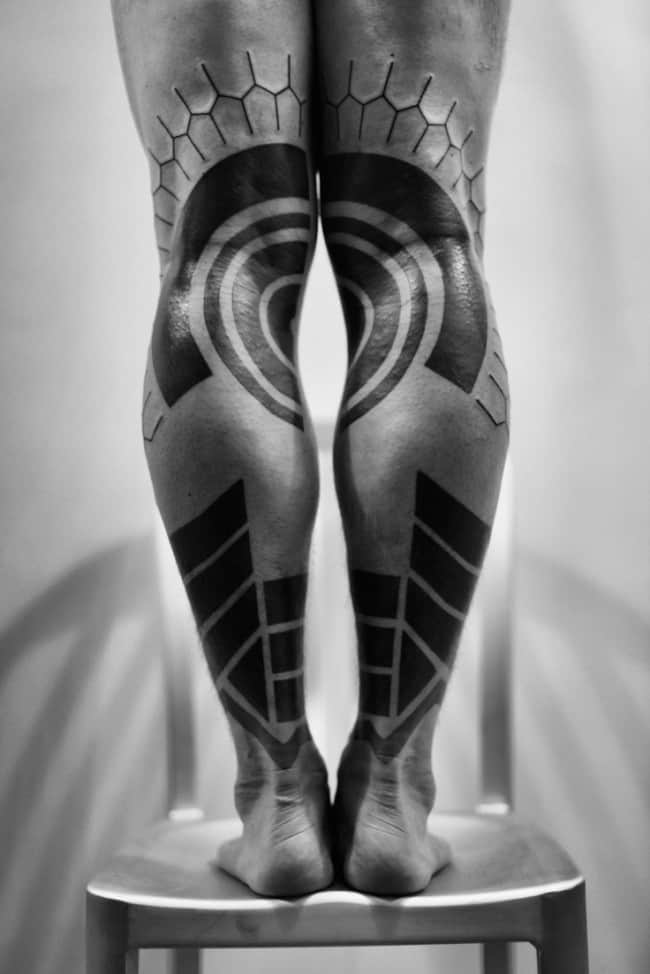
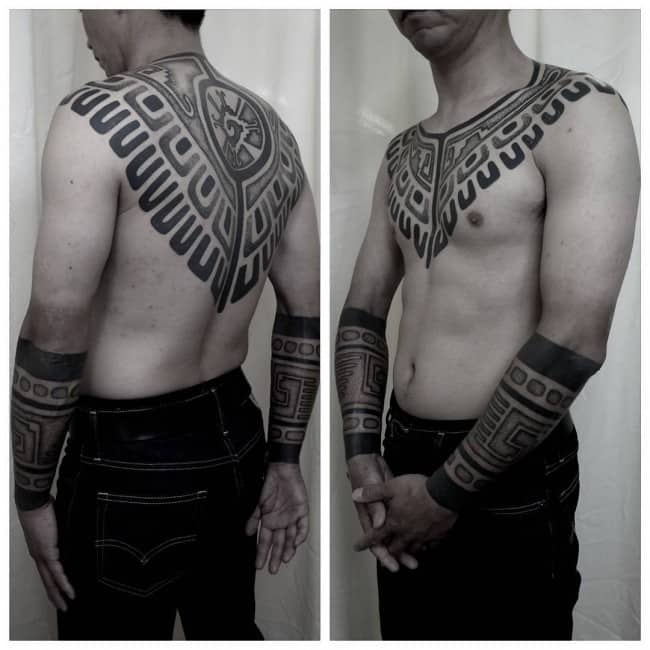
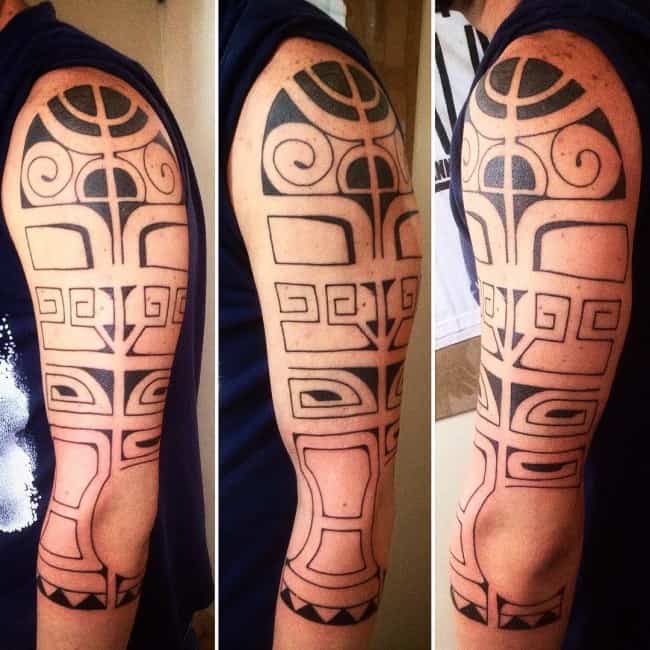
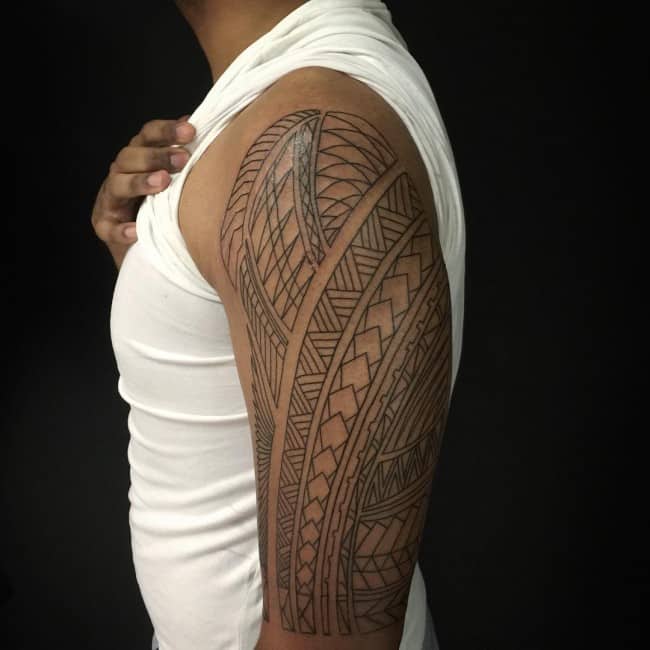
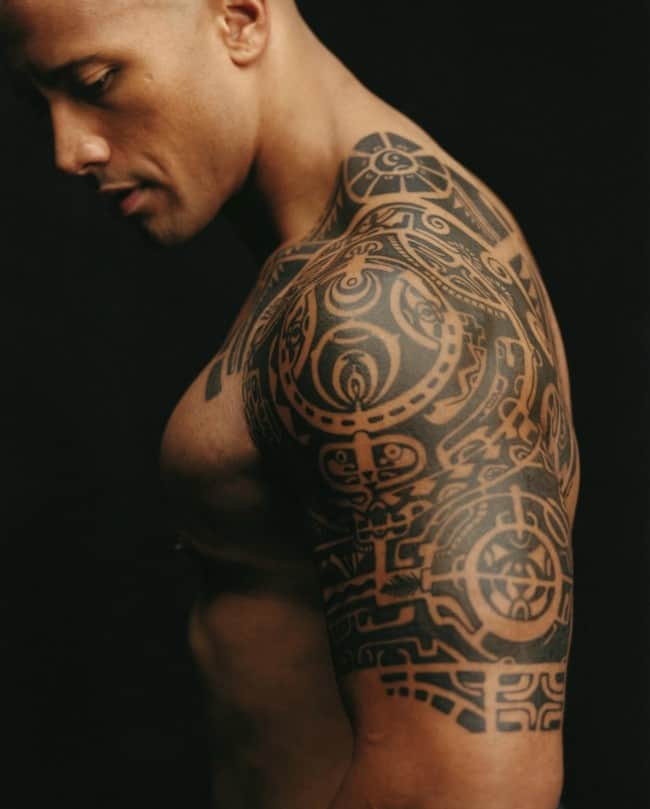
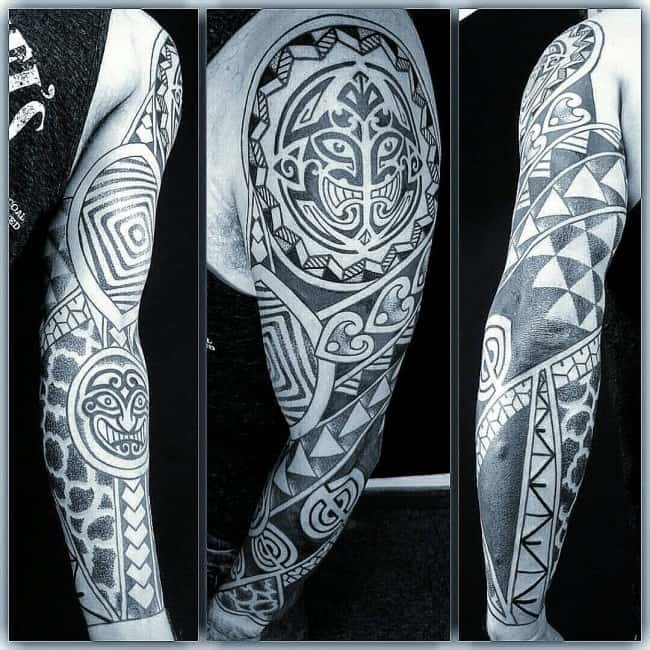
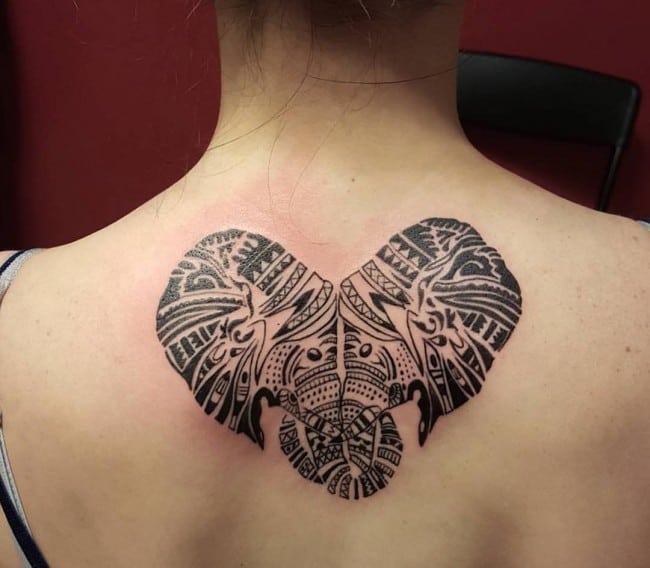
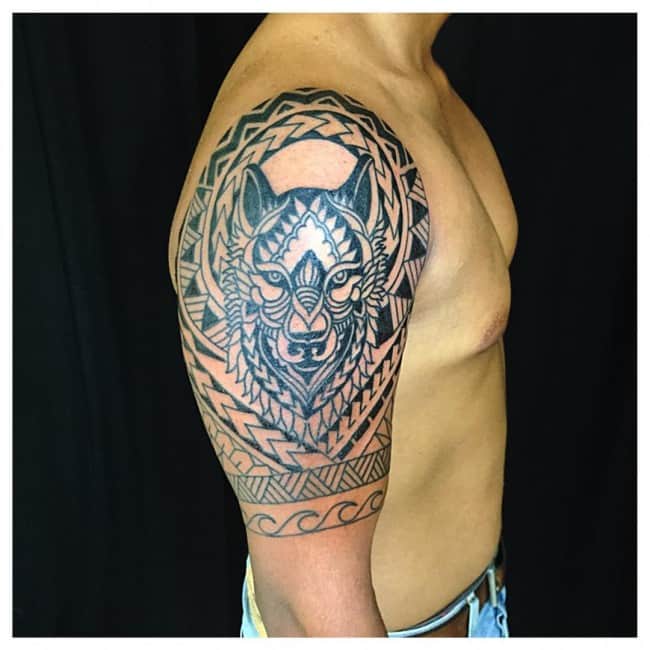
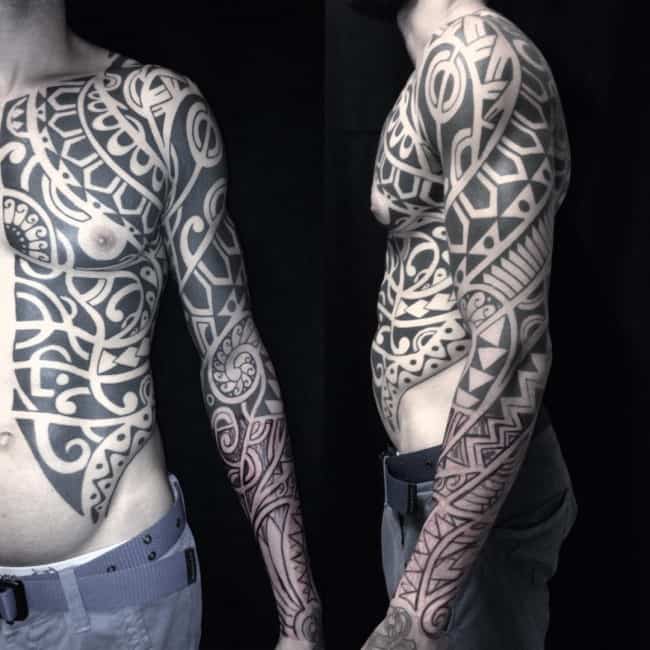
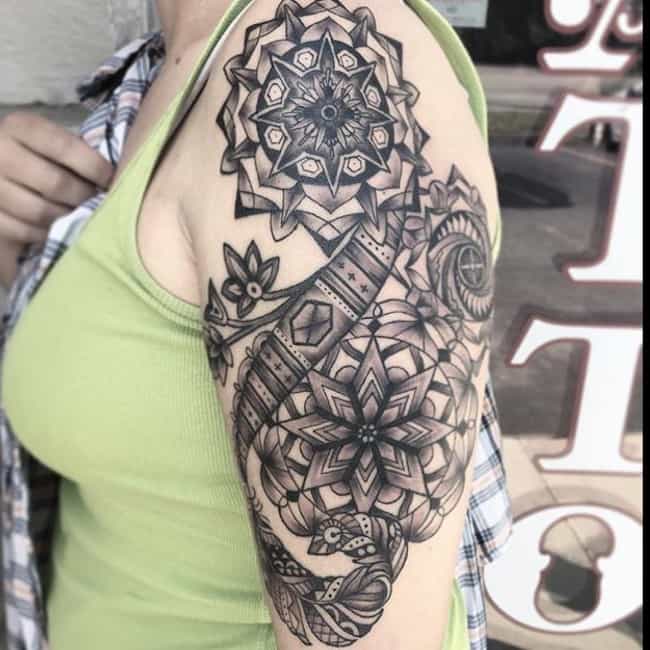
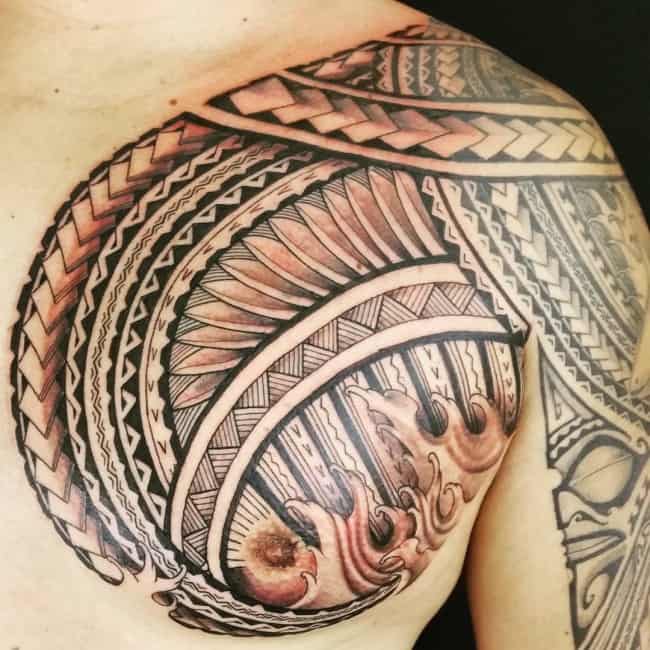
2. Diamond on Ankle
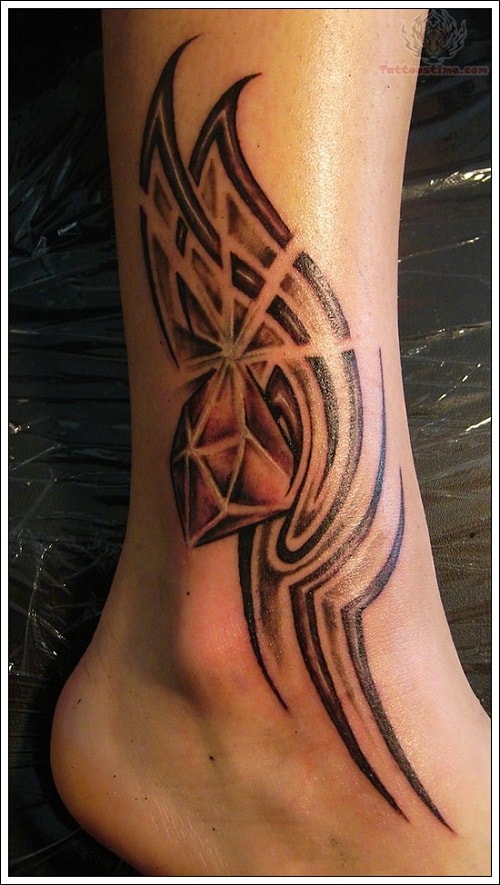
3. Back of Ear Tribal Art
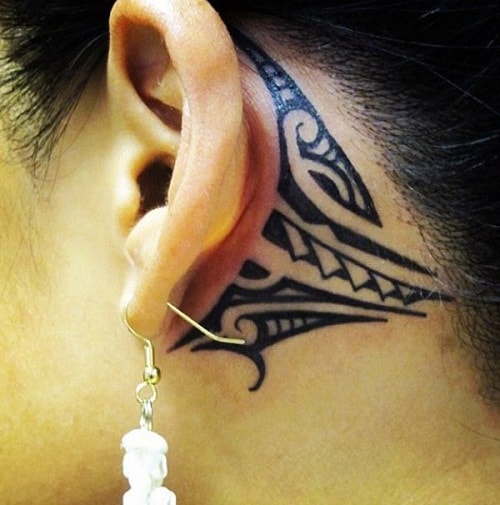
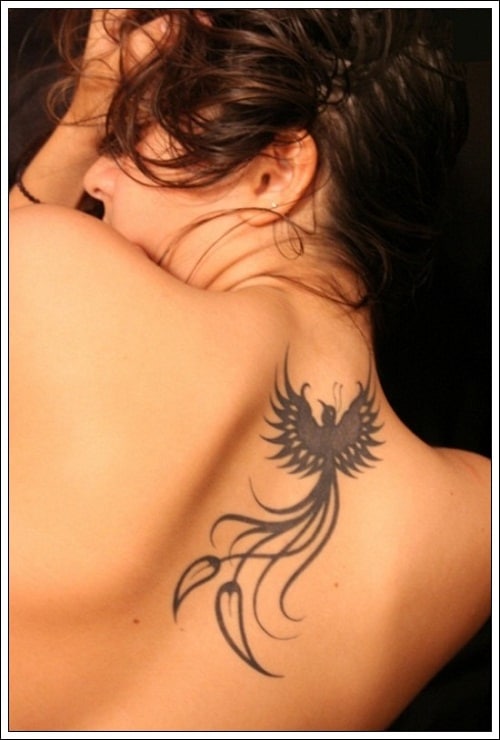
9. Bird with Red Heart
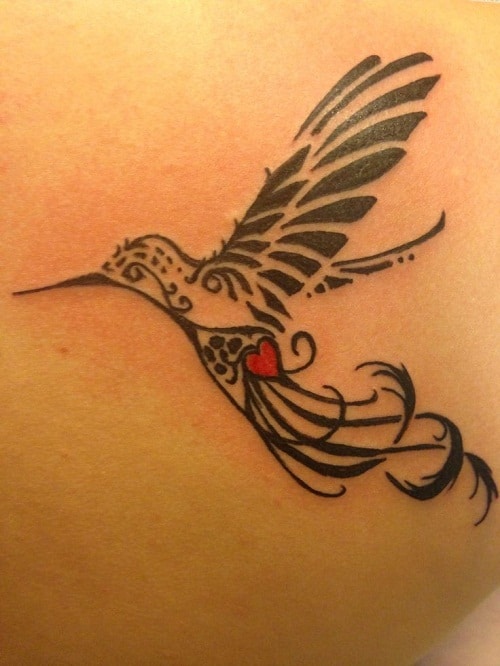
10. Breathtaking Tummy and Rib Tattoos
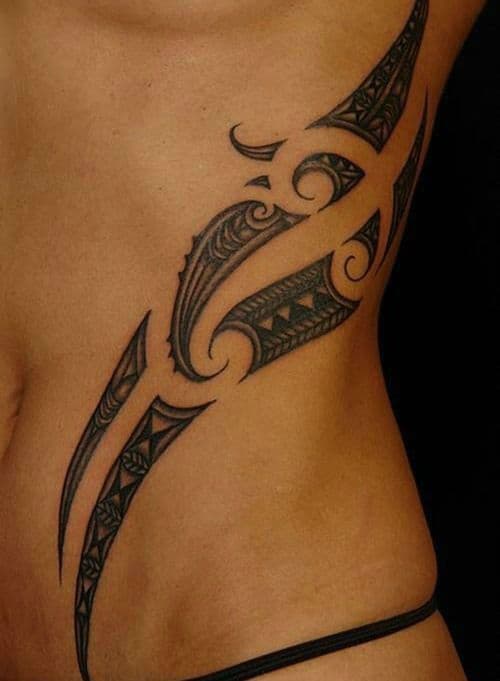
11. Butterfly Tribal Art
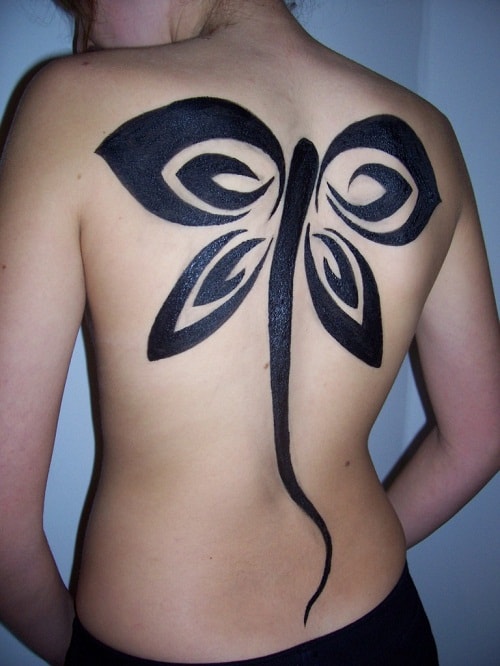
12. Butterfly Design
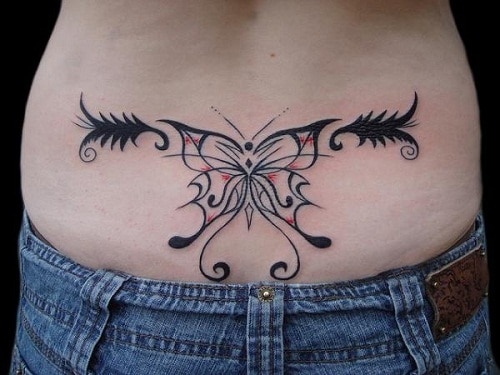
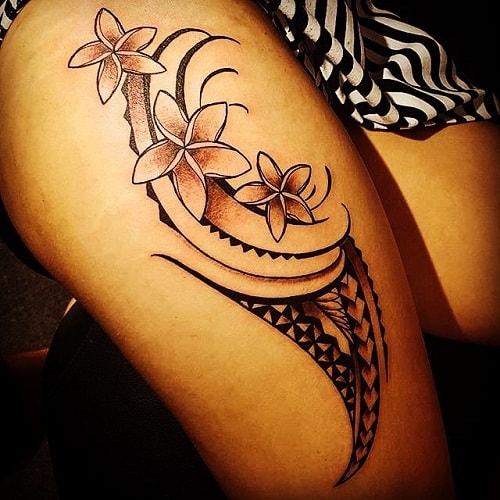
17. Flower on Foot
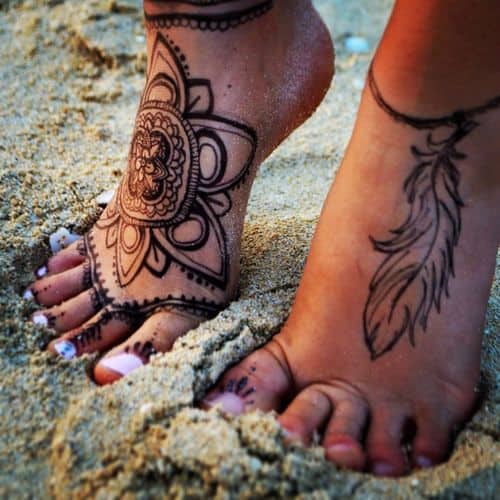
19. Foot Tattoo Inspiration
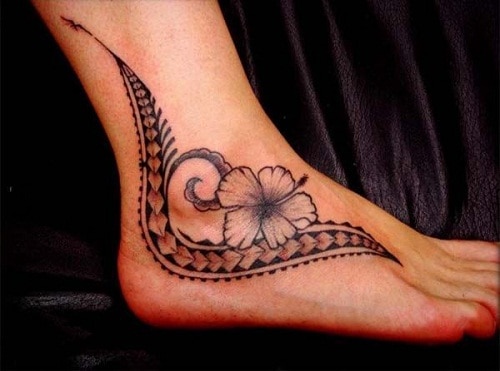
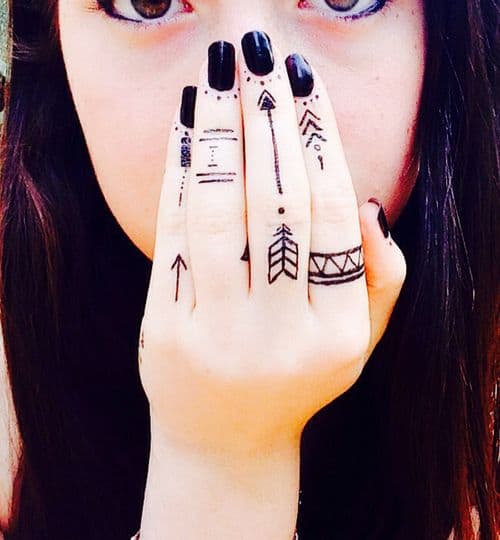
24. Indian Beauty
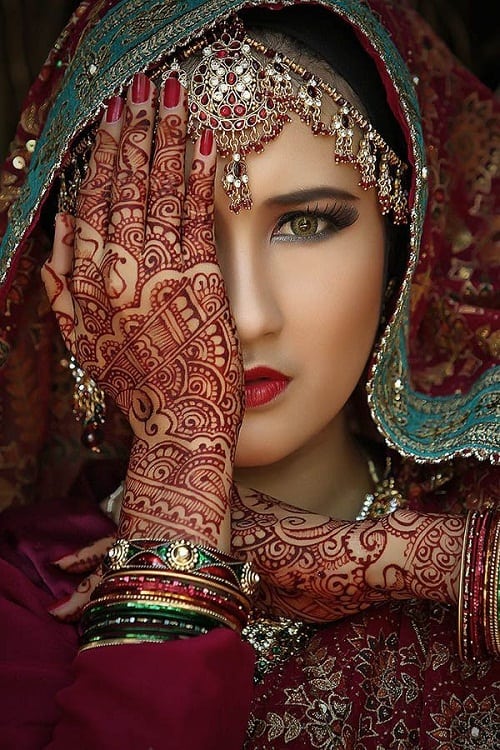
25. Lovely Flower
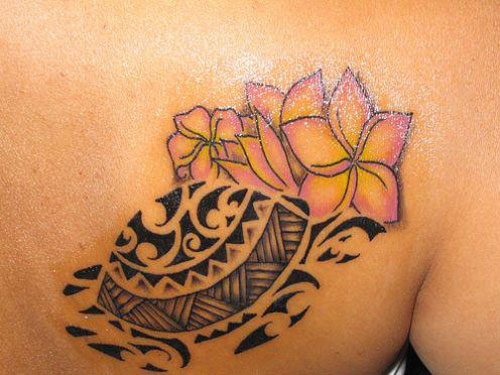
26. Maori Whole Body Tribal Art
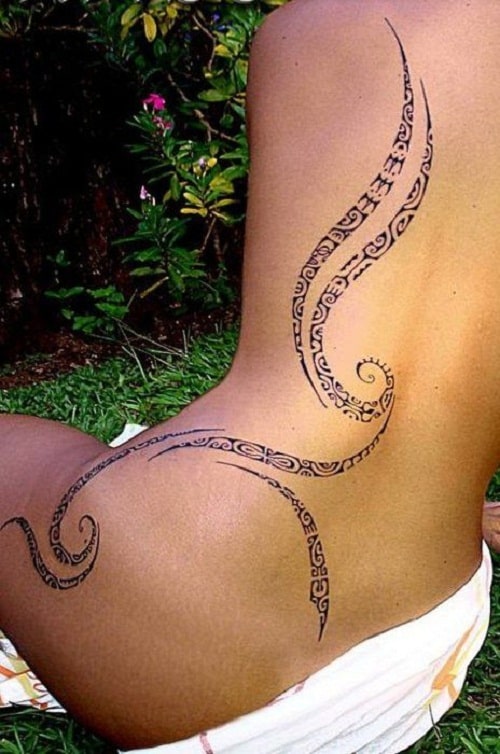
27. Moon and Sun
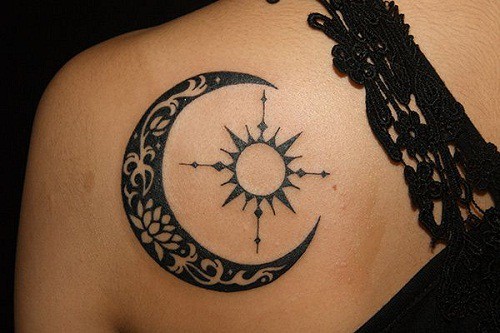
28. Neck to Back Design
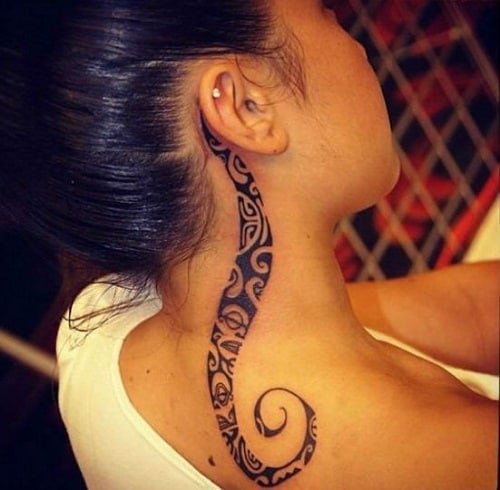
29. Back of Neck until Upper Spine
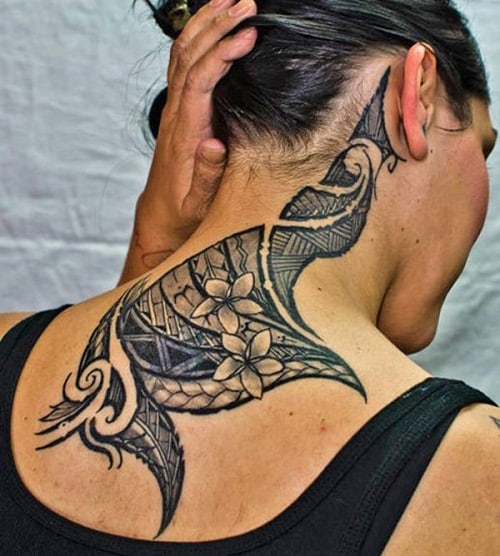
30. Neck Tattoo Inspiration for Women
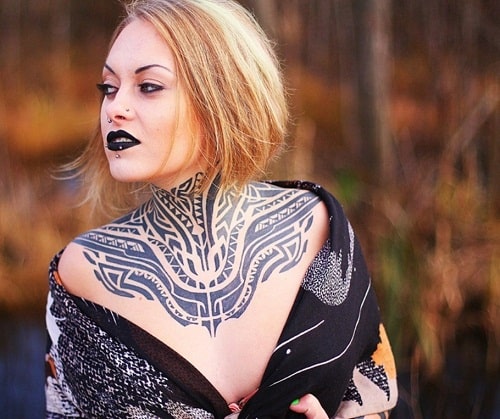
32. Pretty Flower
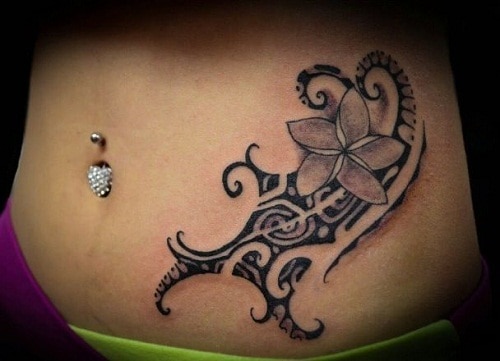
34. Red Butterfly
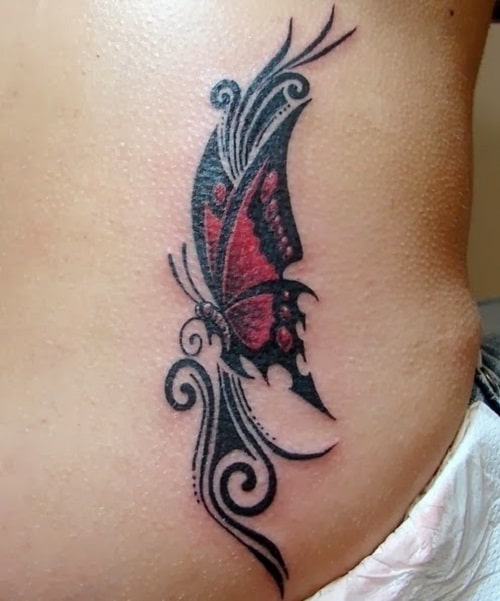
35. Red and Orange Flower
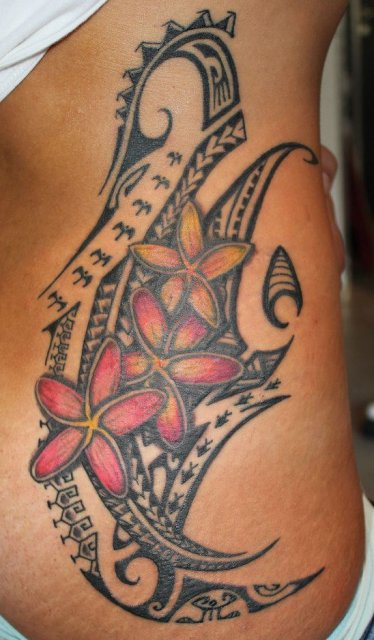
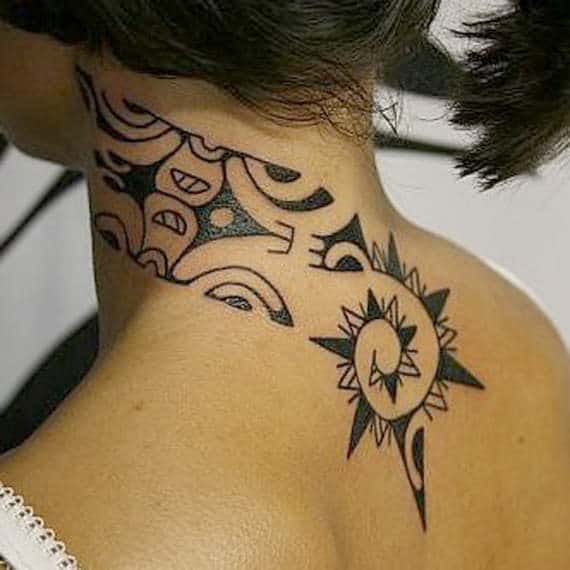
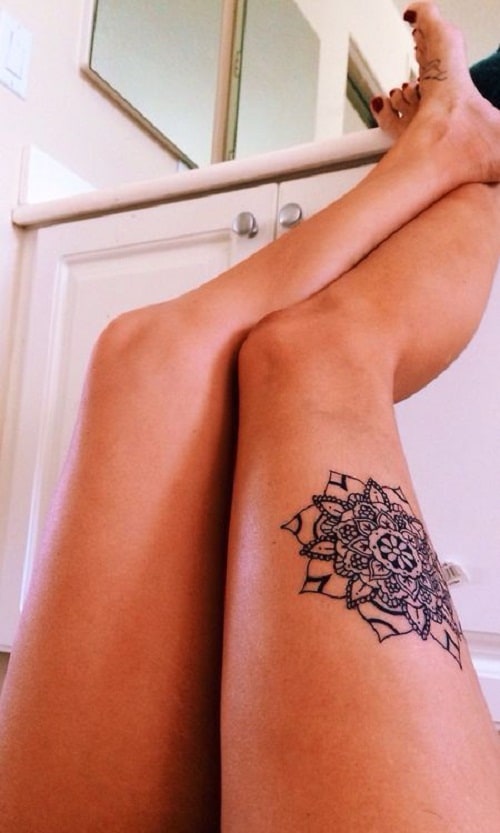
41.Hawaiian Tribal Art Design on Shoulder
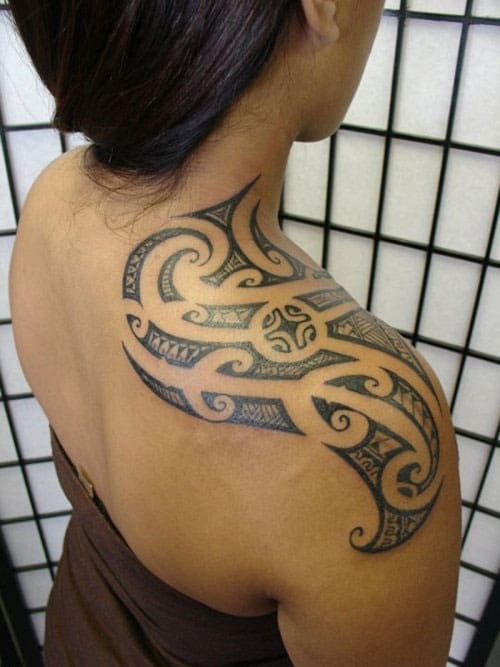
42. Shoulder to Face
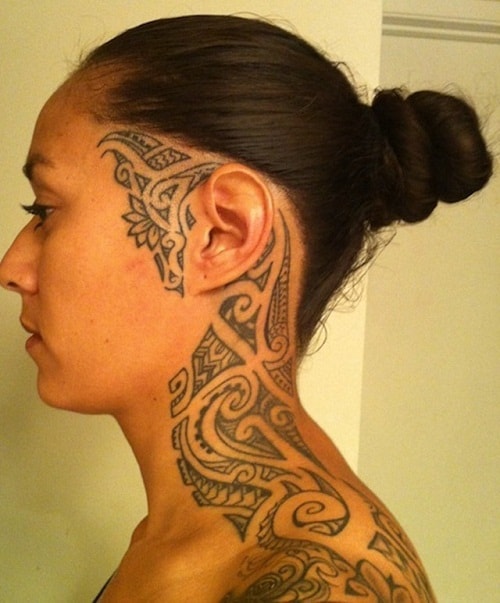
44. Small Moon
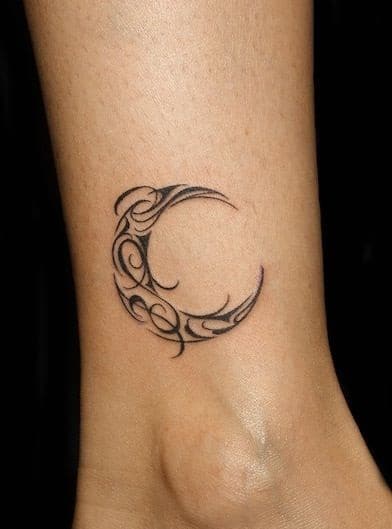
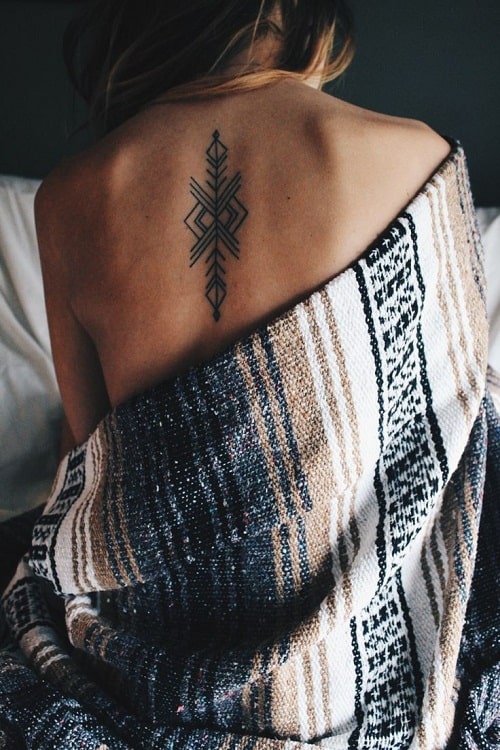
47. Stars
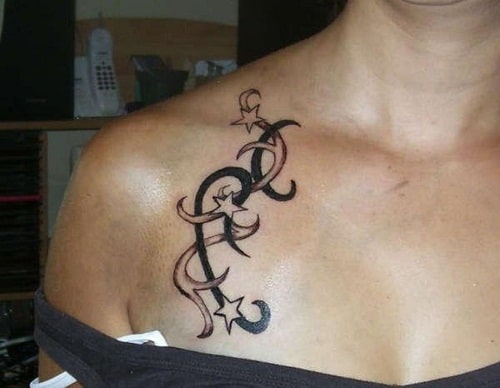
48. Sun on Upper Back
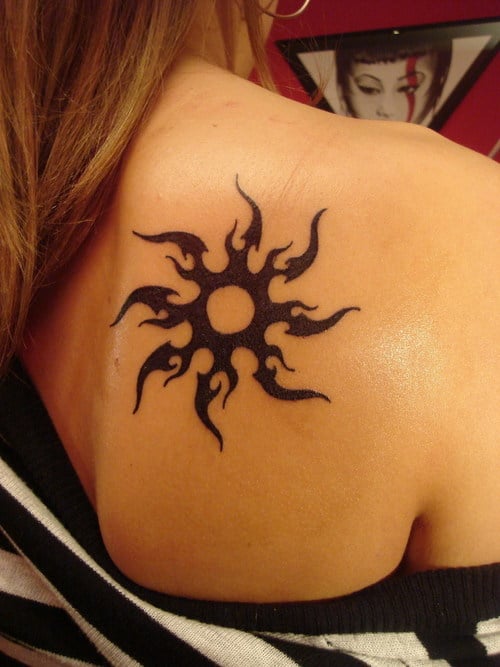
49. Symbolic
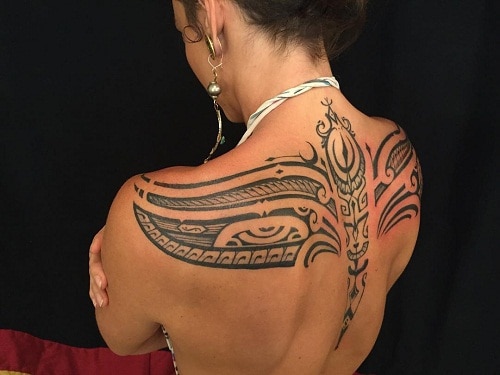
50. Thigh and Leg
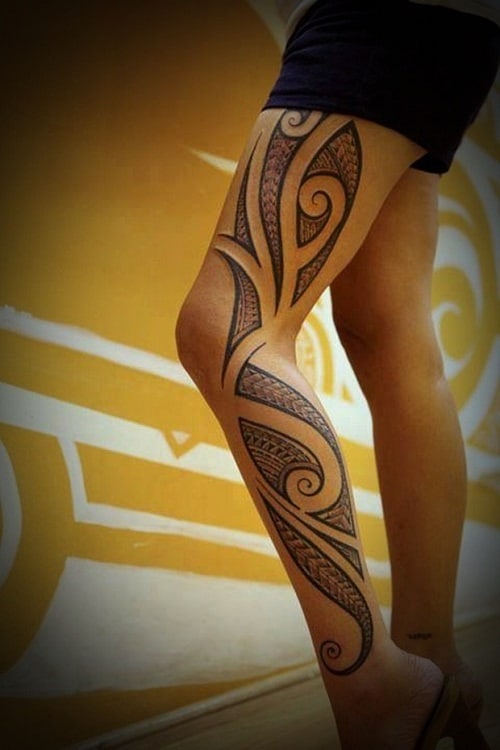
51. Cross on Side
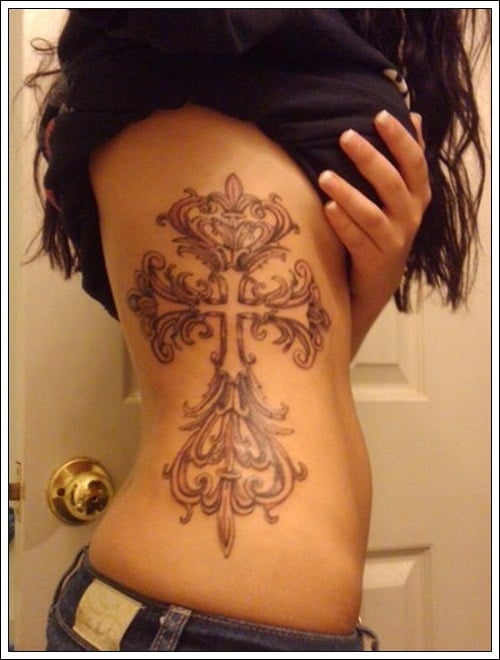
52. Tribal art for Women
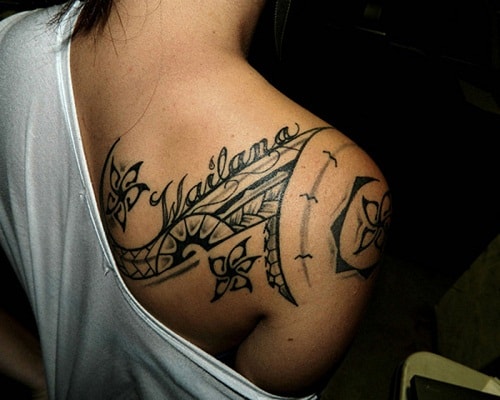
54. Unique Dragon
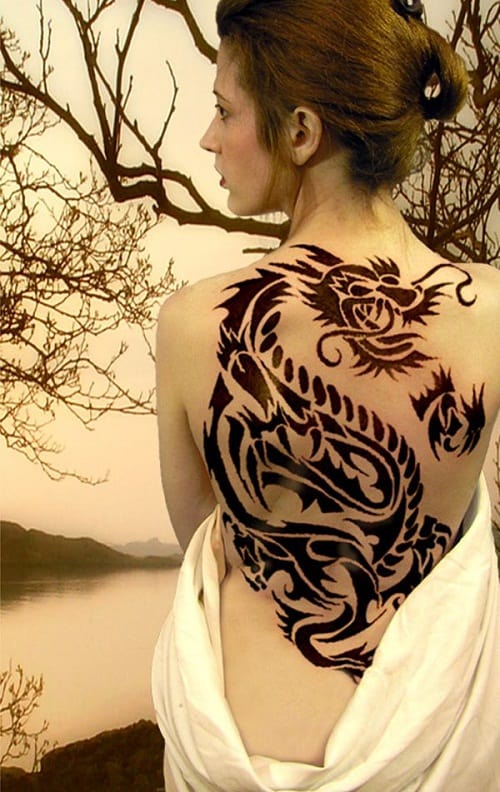
55. Best Woman Arms Tattoo Design
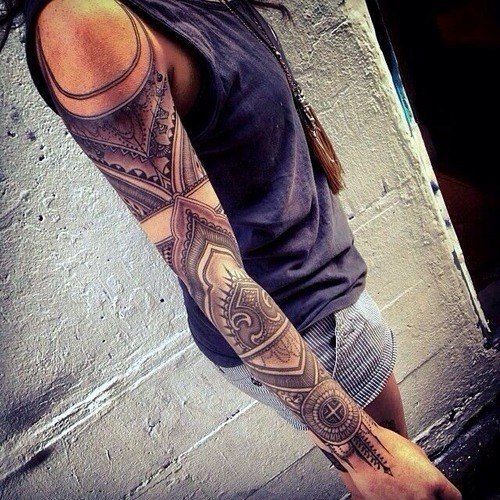
1. Whole Sleeve Half Chest
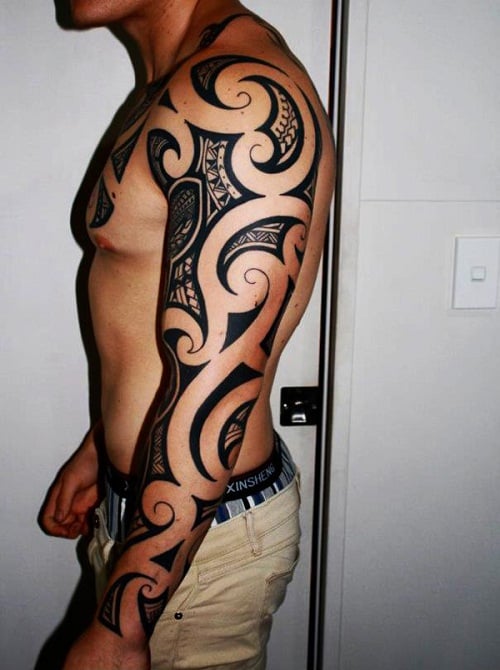
2. Turtle on Back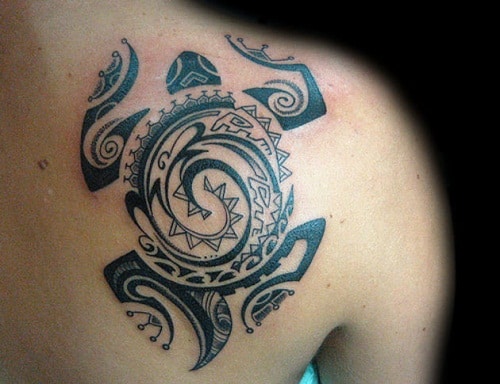
3. Cool Body Tattoos For Men
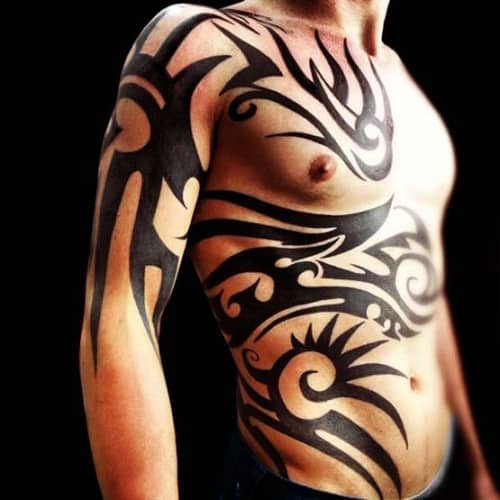
4. Best Tribal Maori Tattoos for Men
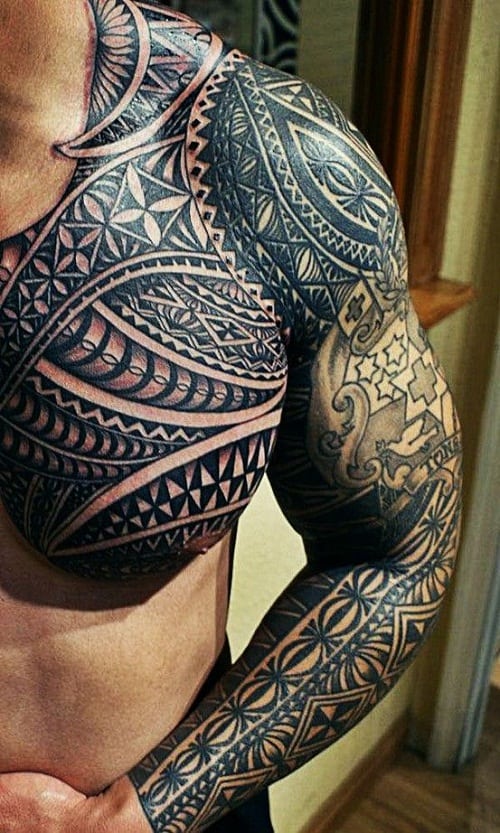
5. Ideal Tiger Design
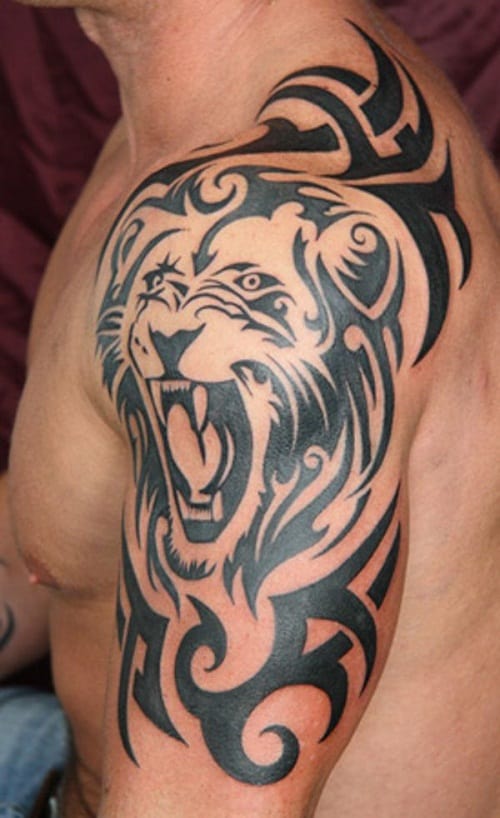
6. The Rock’s Arm

7. Solid Design on Leg

8. Solid Intricate Tattoos on Arm

9. Solid, Intricate Arm Tattoo Design
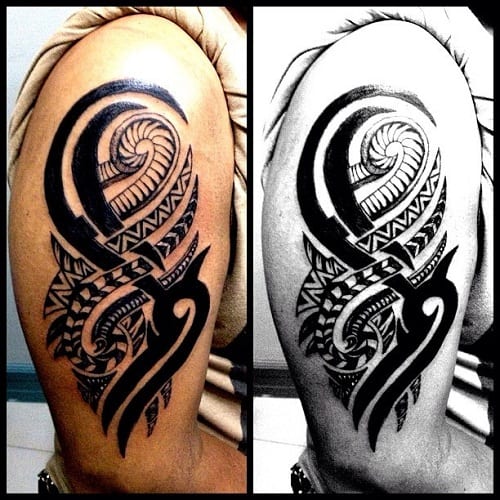
10. Skulls and Eye
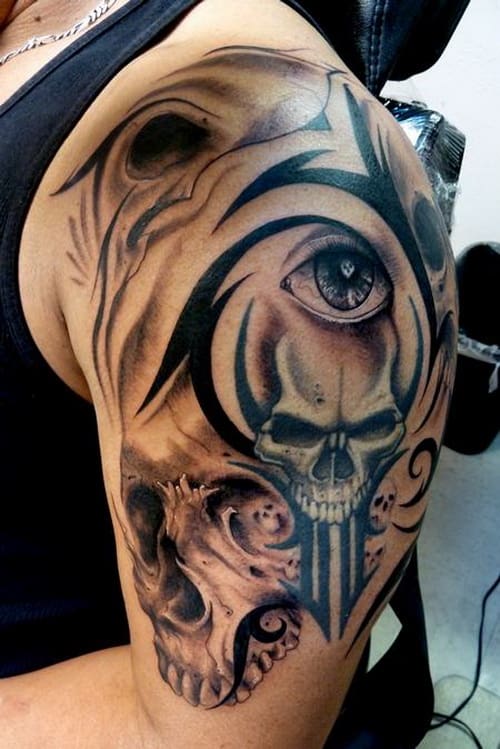
11. Simple Tattoo Design
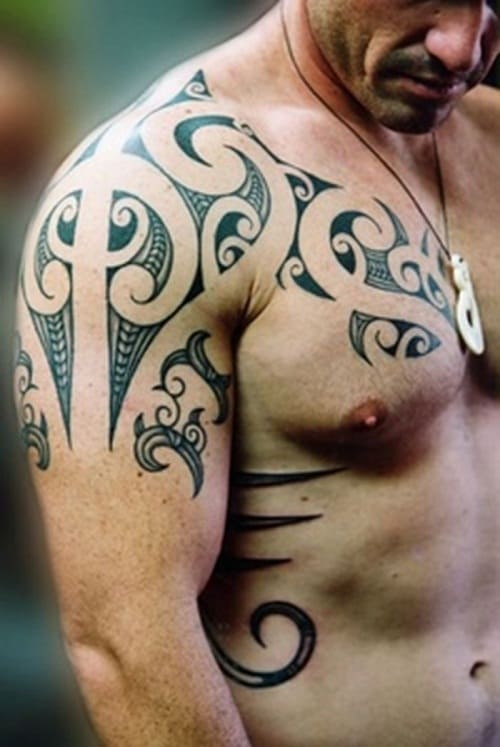
12. Awesome Half Body Tattoo Design
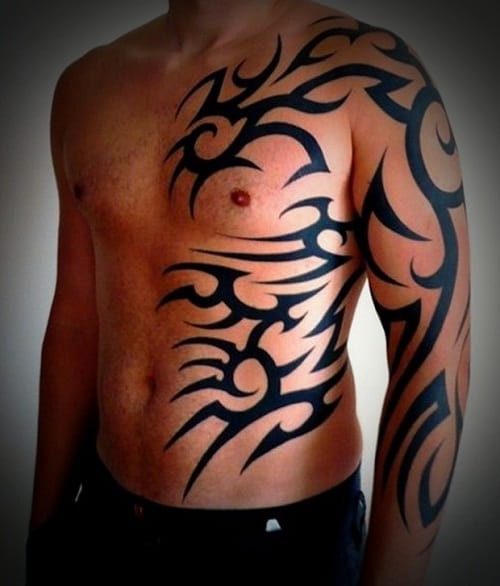
13. Awesome Chest, Shoulder and Arm Tattoos
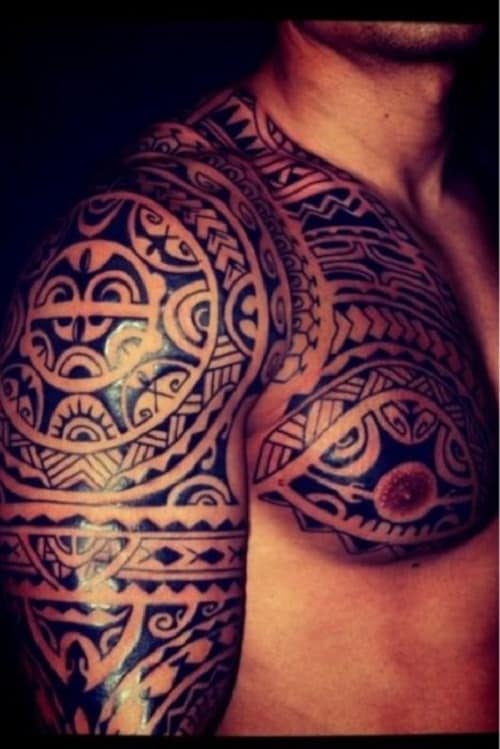
14. Simple Black Tattoo Design
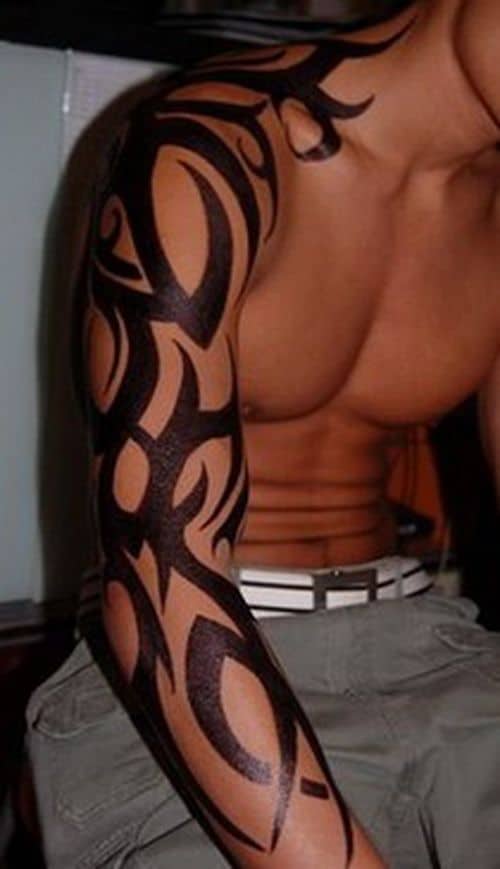
15. Shoulder and Arm Tattoo Inspiration
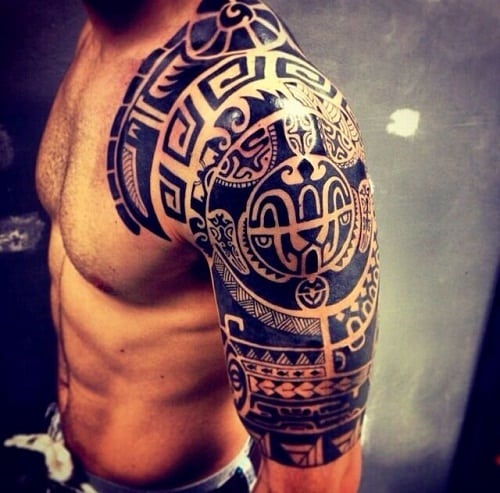
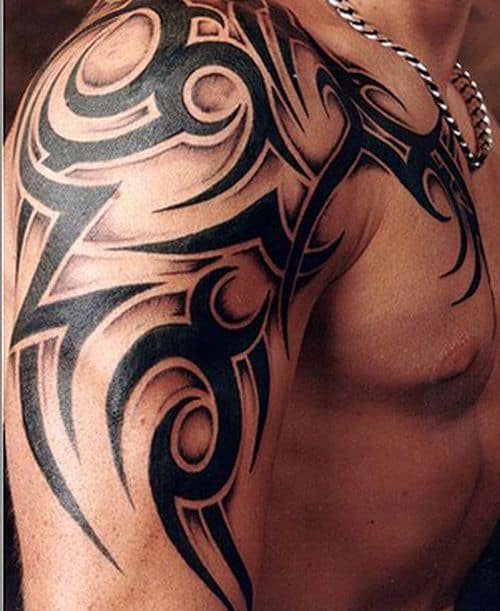
17. Samoan Tribal Art Tattoos on Half Body
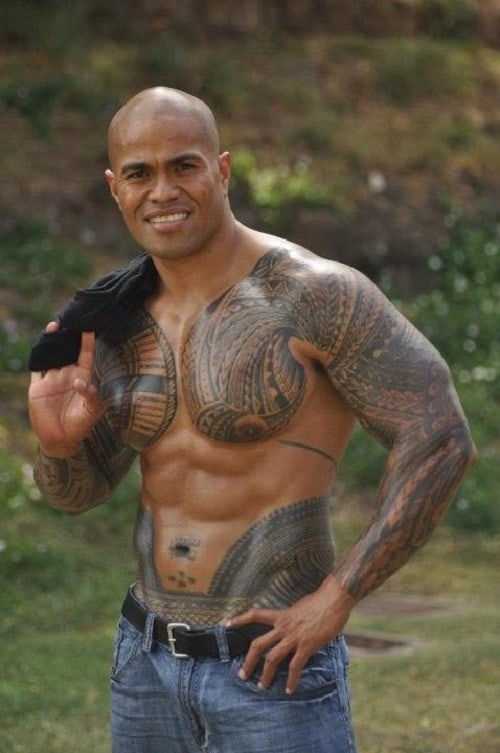
18. Polynesian Tribal Art Tattoos on Bicep

19. Polynesian Design on Chest and Arm
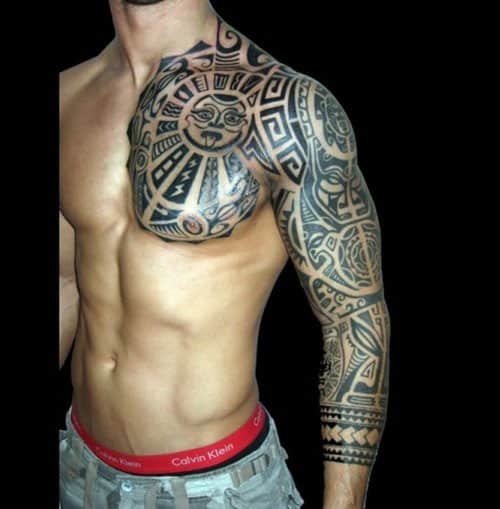
20. Outstanding Polynesian
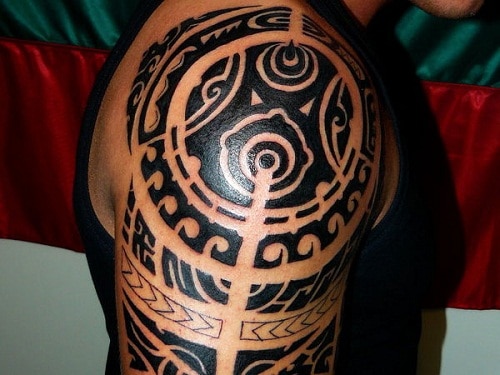
21. Orange and Black Color
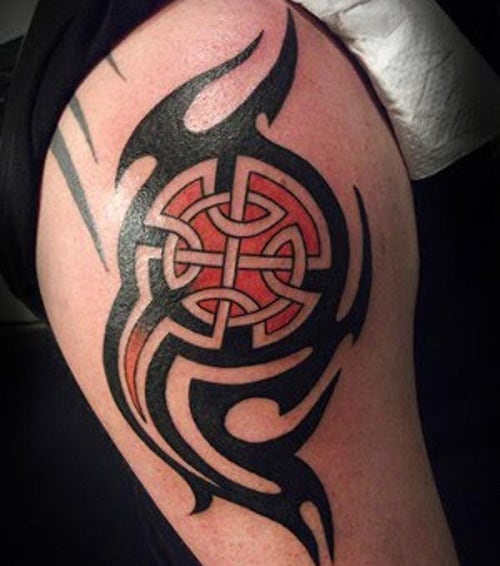
22. Maori Tattoo Inspiration
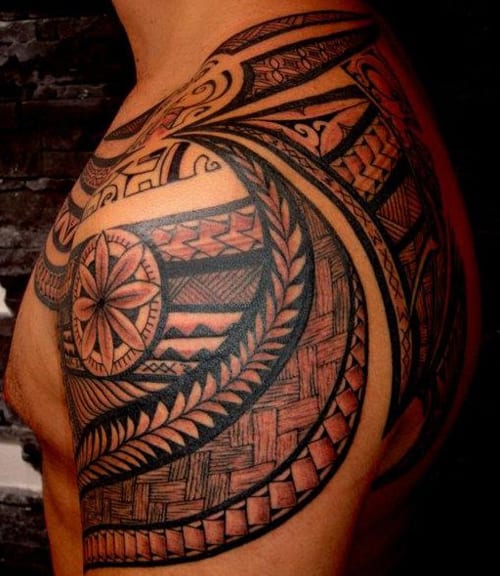
23. Manta Ray Tattoo Design

24. Lion Design on Arm
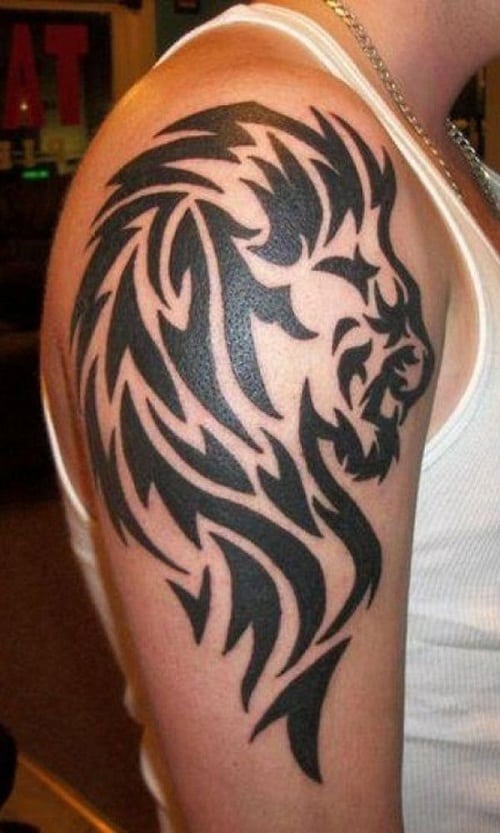
25. Lion Tribal Art
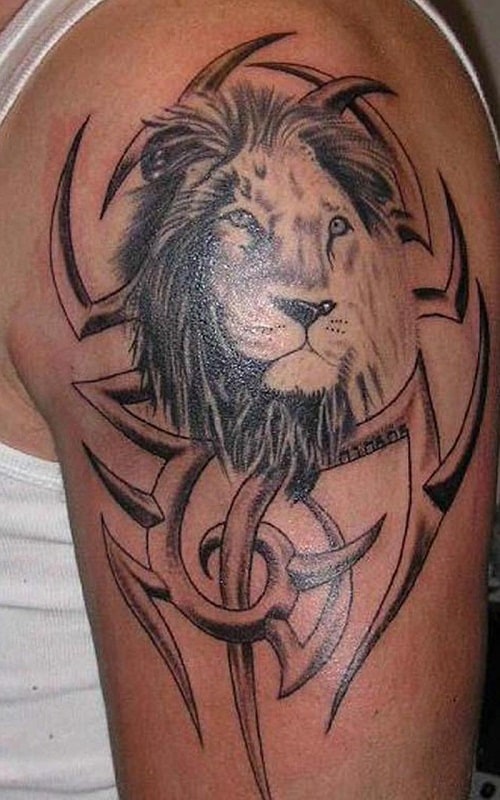
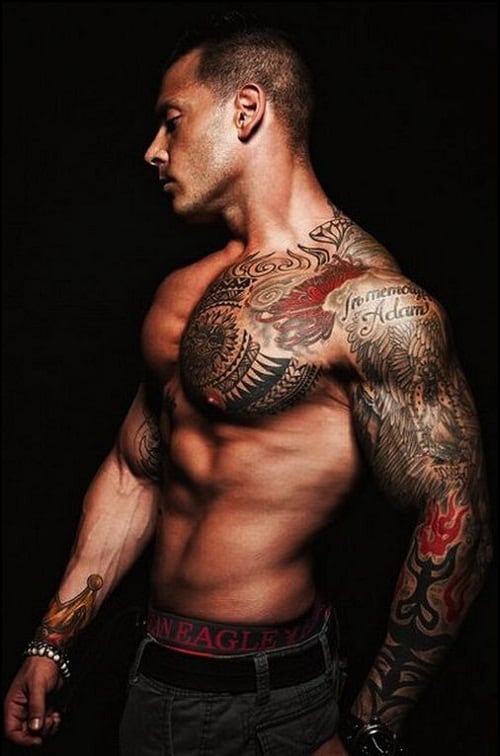
27. Hawaiian Warrior Tattoo Design
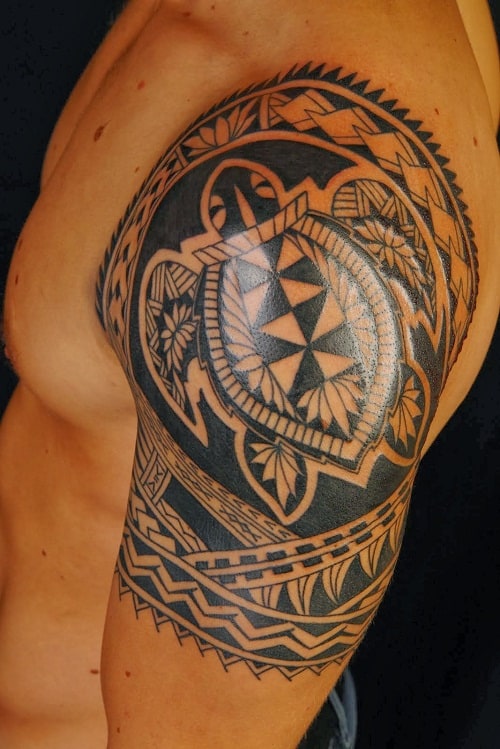
28. Hawaiian Design on Chest and Arm

29. Hawaiian Tattoo Inspiration
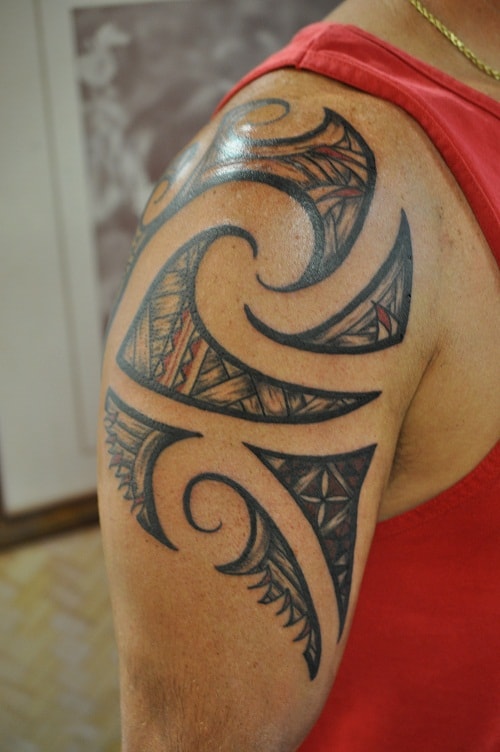
30. Hawaiian Tail Tattoo Design Inspiration
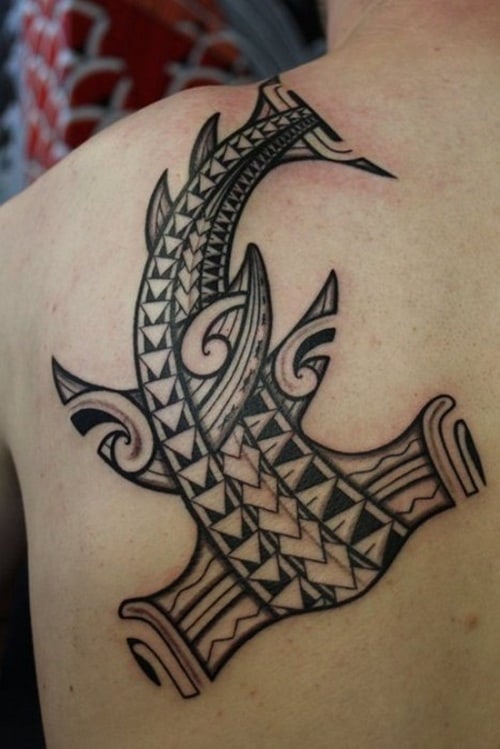
31. Symbolic Hawaiian Tattoo Design Inspiration
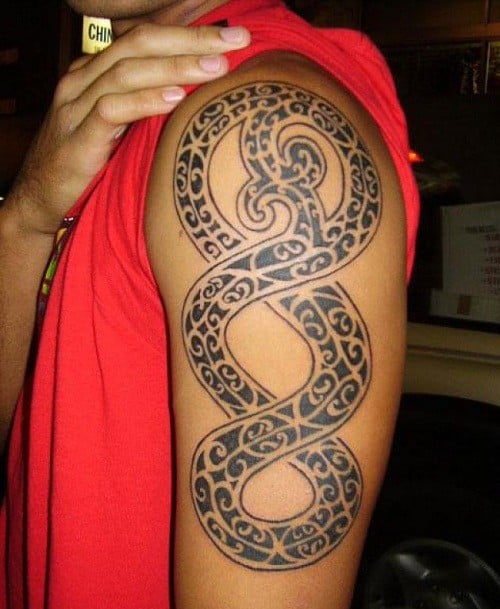
32. Hawaiian Band
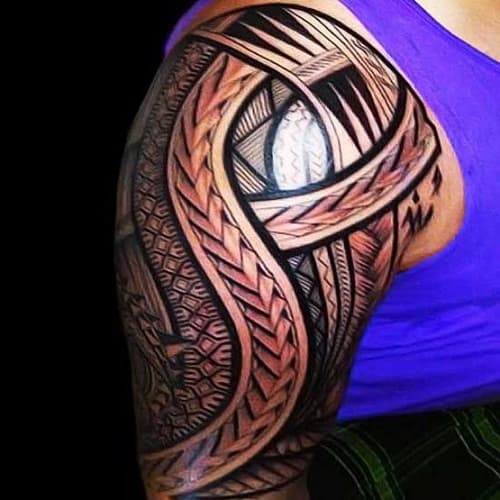
33. Best Hardcore Tattoo Design
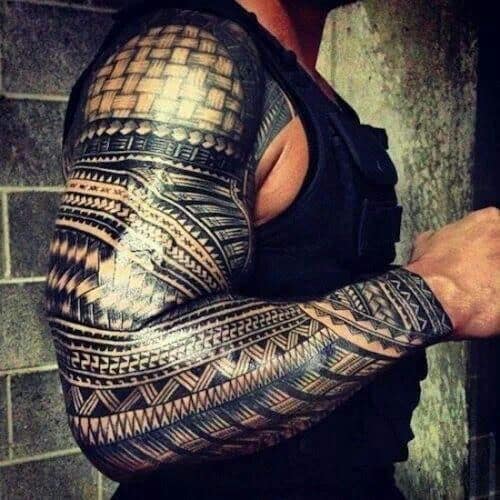
34. Awesome Tattoo for Half Sleeve Area
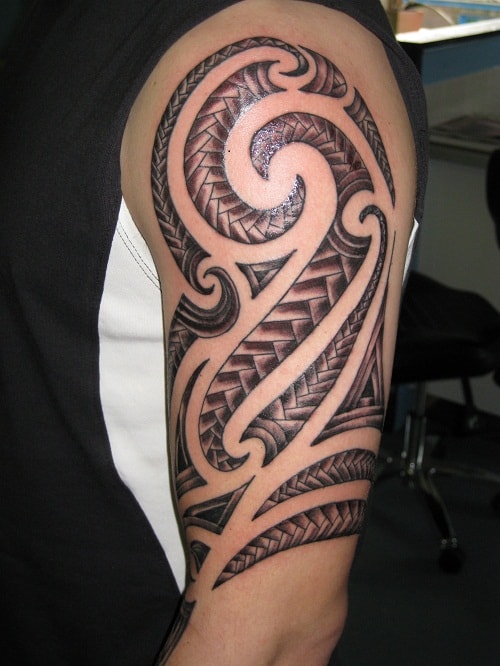
35. Great Detailed Tattoo Inspiration
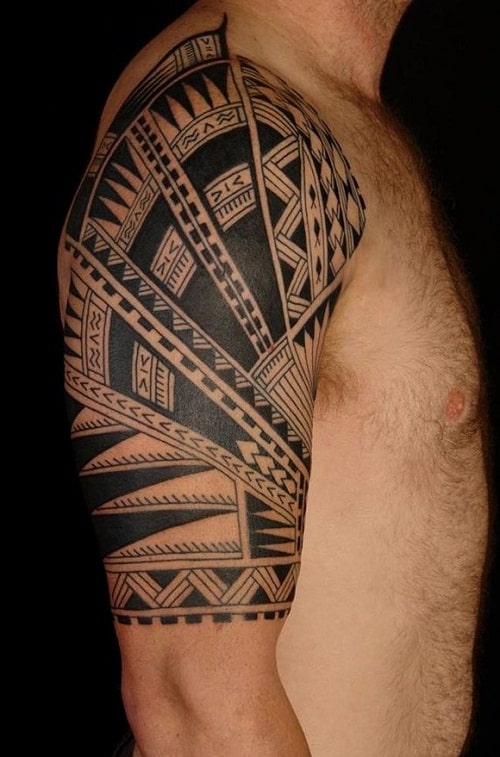
36. Awesome Intricate Design on Arm
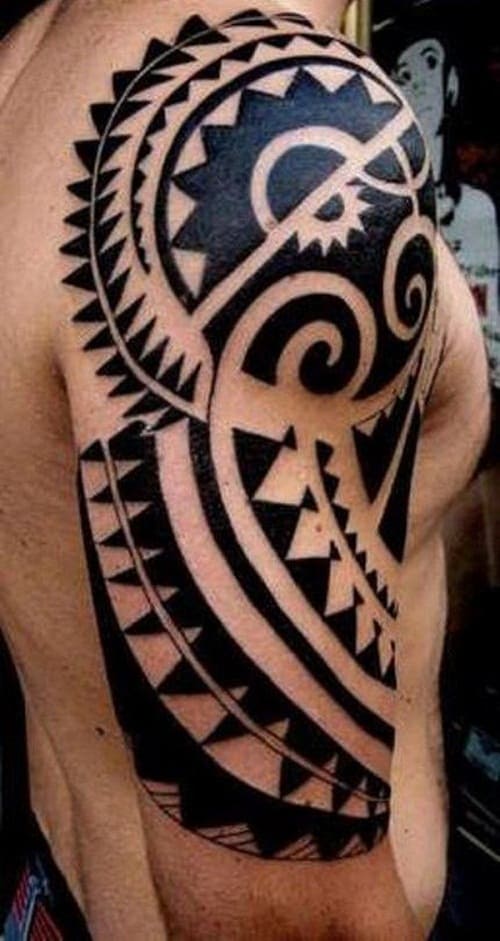
37. Hawaiian Fish
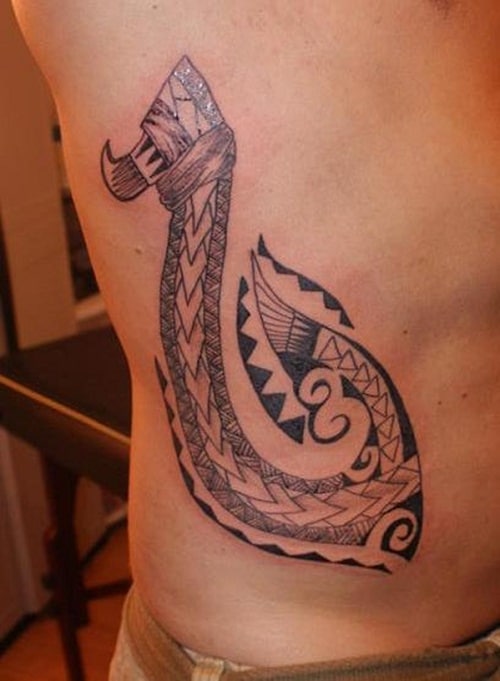
38. Fire on Half Body Design
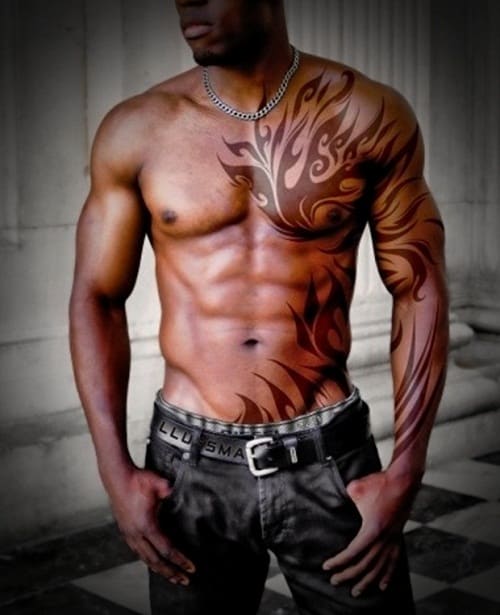
39. Filipino’s Alibata with Intricate Design
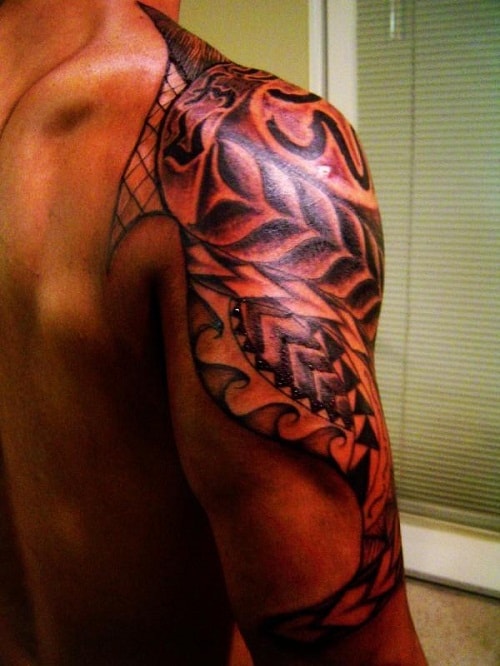
40. Best Egyptian-Inspired
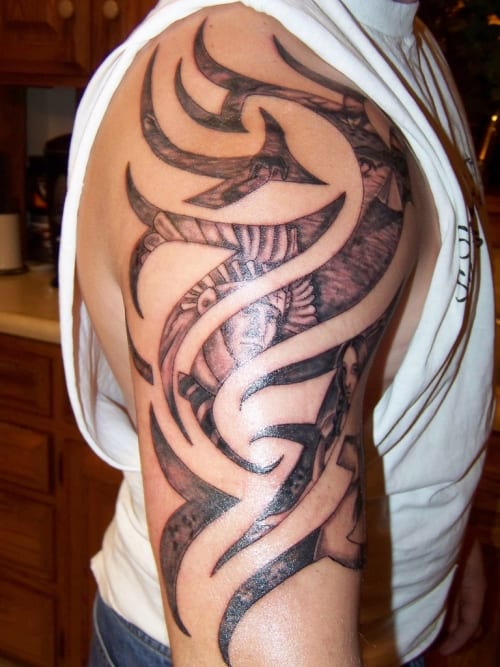
41. Detailed Maori Tribal Inspiration
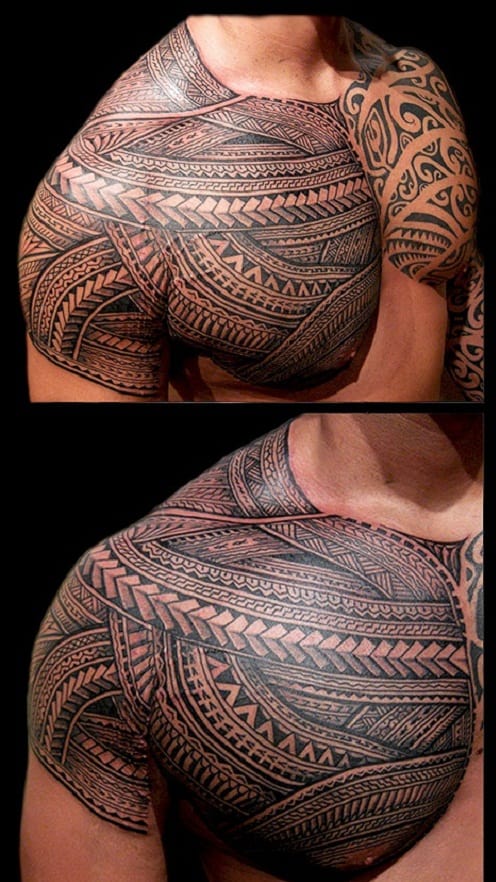
42. Cross Wrapped with Tribal Design
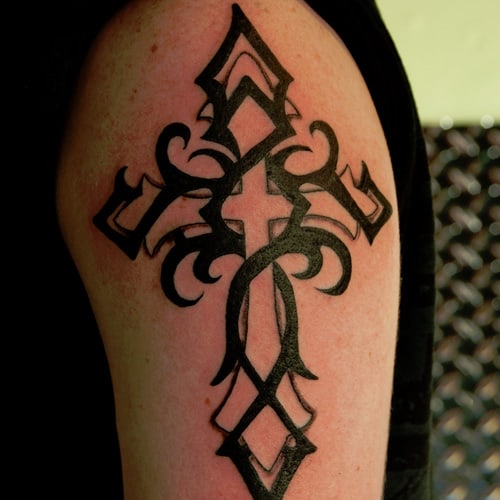
43. Accentuated Tattoo – Before and After
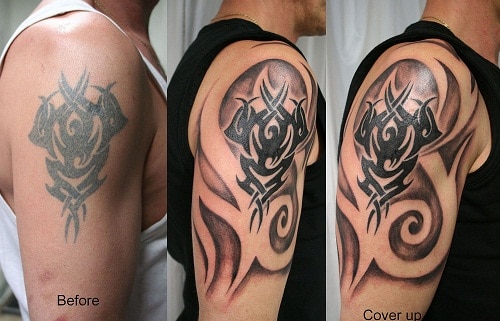
44. Cool Tattoo Design on Spine

45. Polynesian Tribal Design on Chest
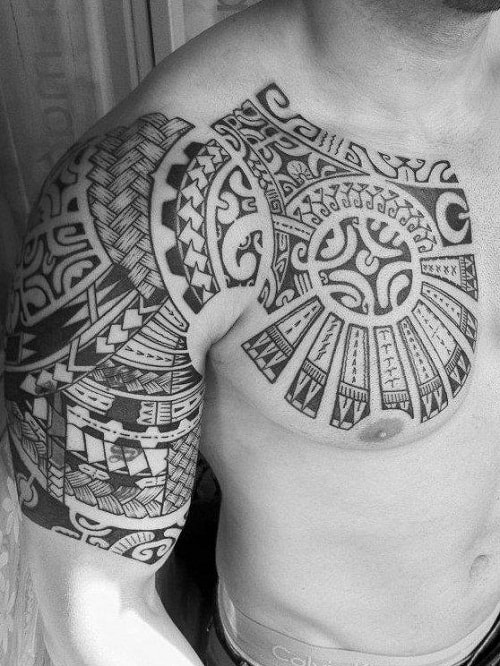
46. Entire Back Tattoo with Various Designs
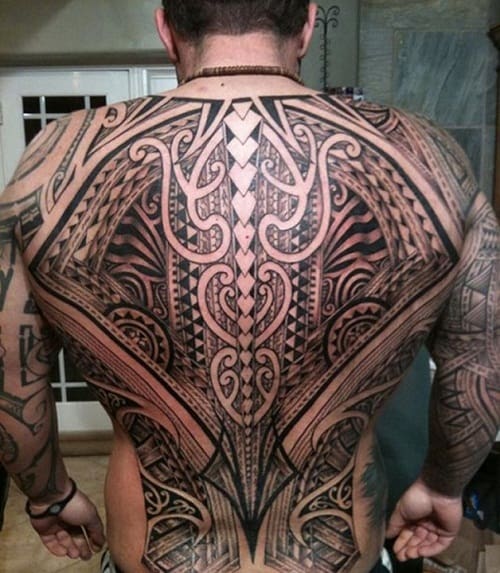
47. Tribal Art Inspiration on Back
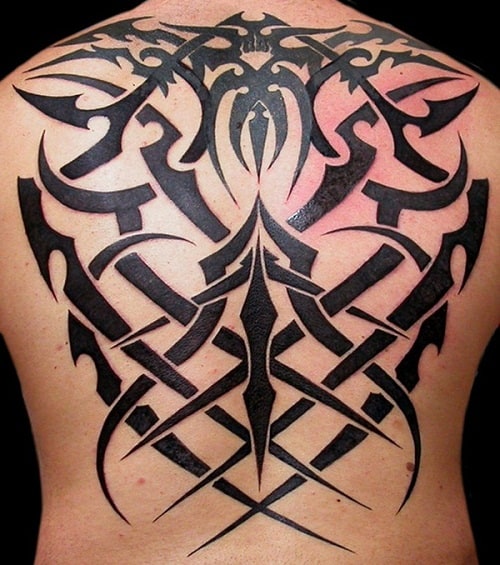
48. Black and Green Tribal Design Tattoos
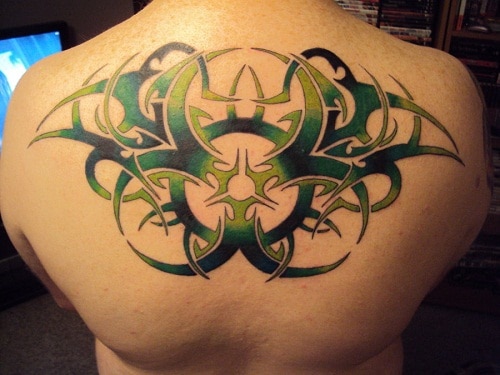
49. Tribal Aztec Tattoo Design on Chest and Arm
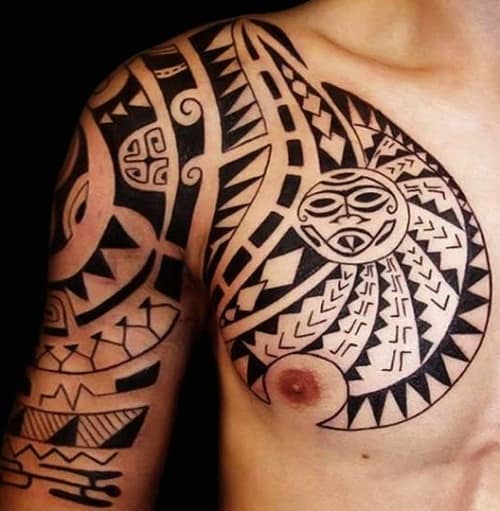
50. Another Awesome Polynesian Tattoo Design

51. Shoulder and Arm Tattoo Design

52. Best Arm Tribal Art Inspiration
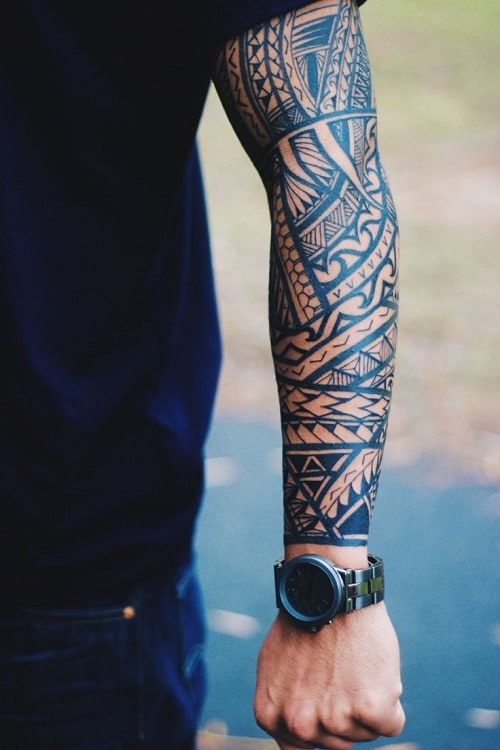
53. Great Arm and Chest Tattoo
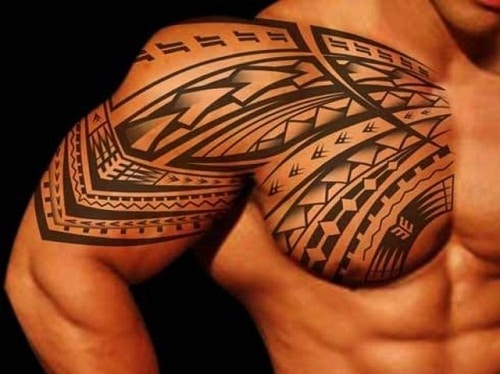
54. Anaconda Head Snake Shape Tattoo Inspiration

55. Best Simple Back Tattoo Inspiration
